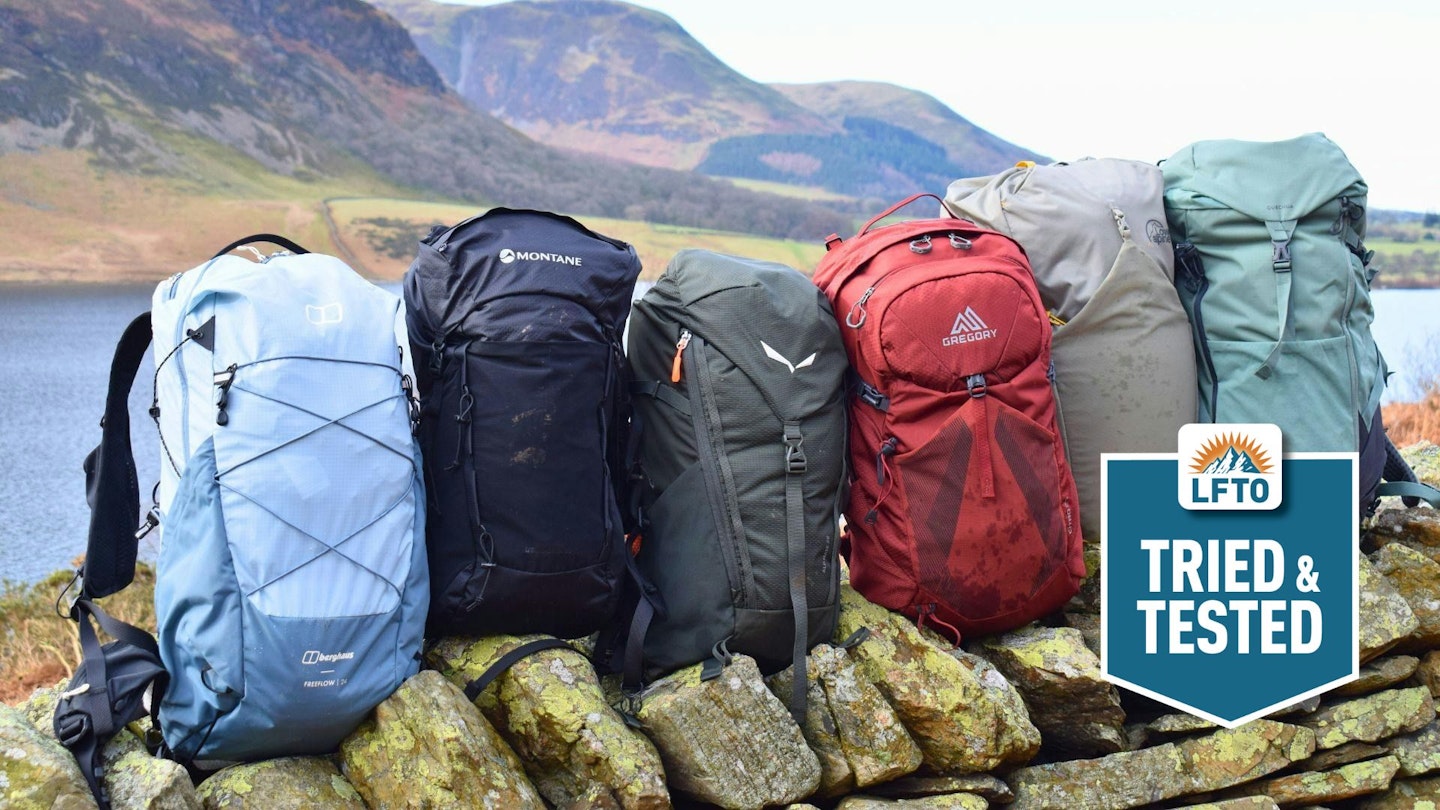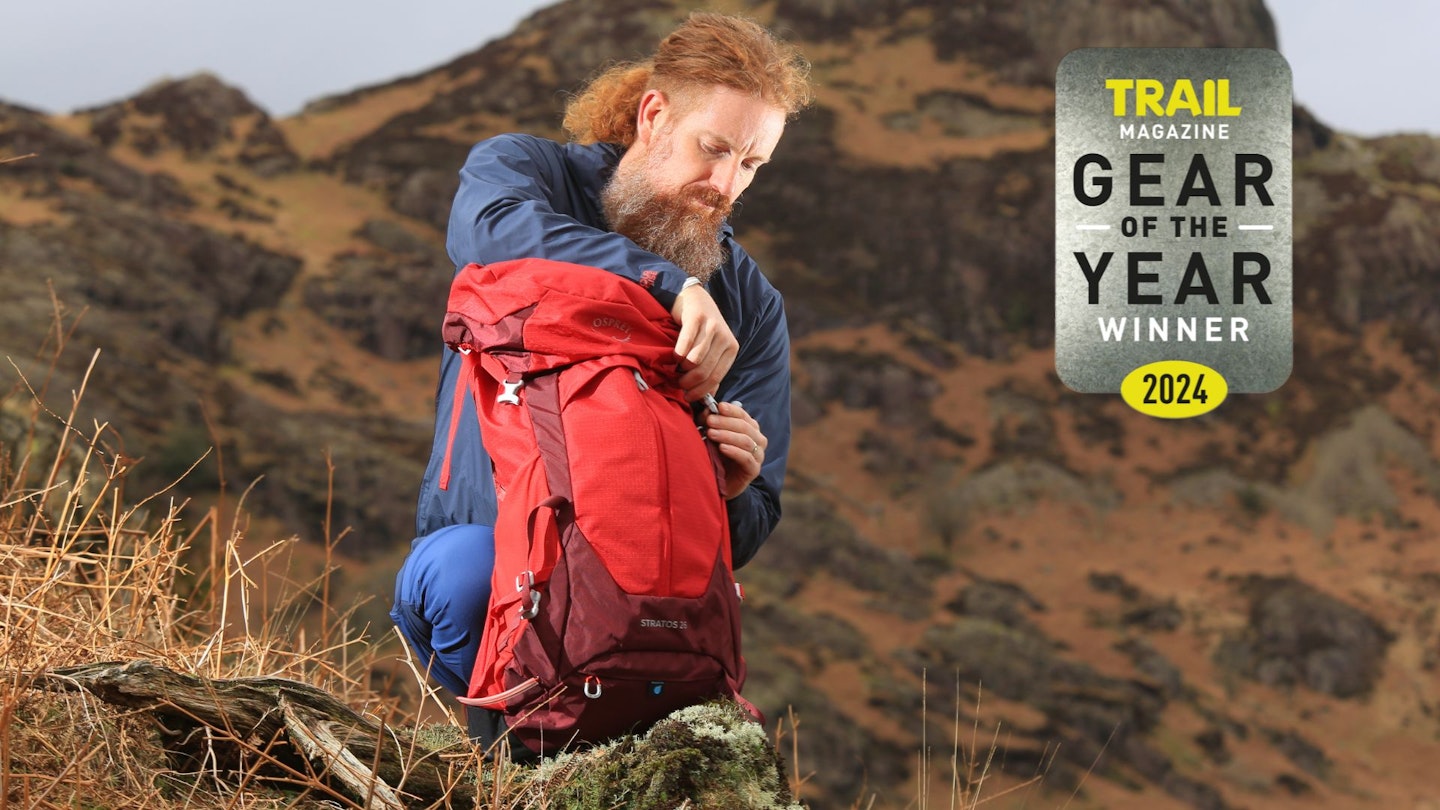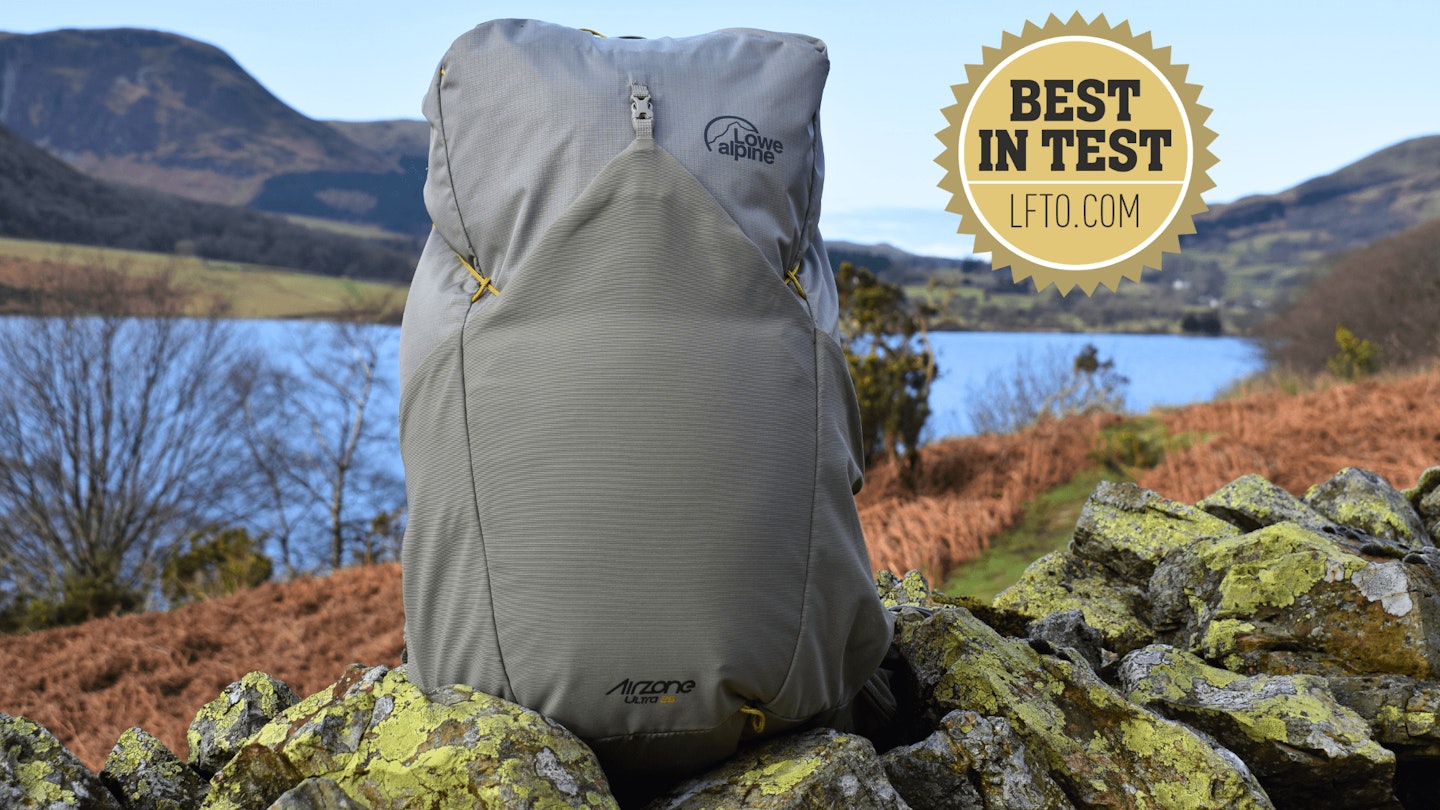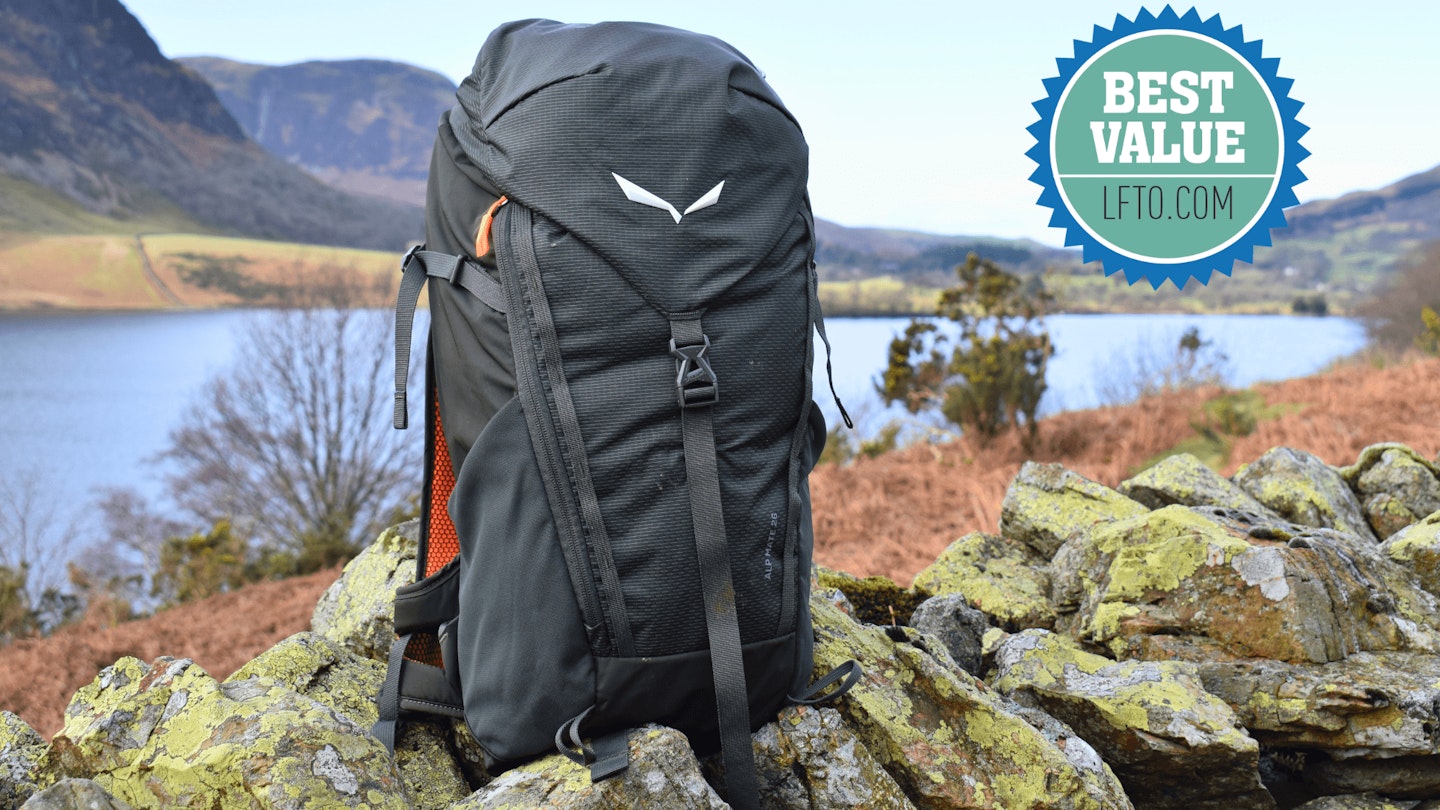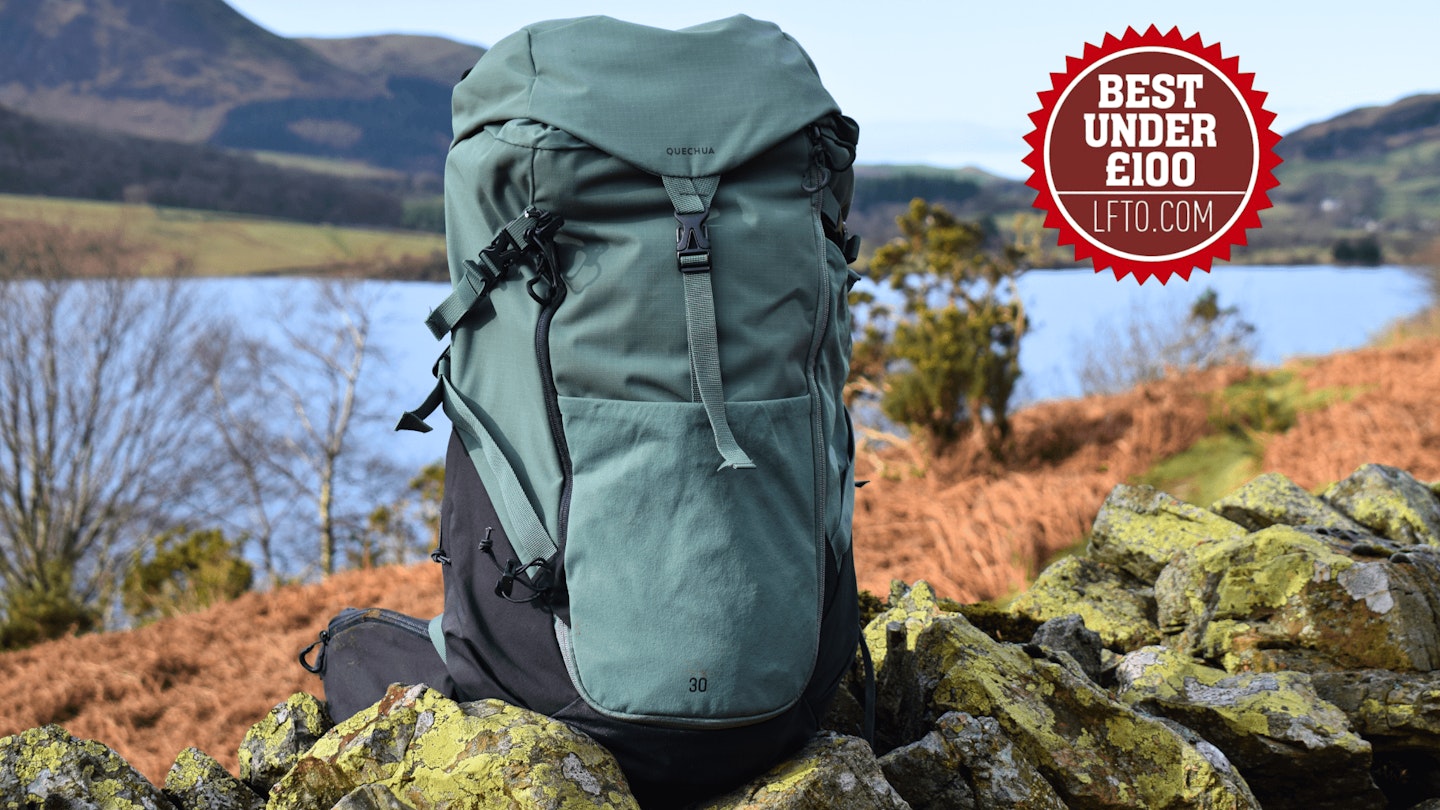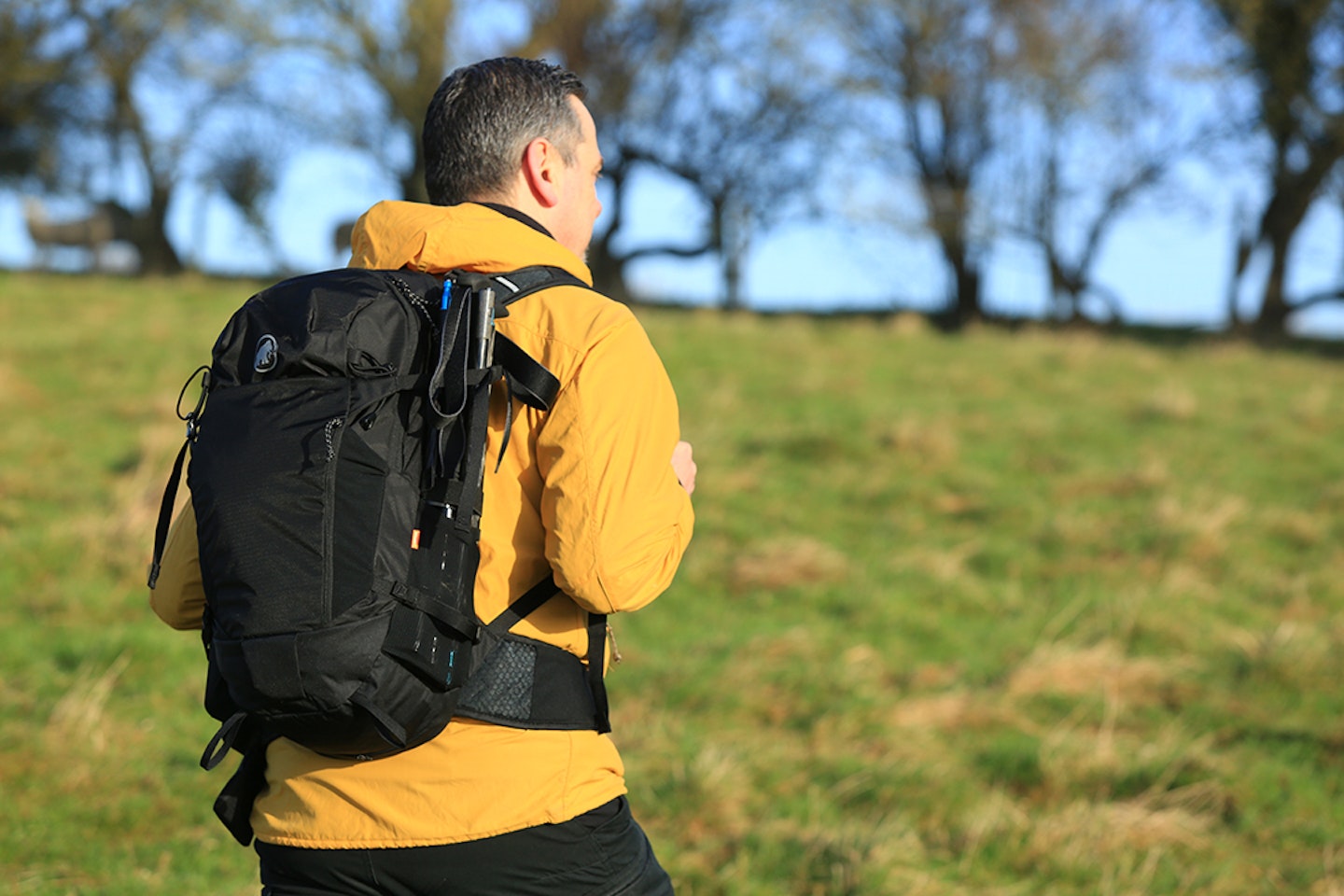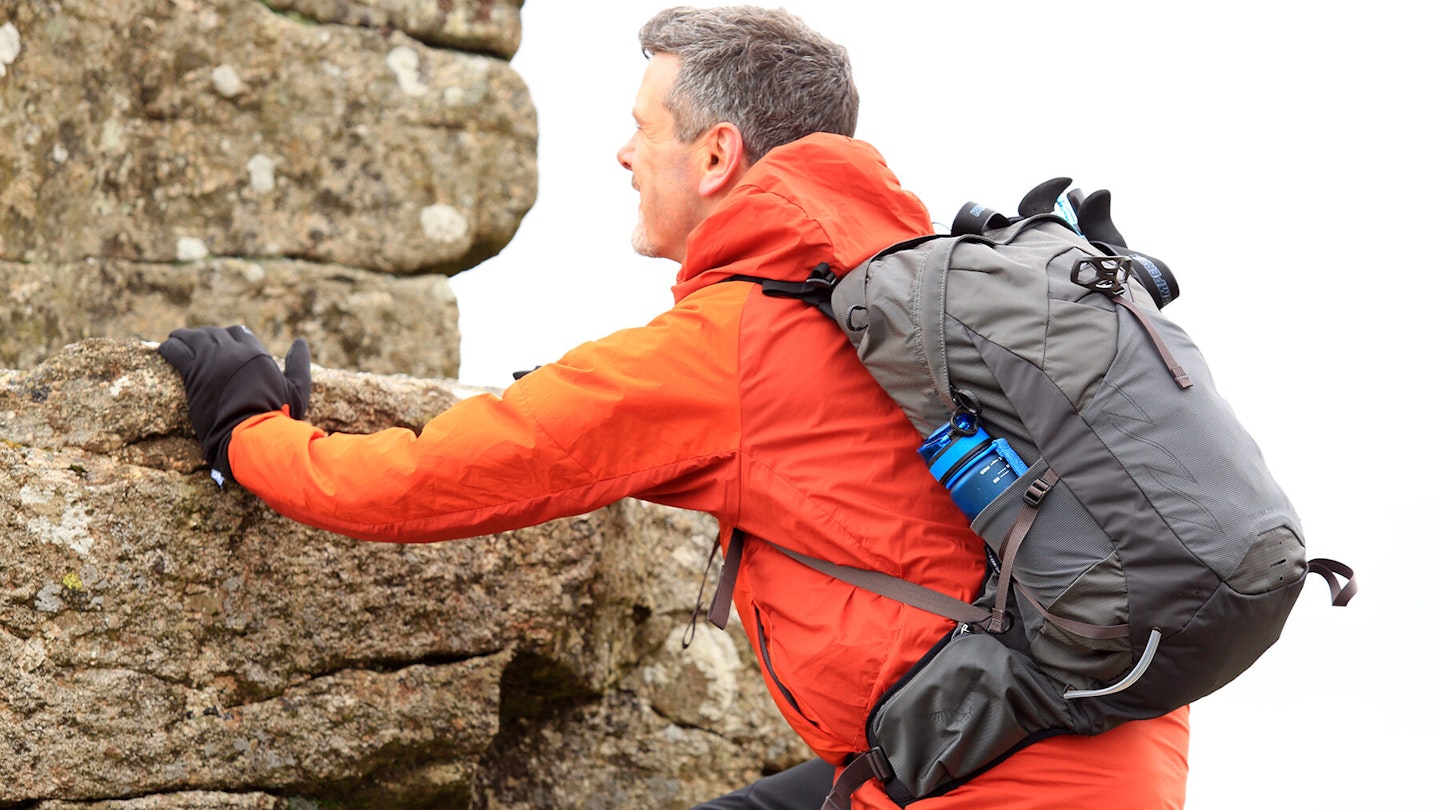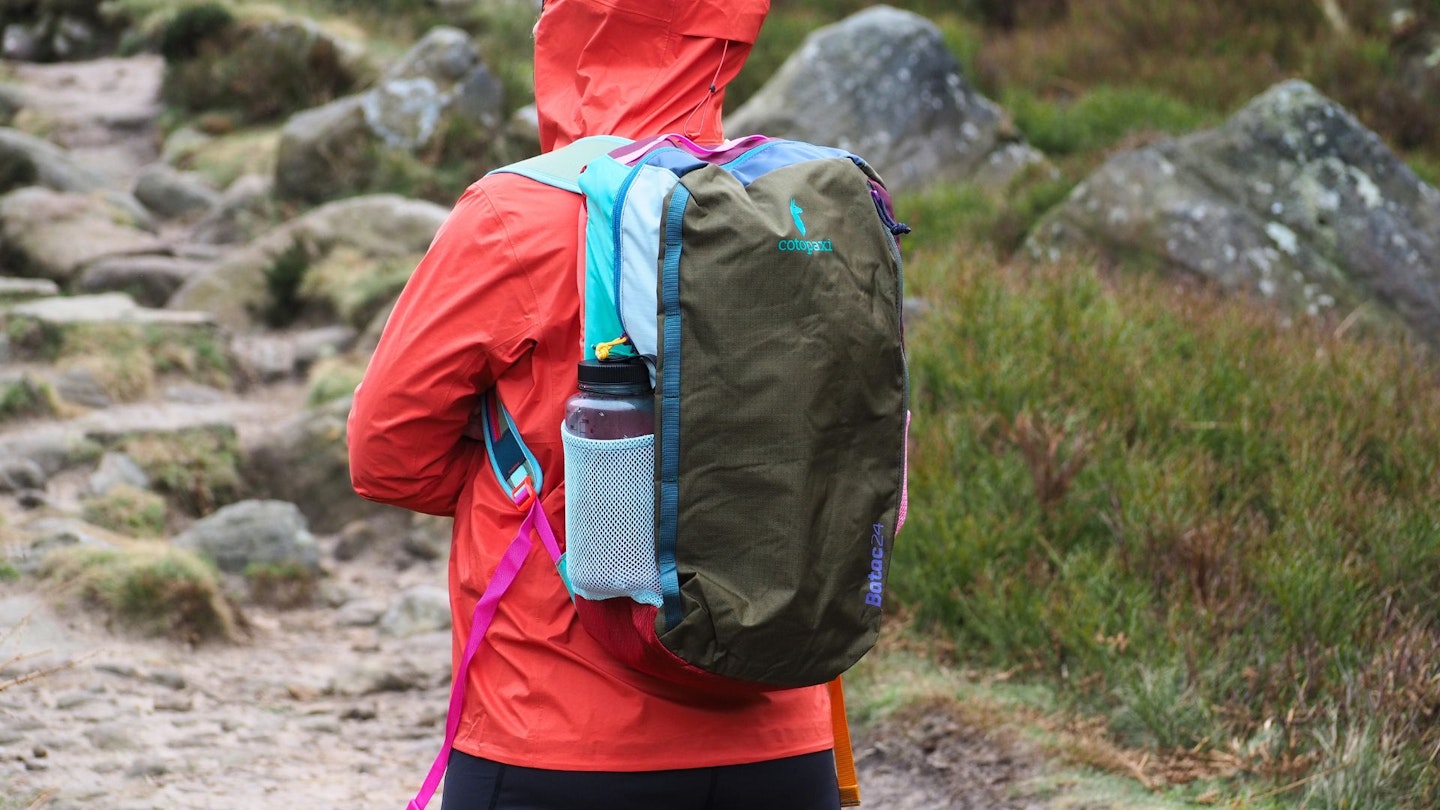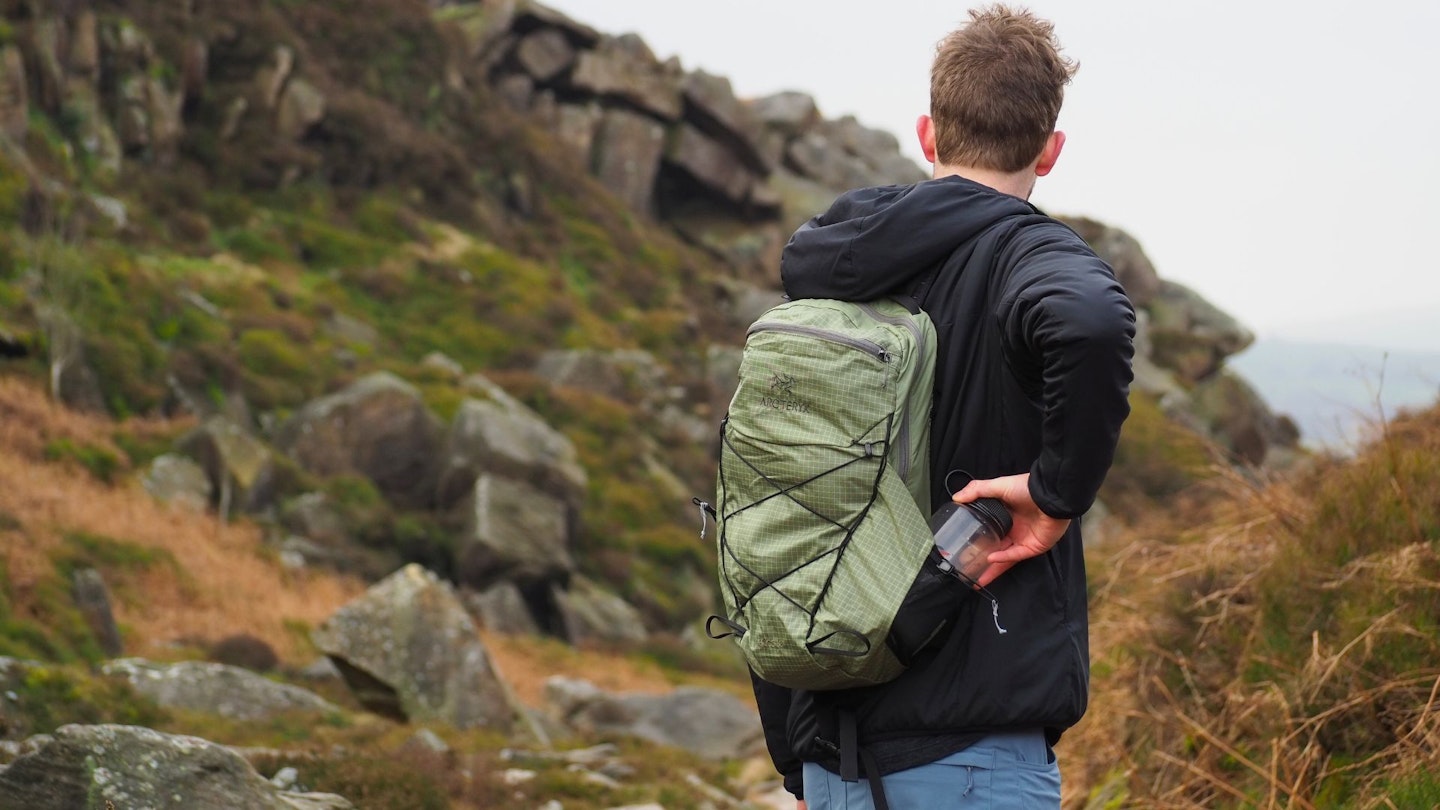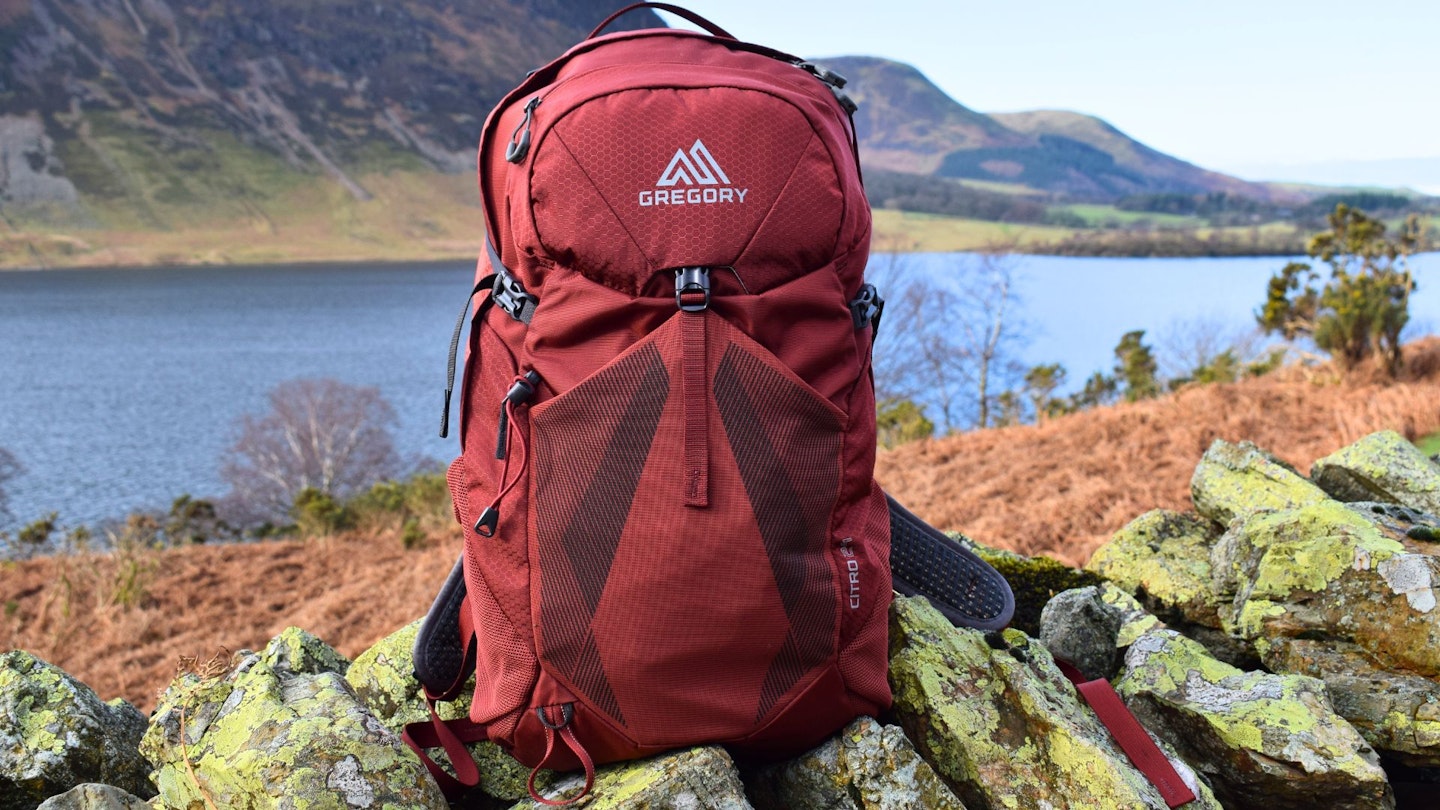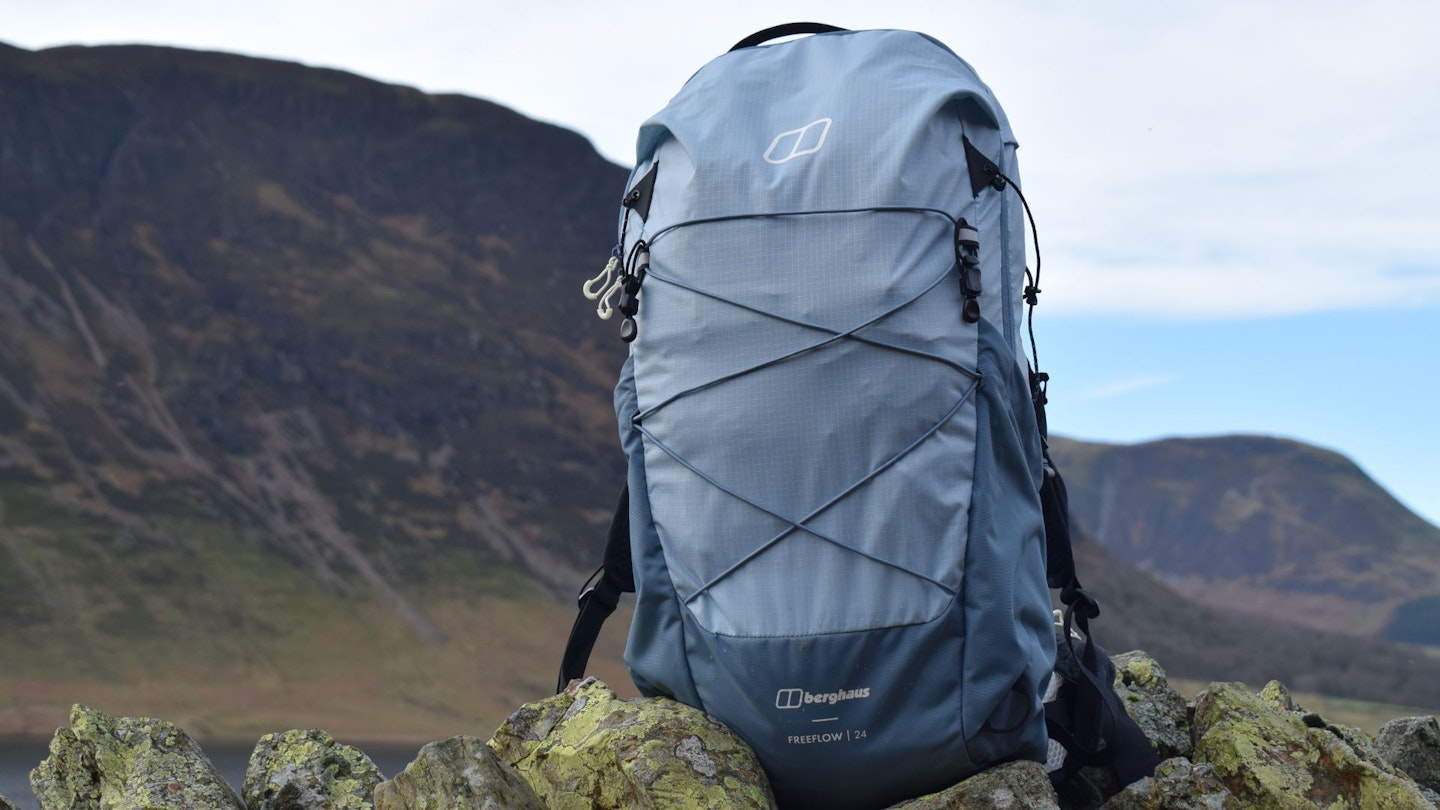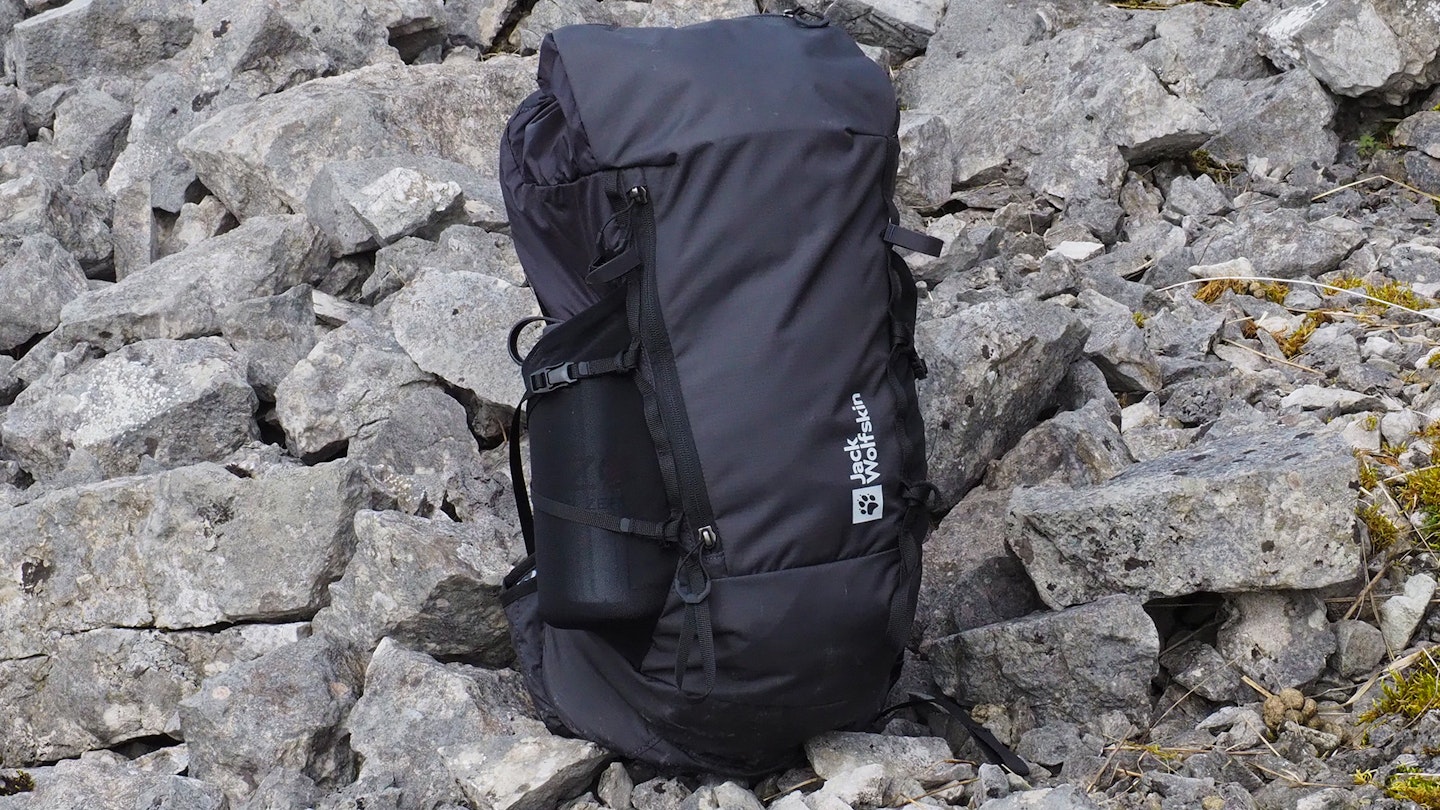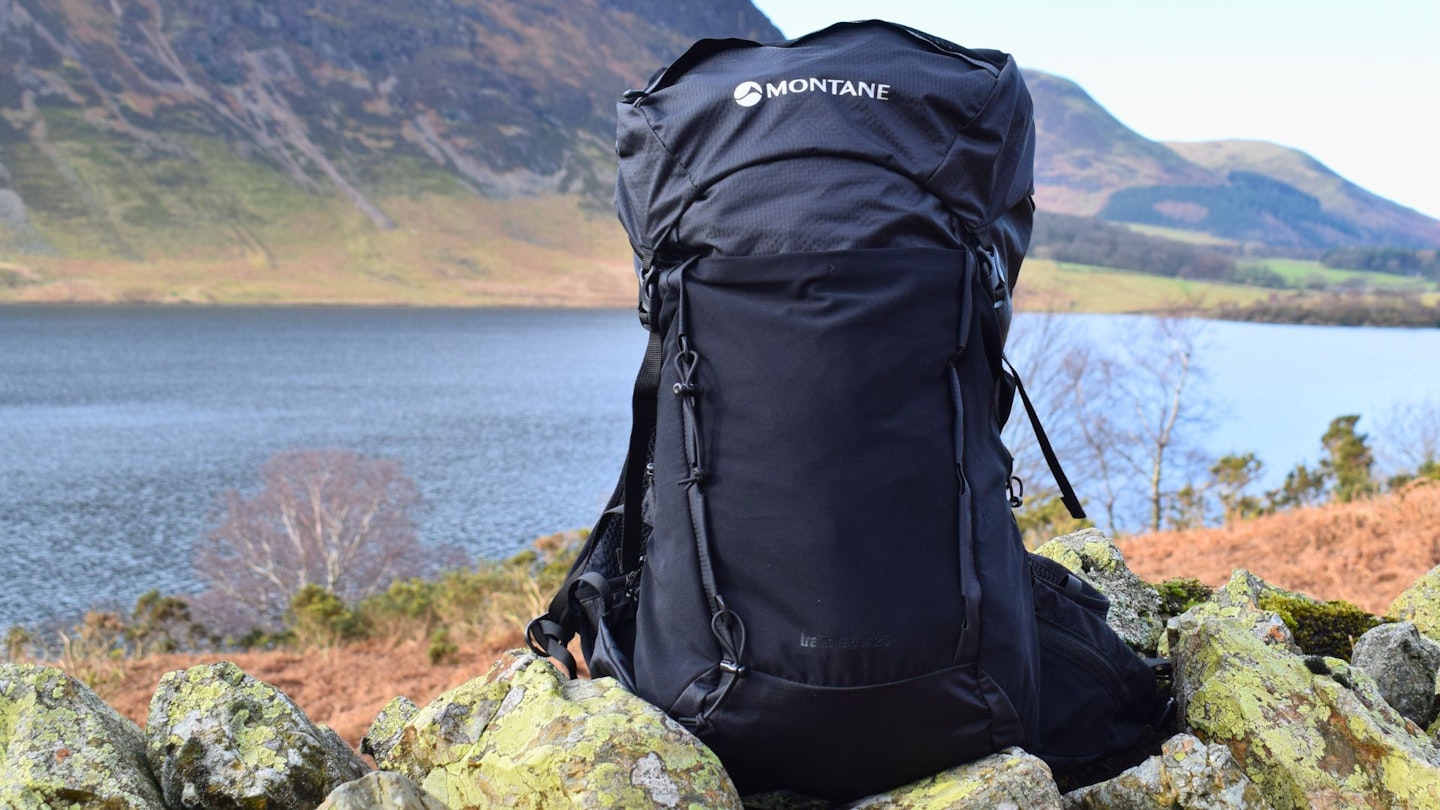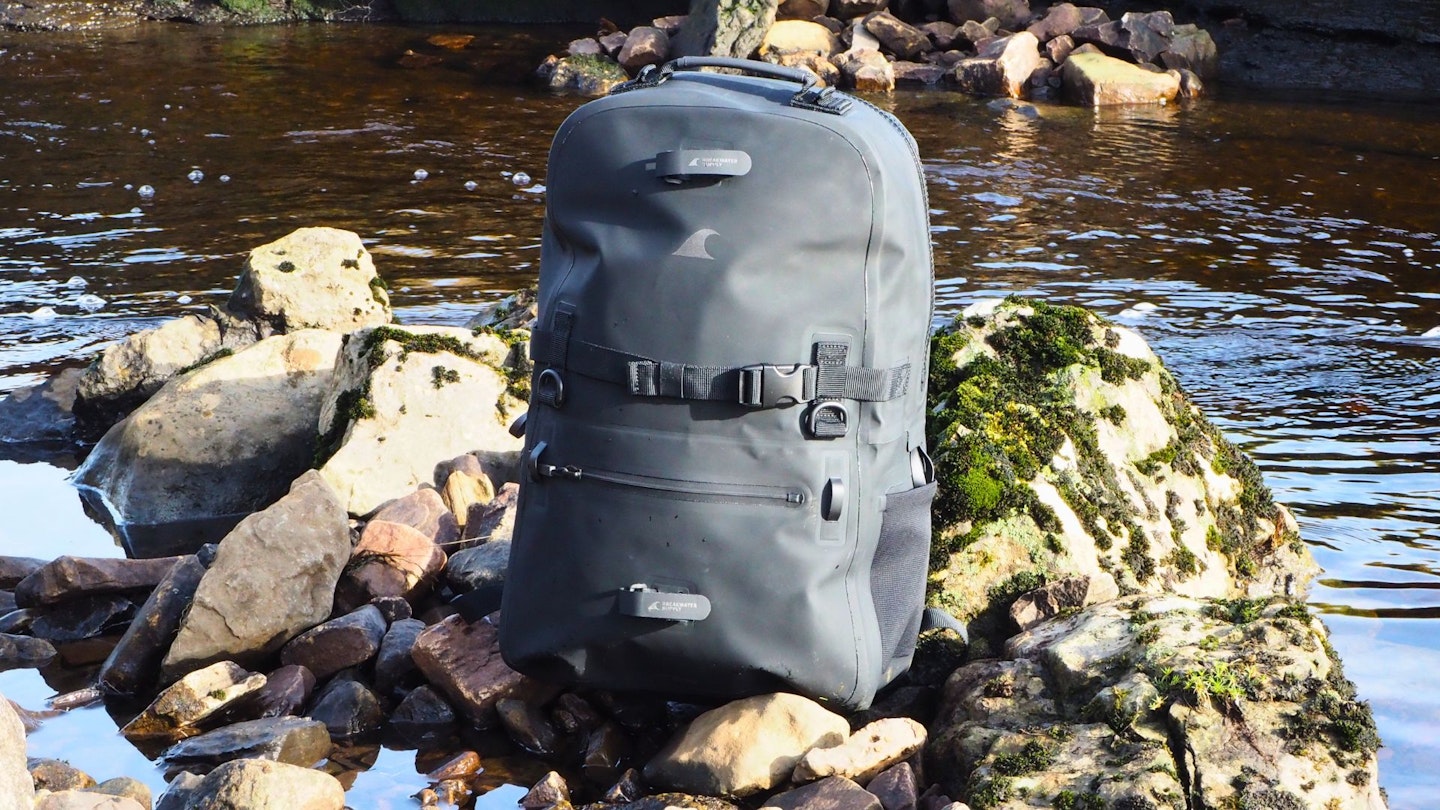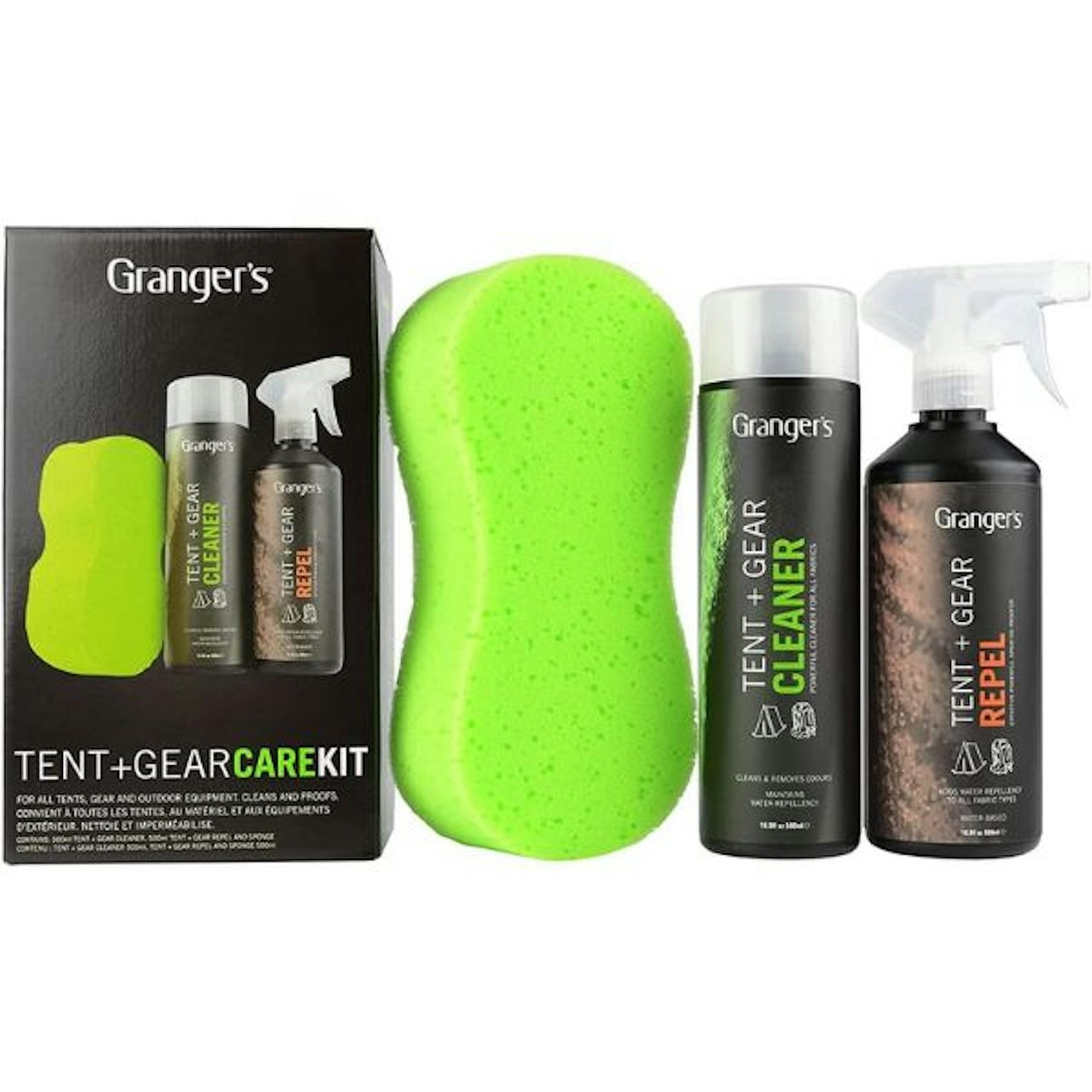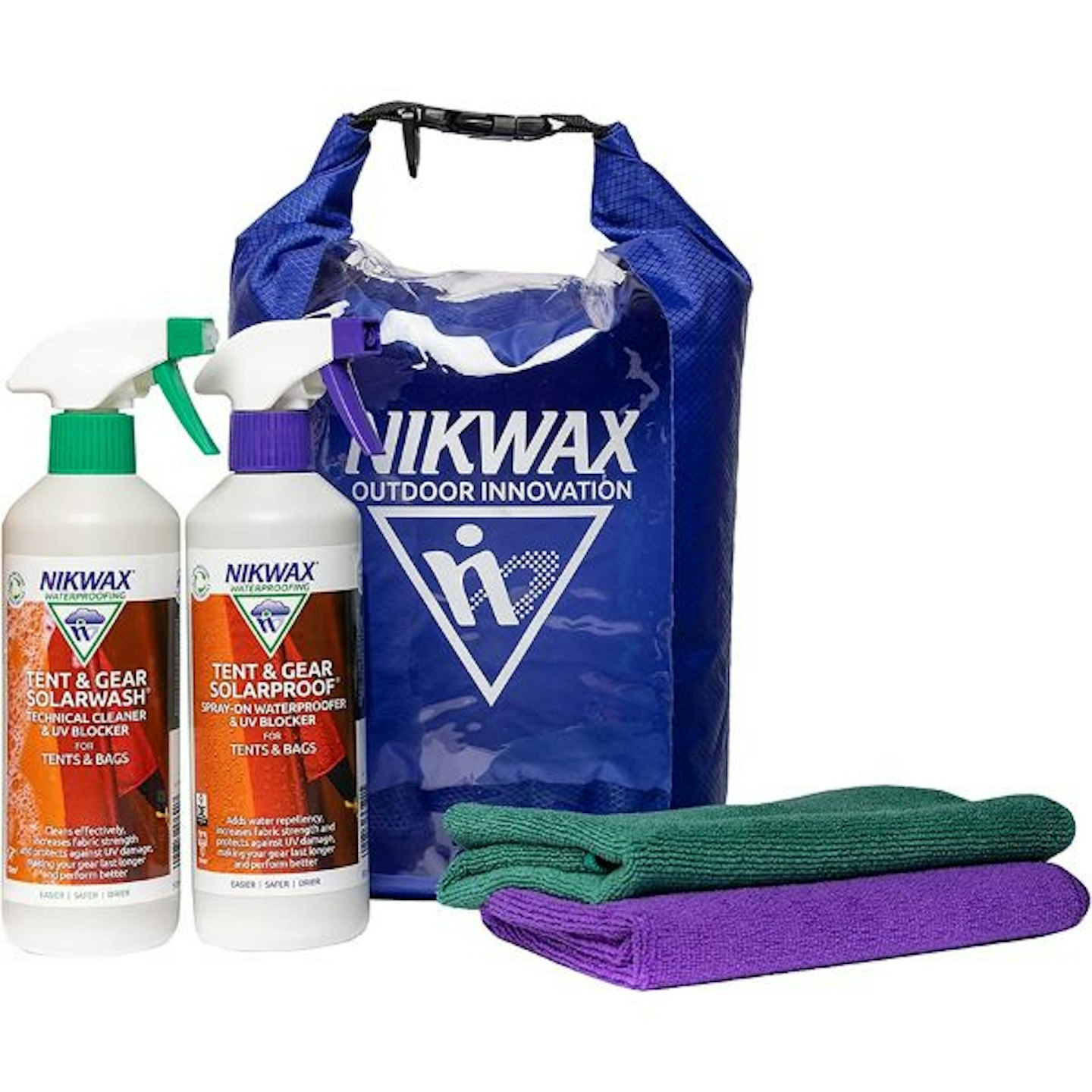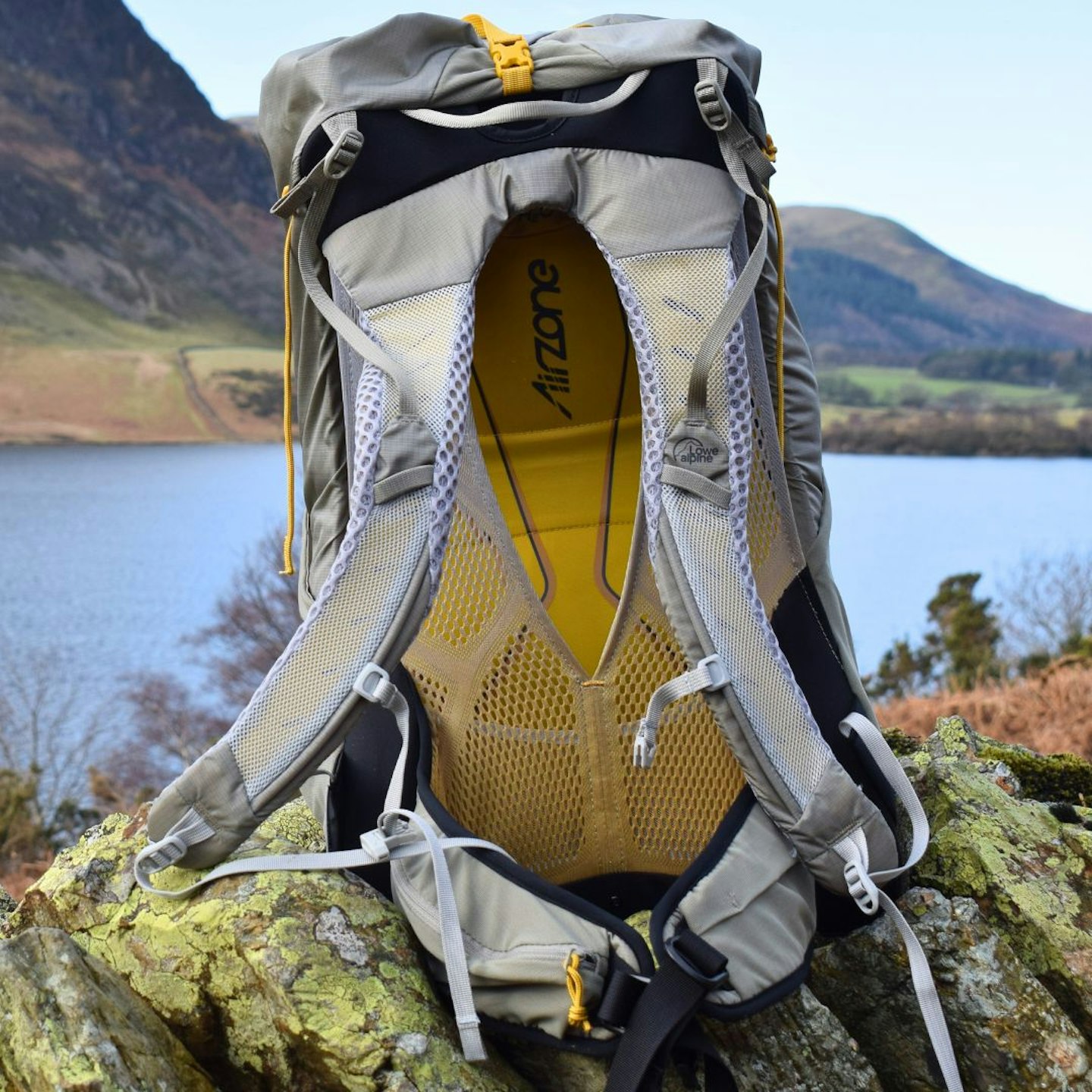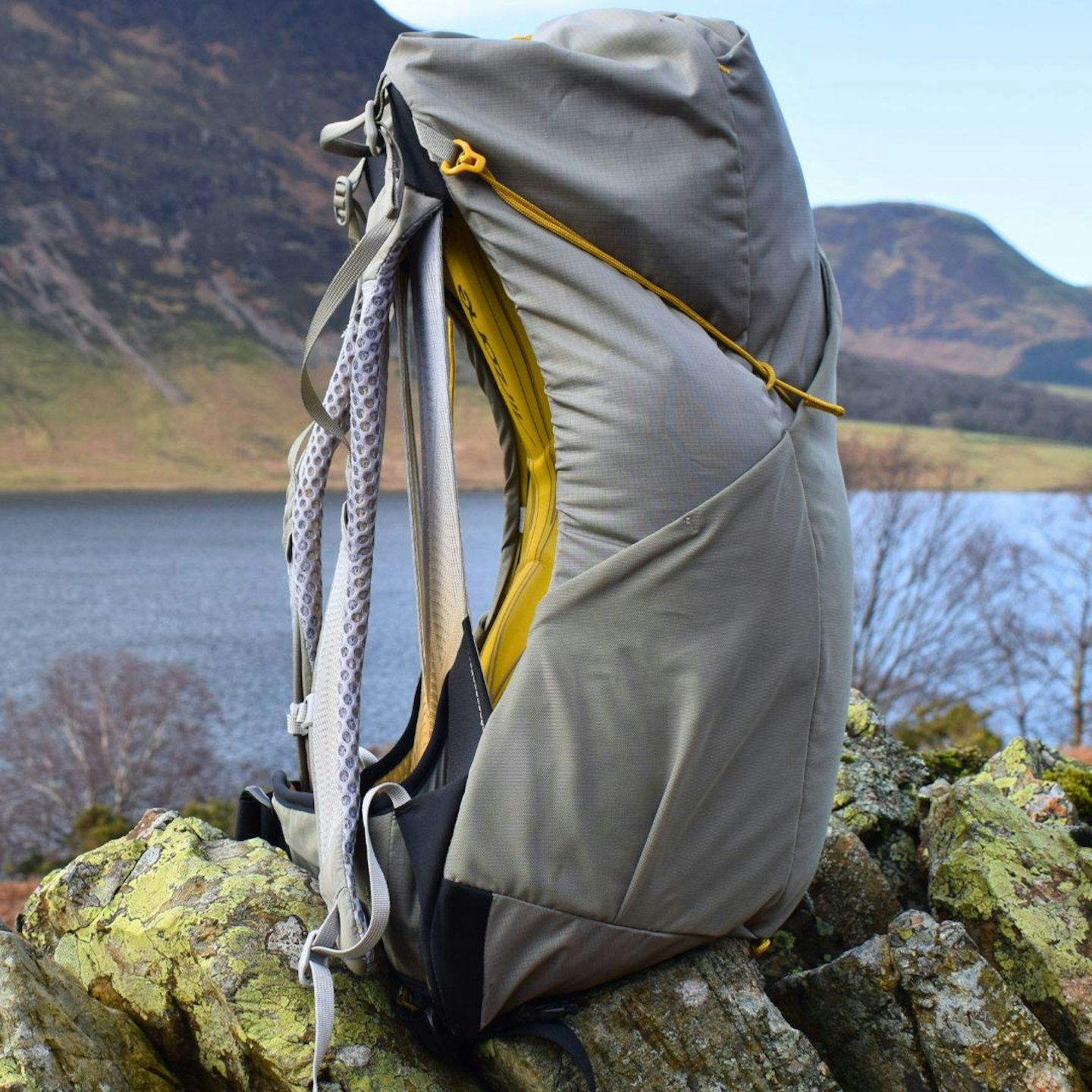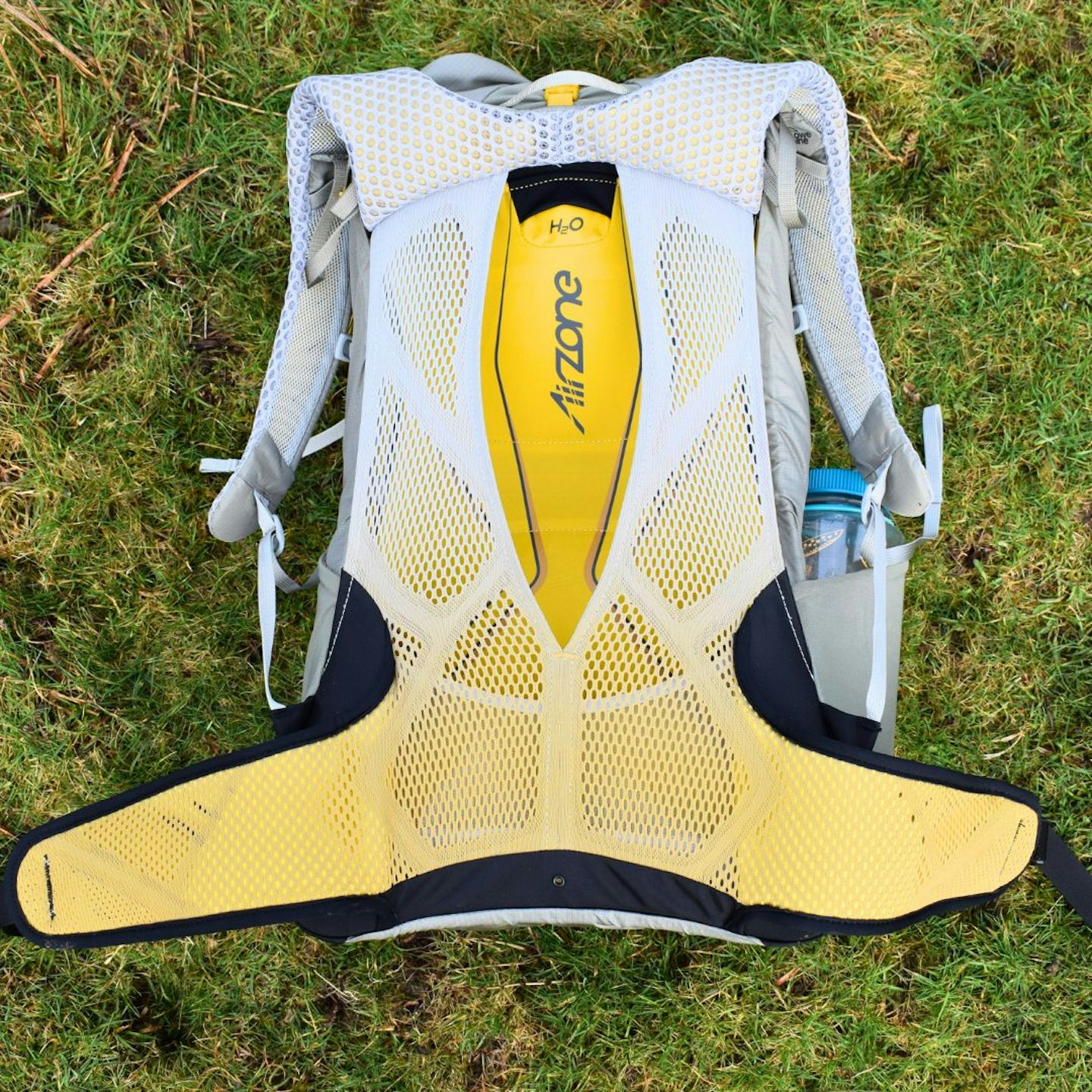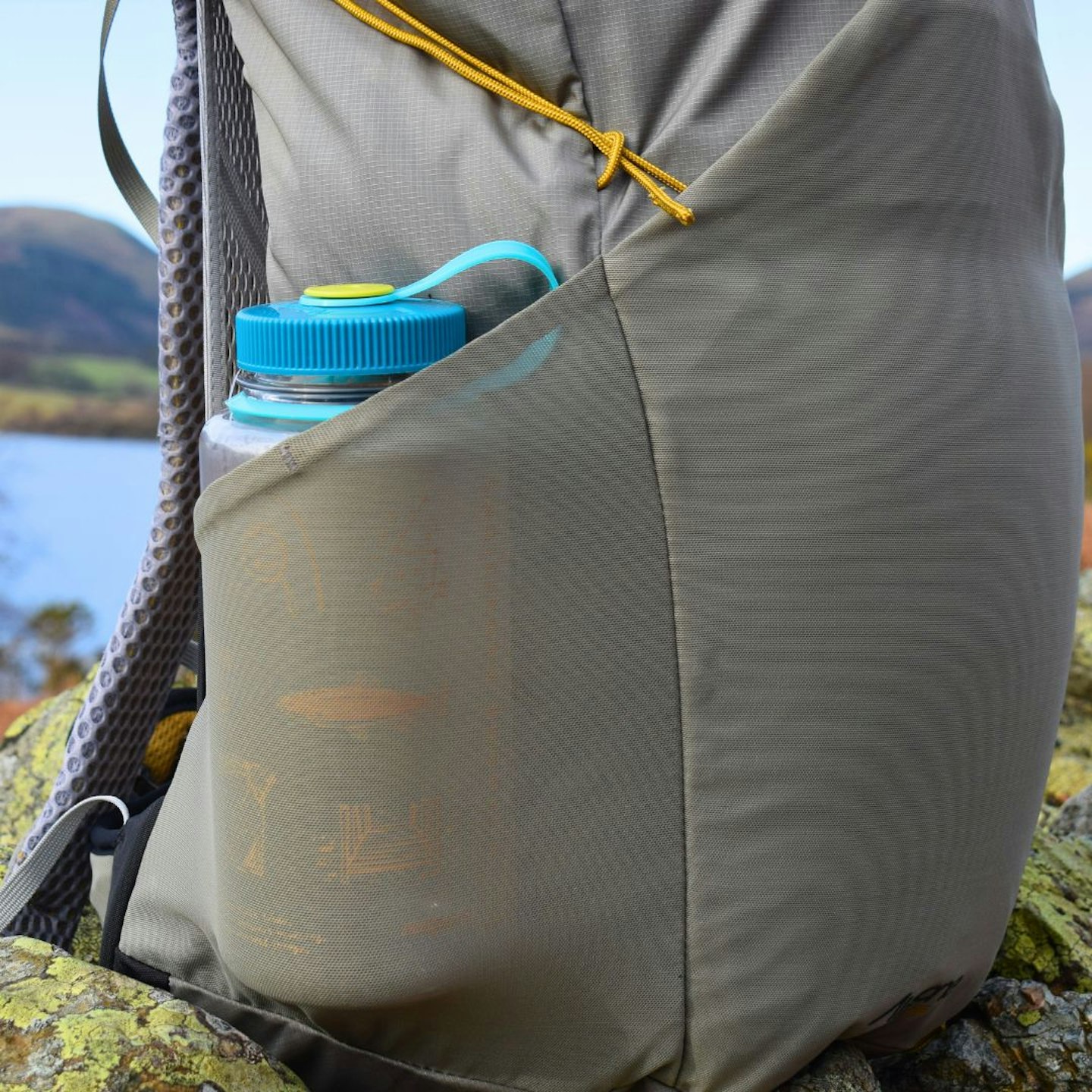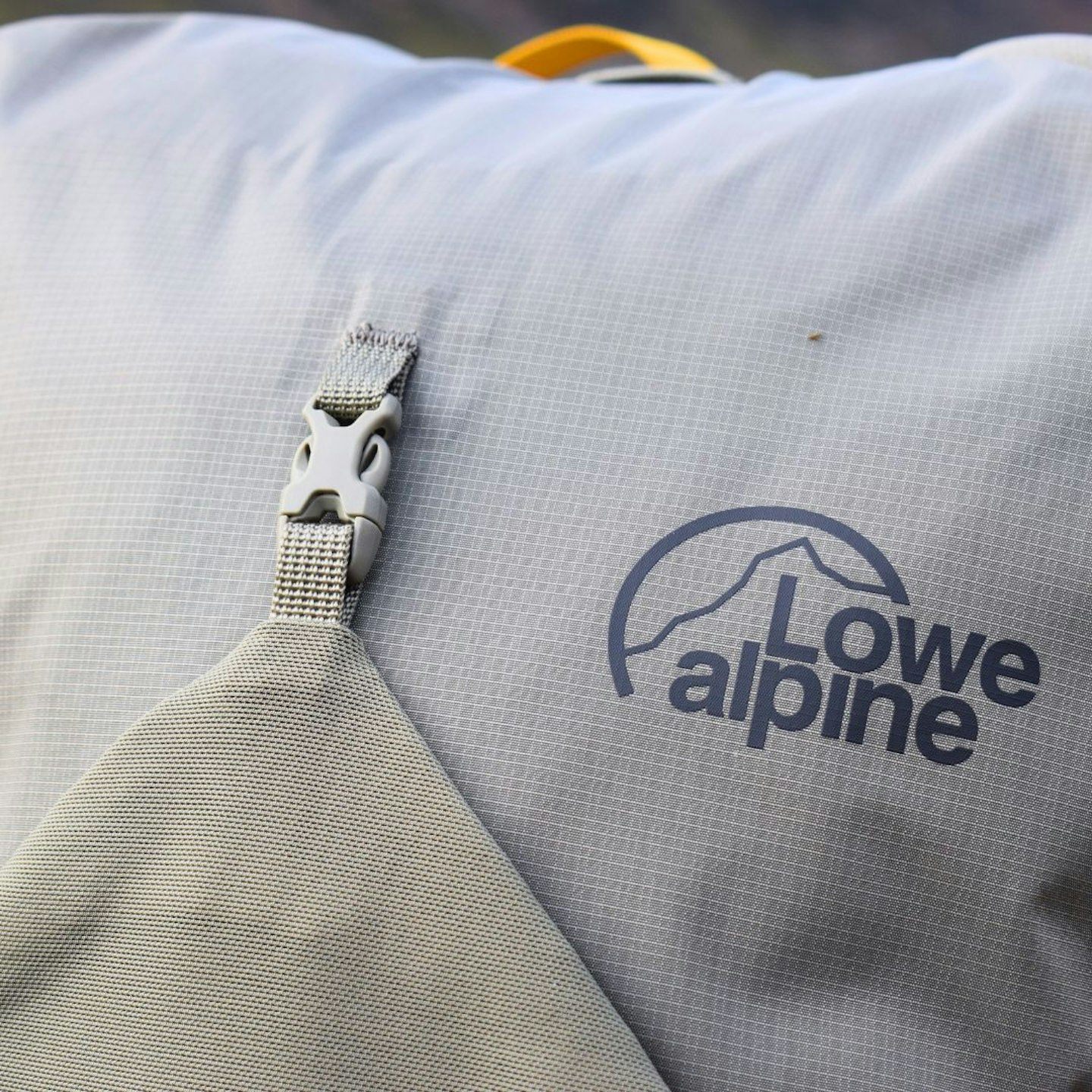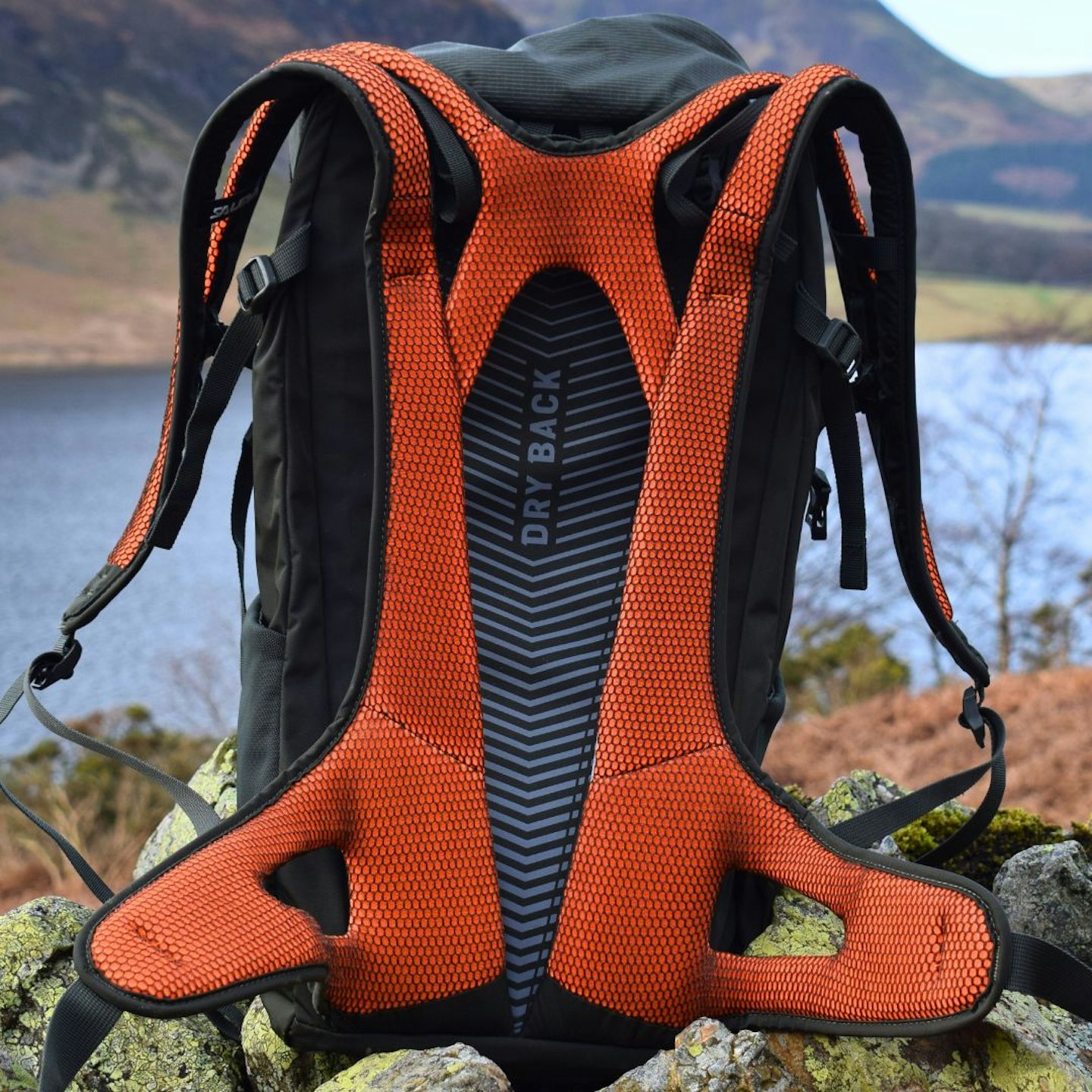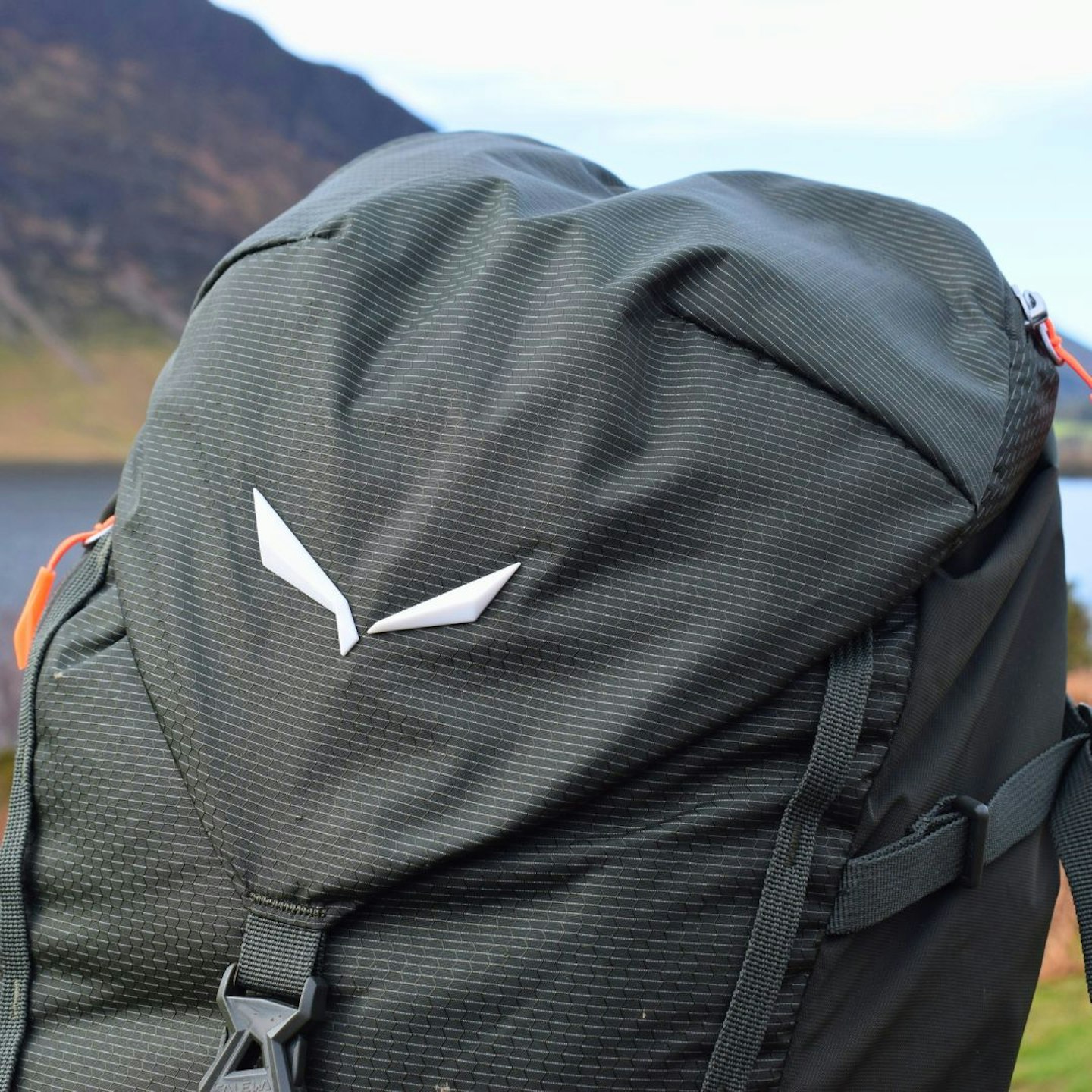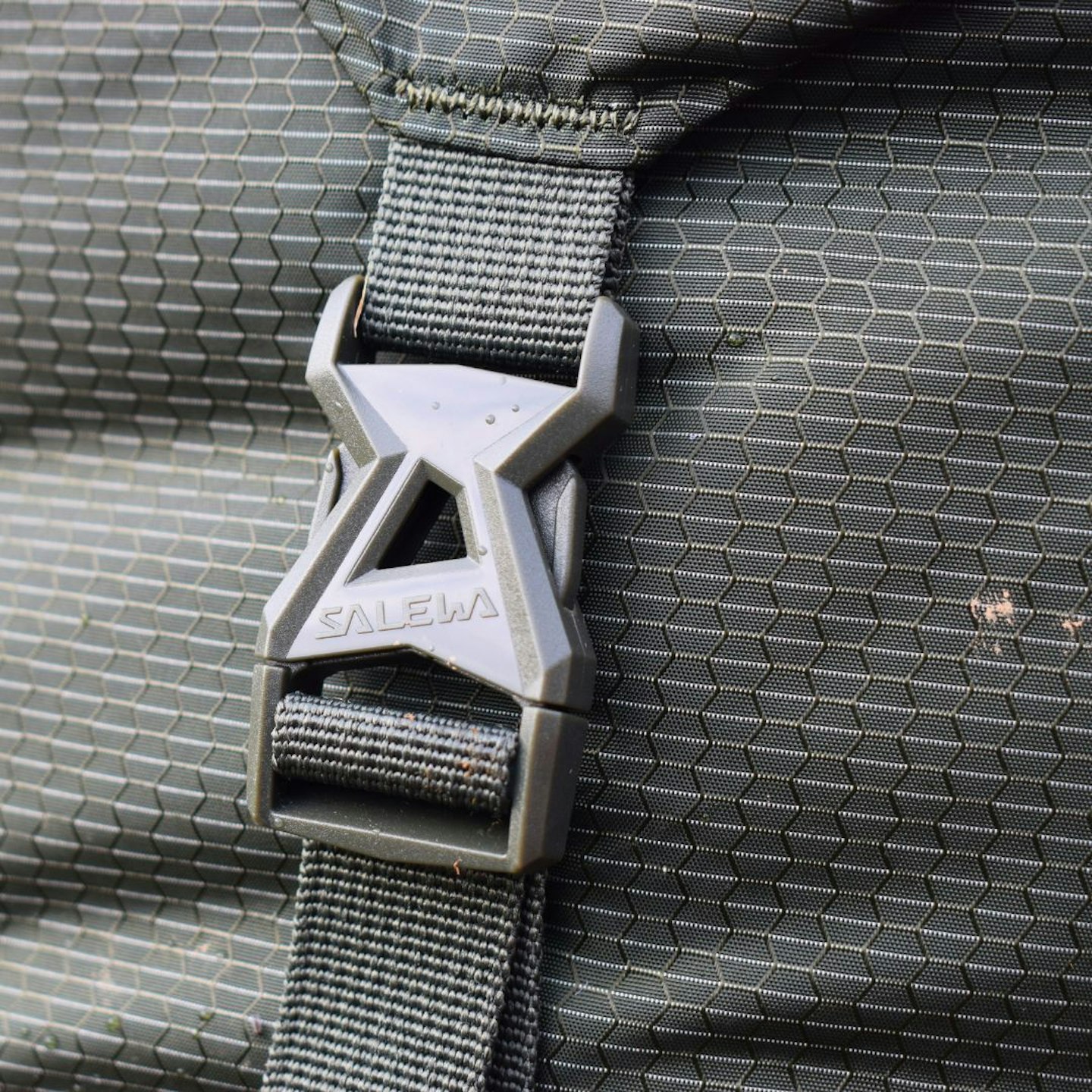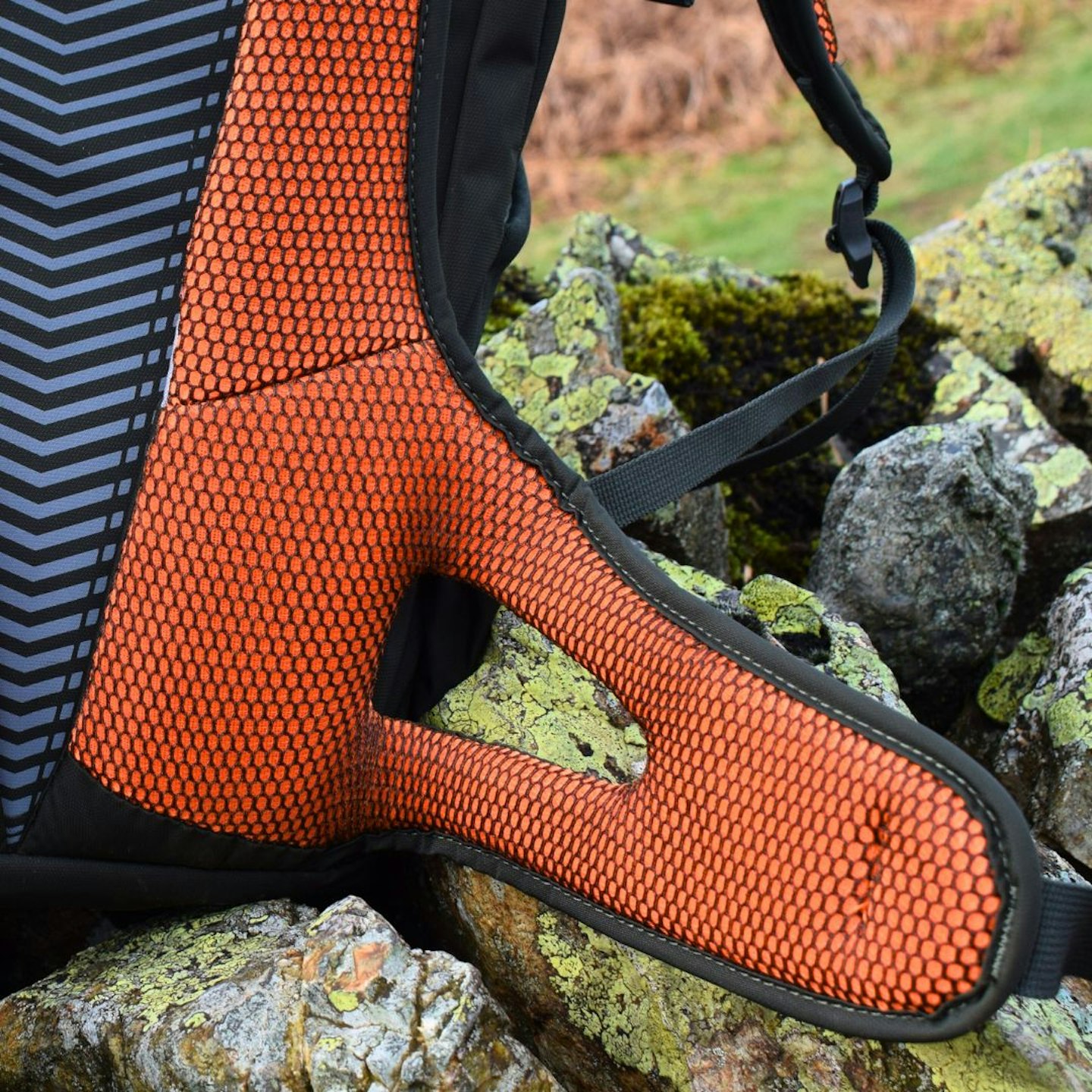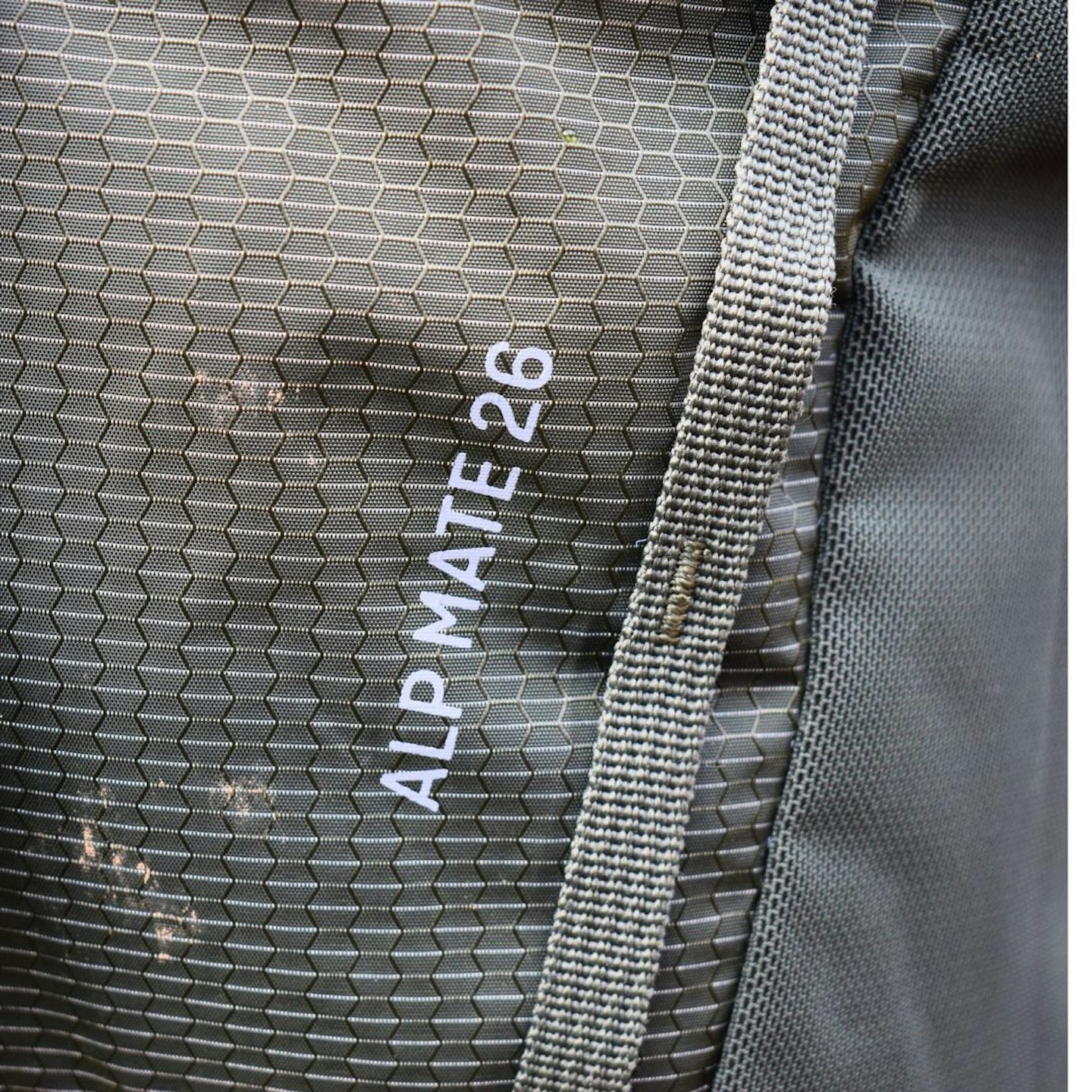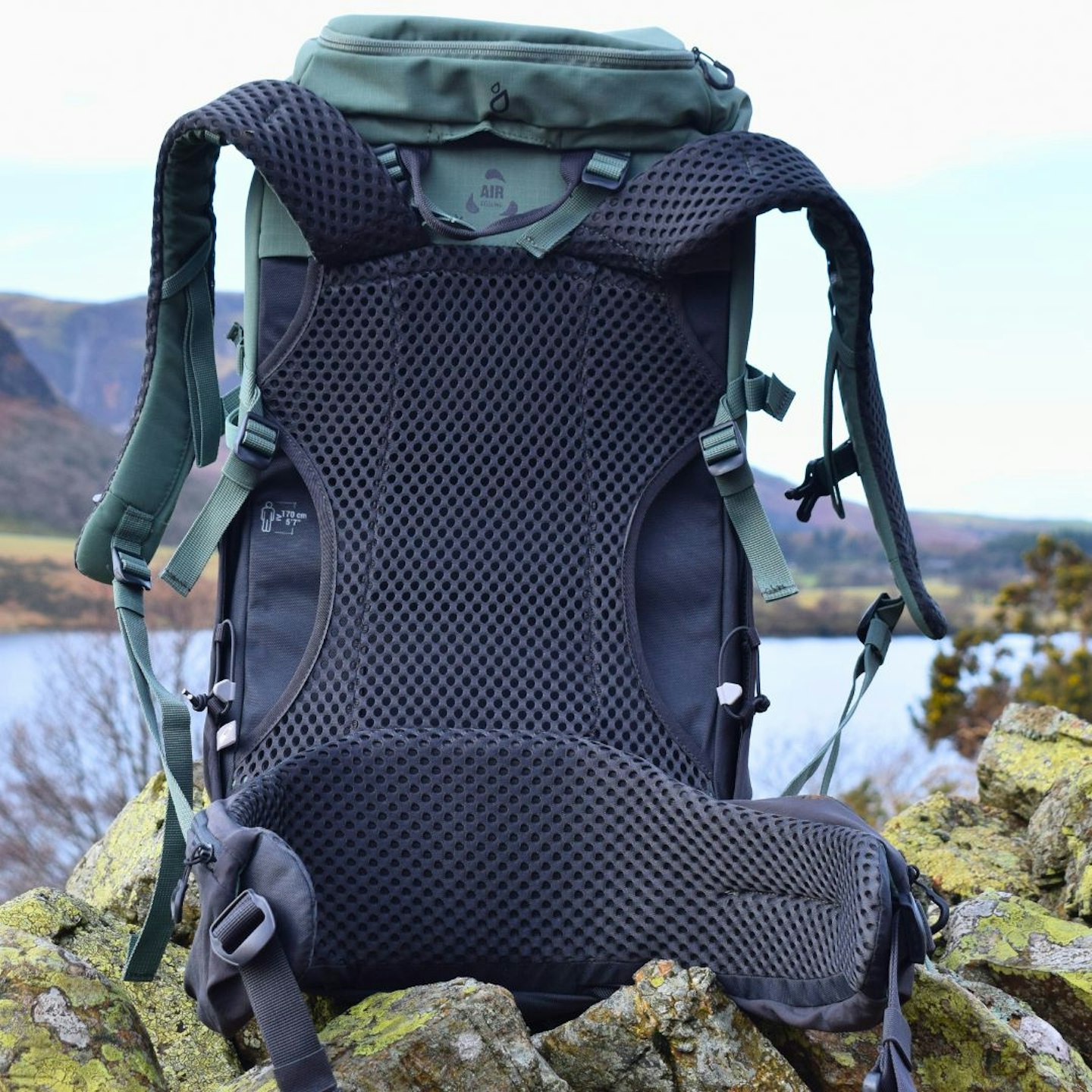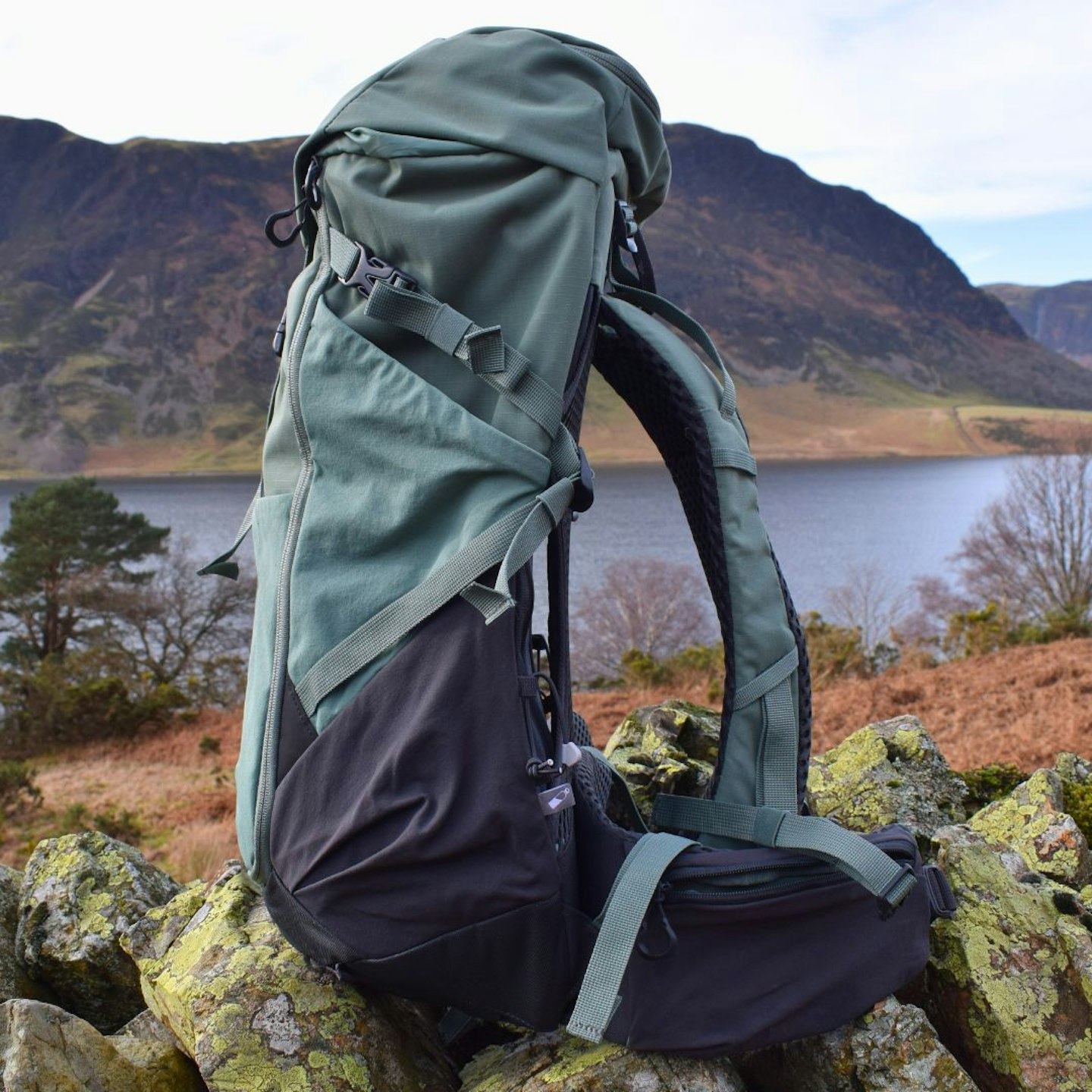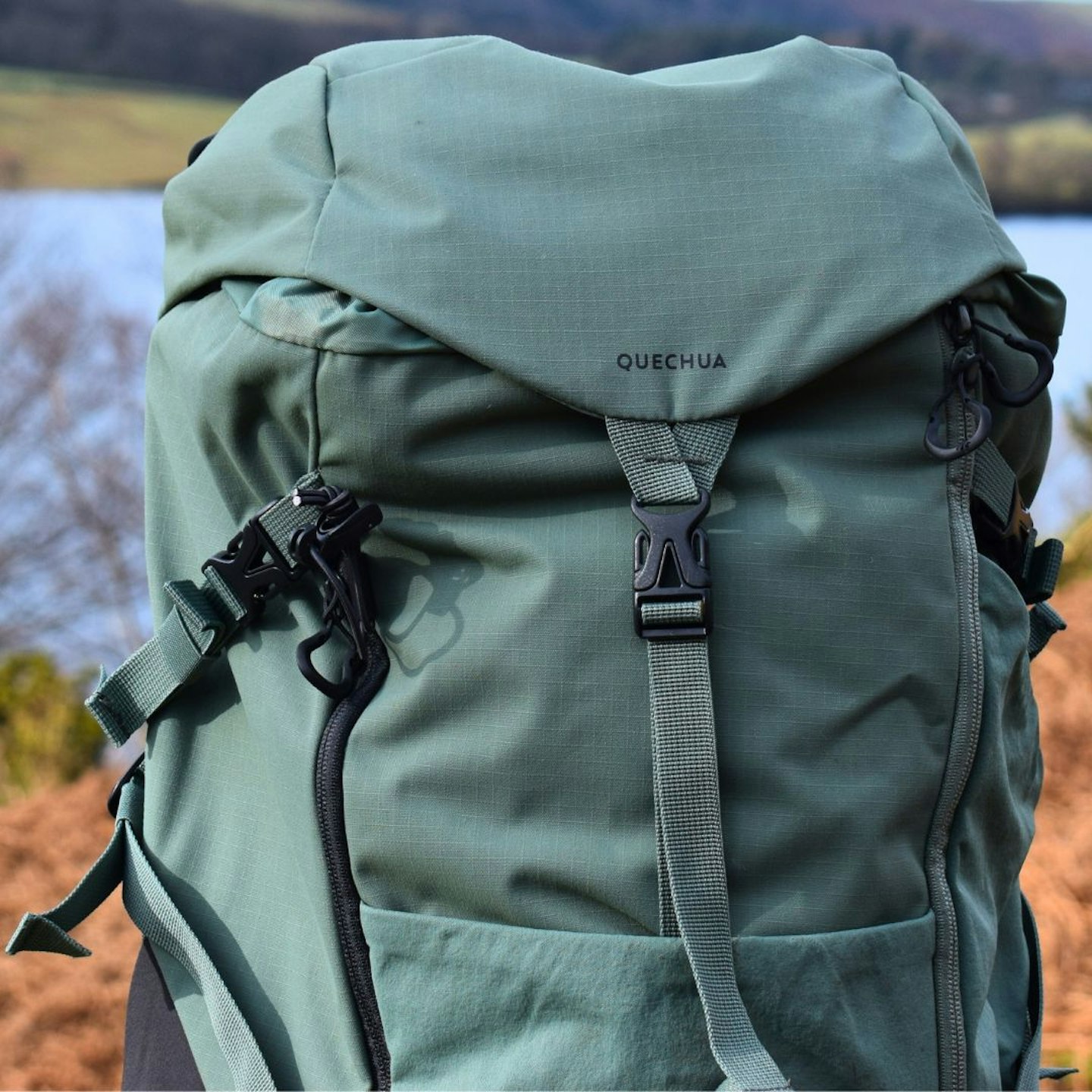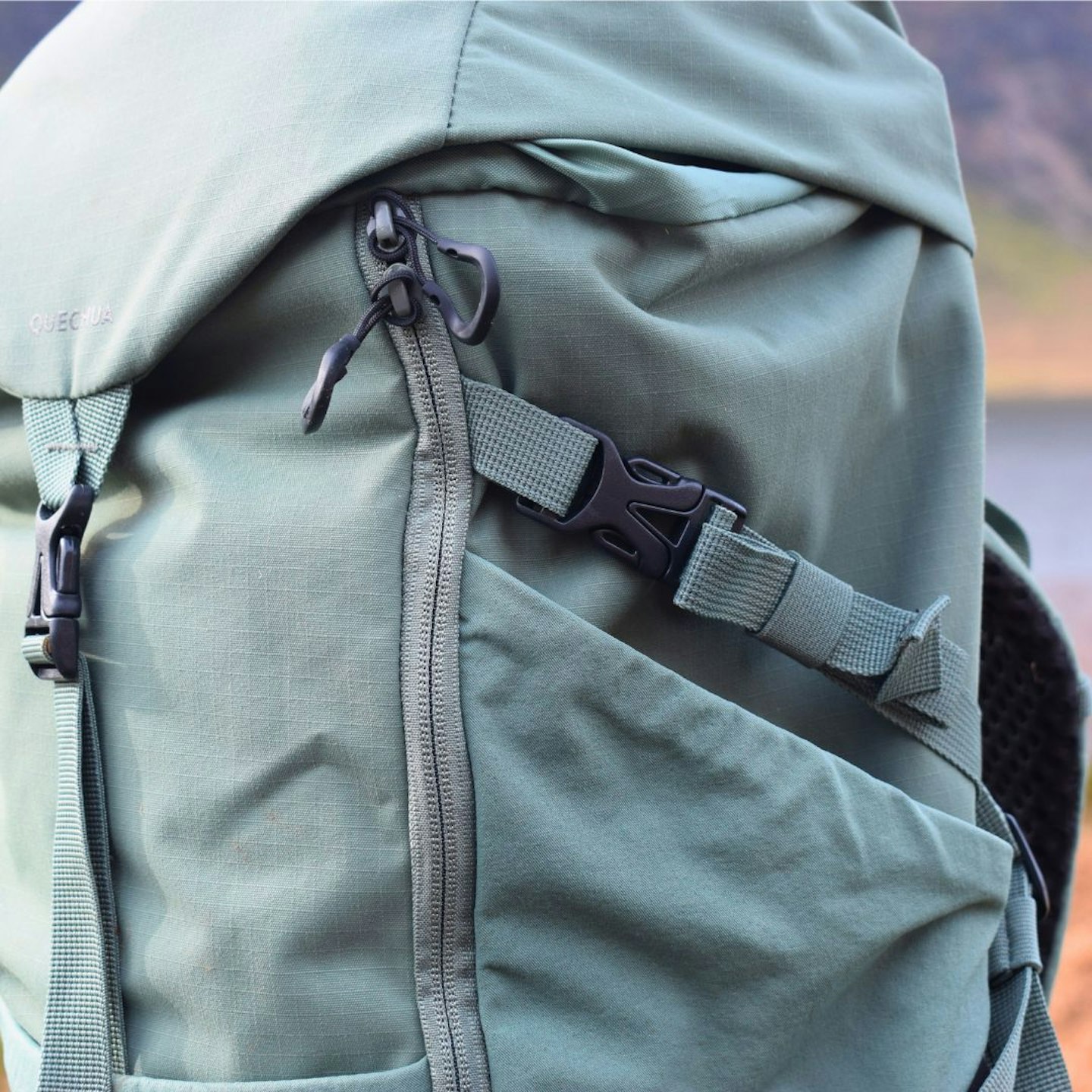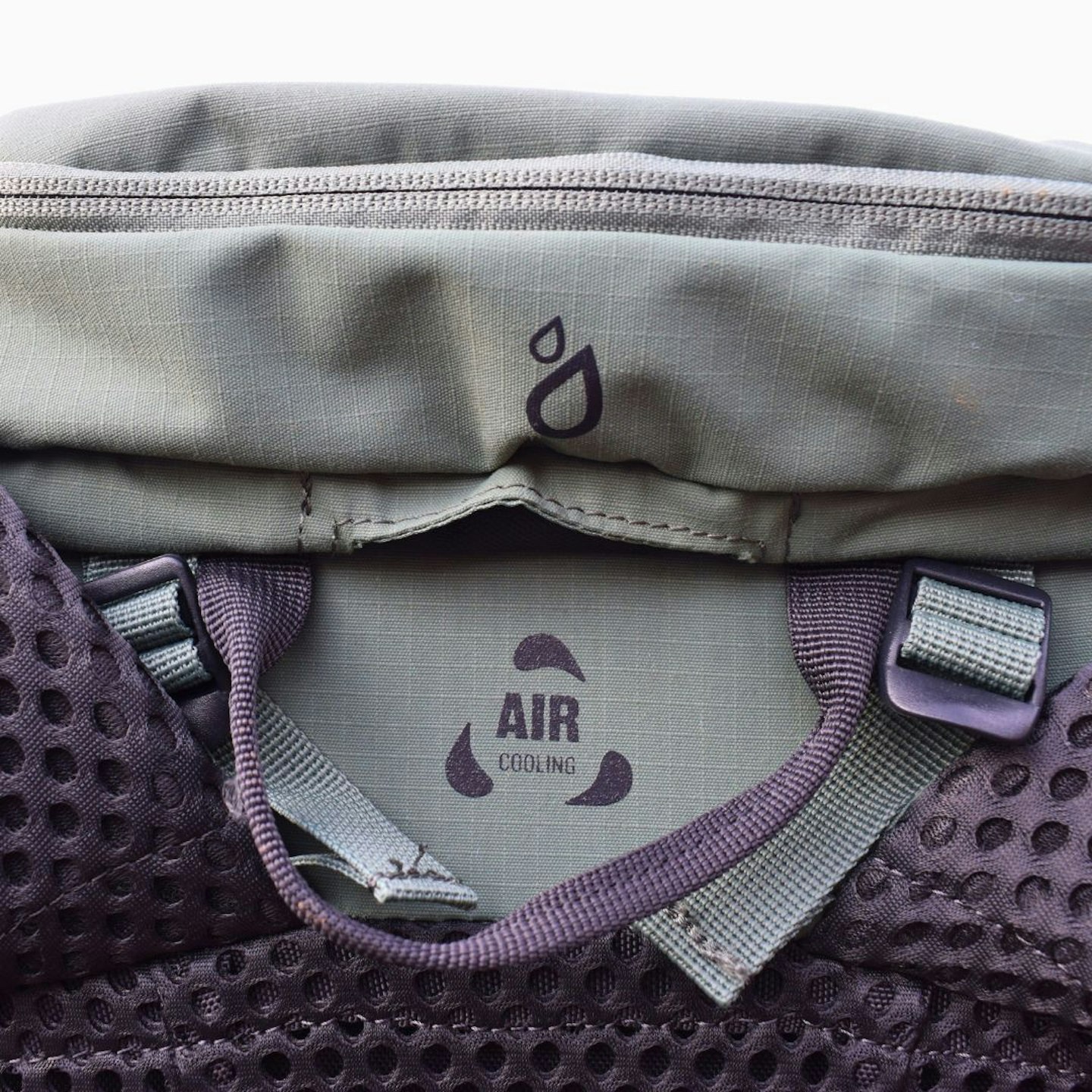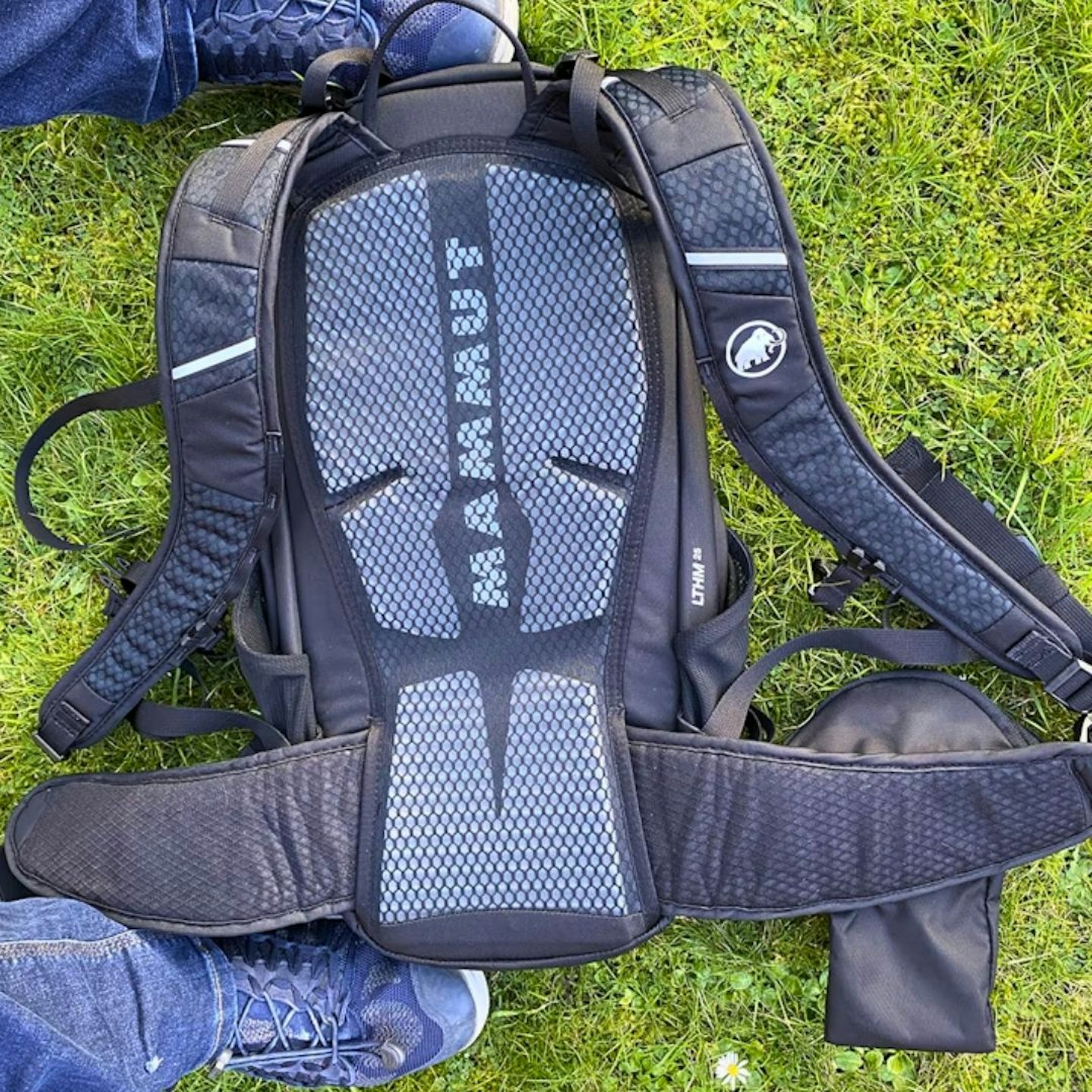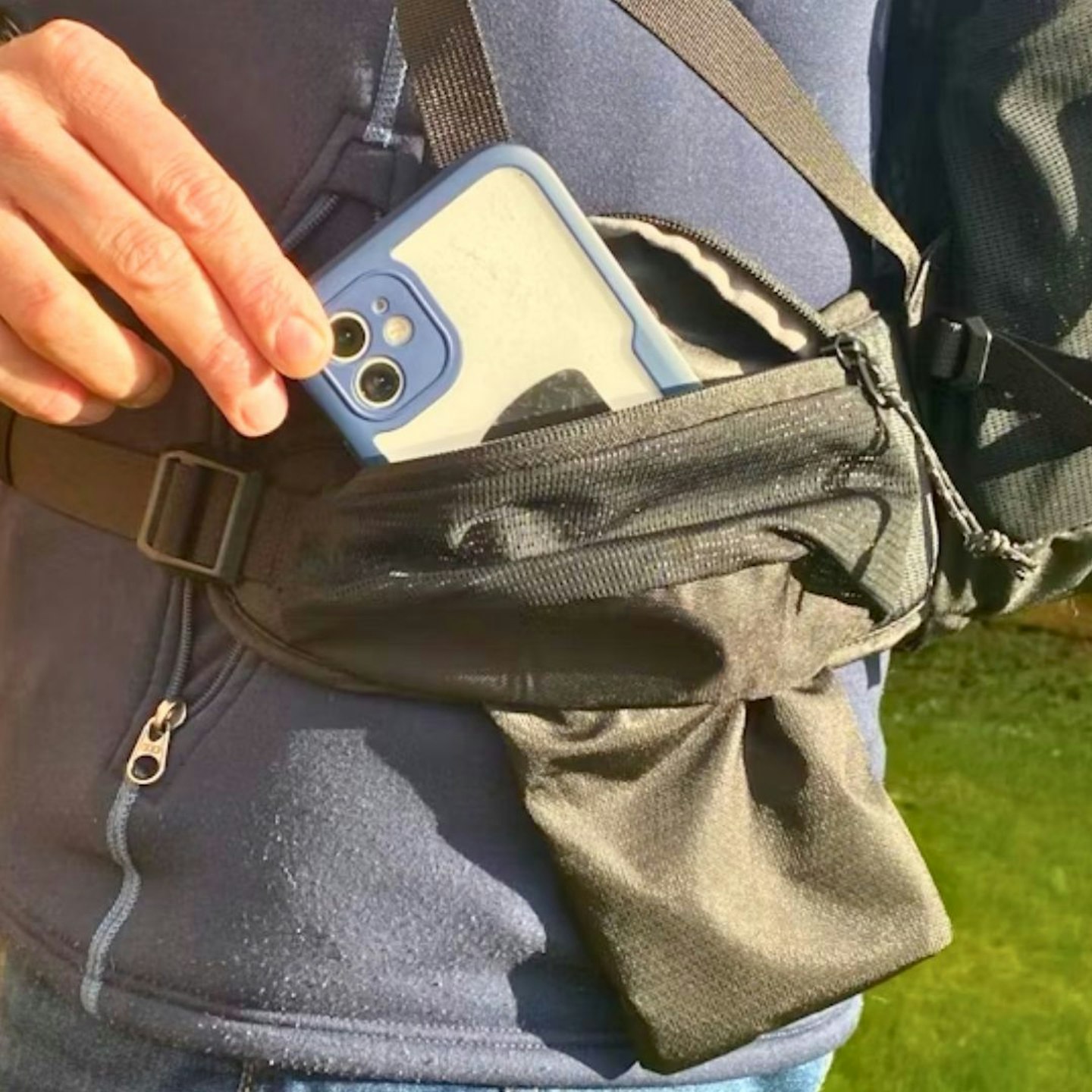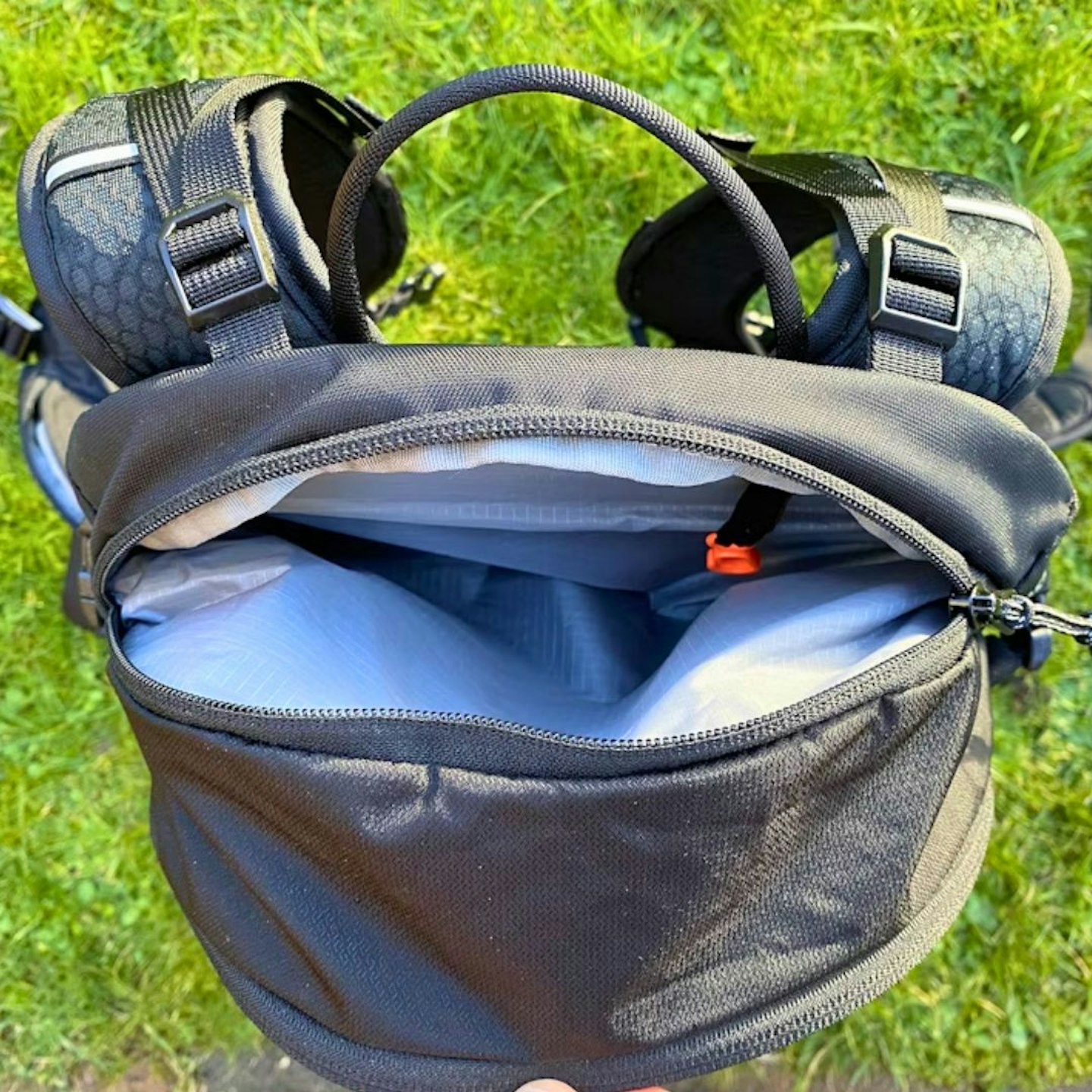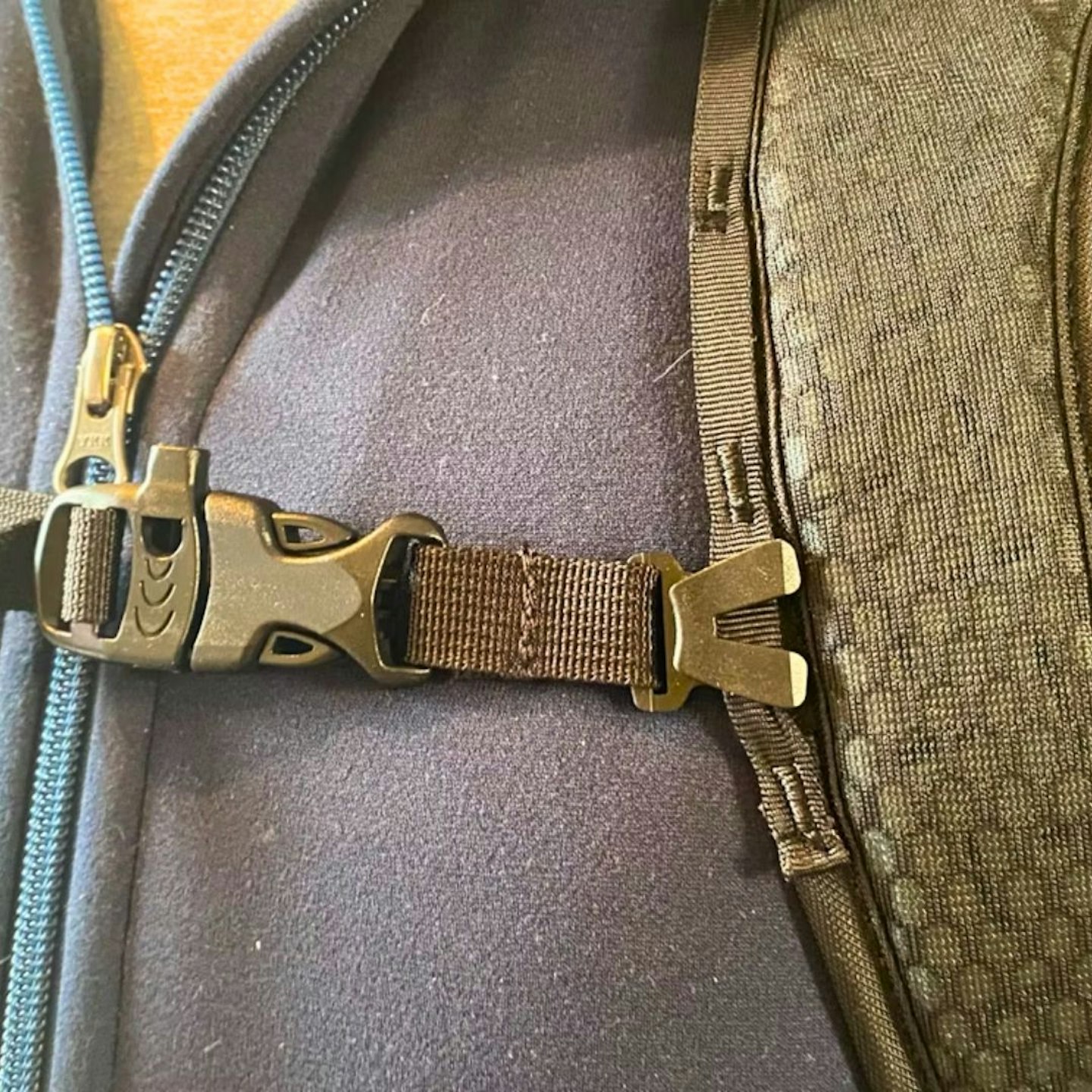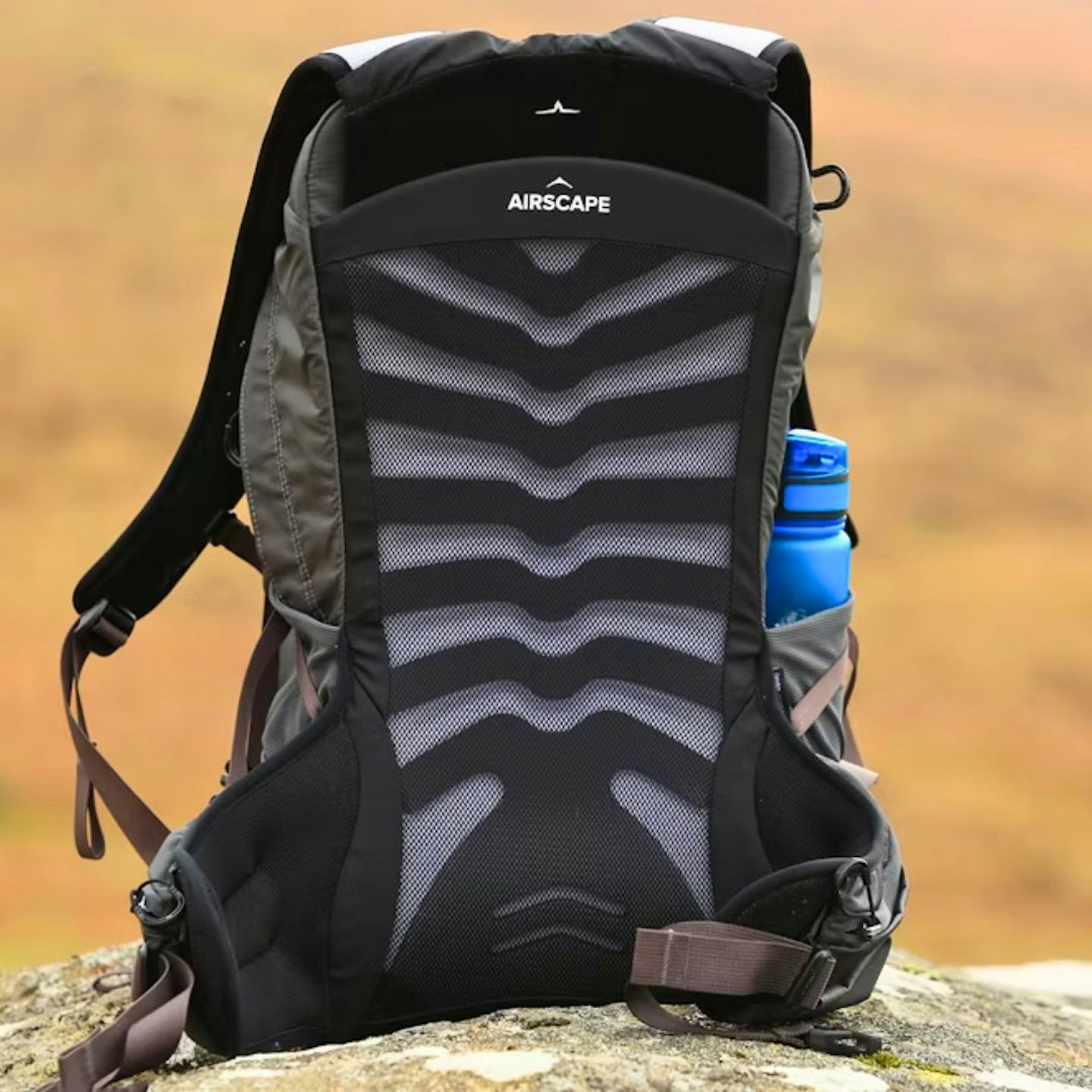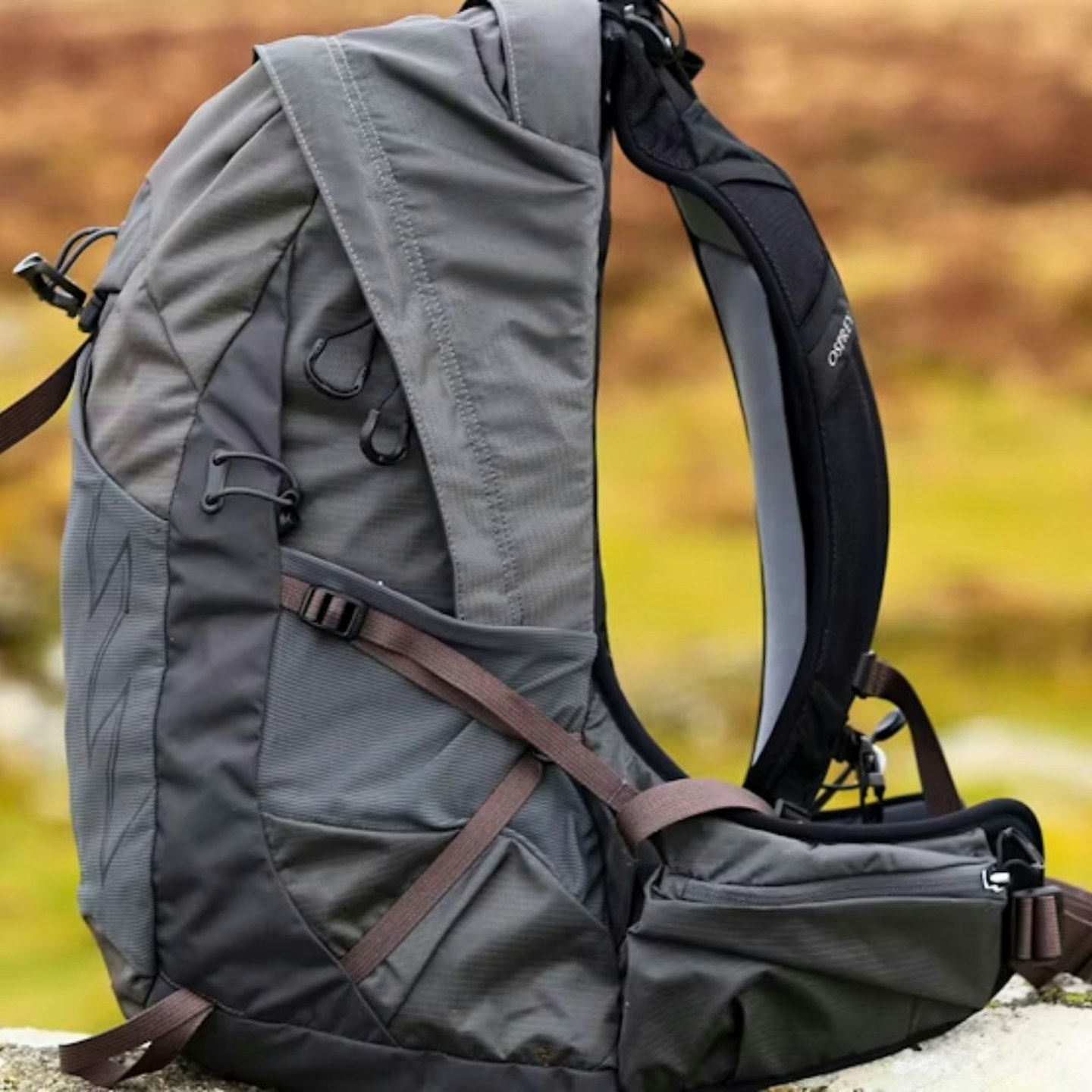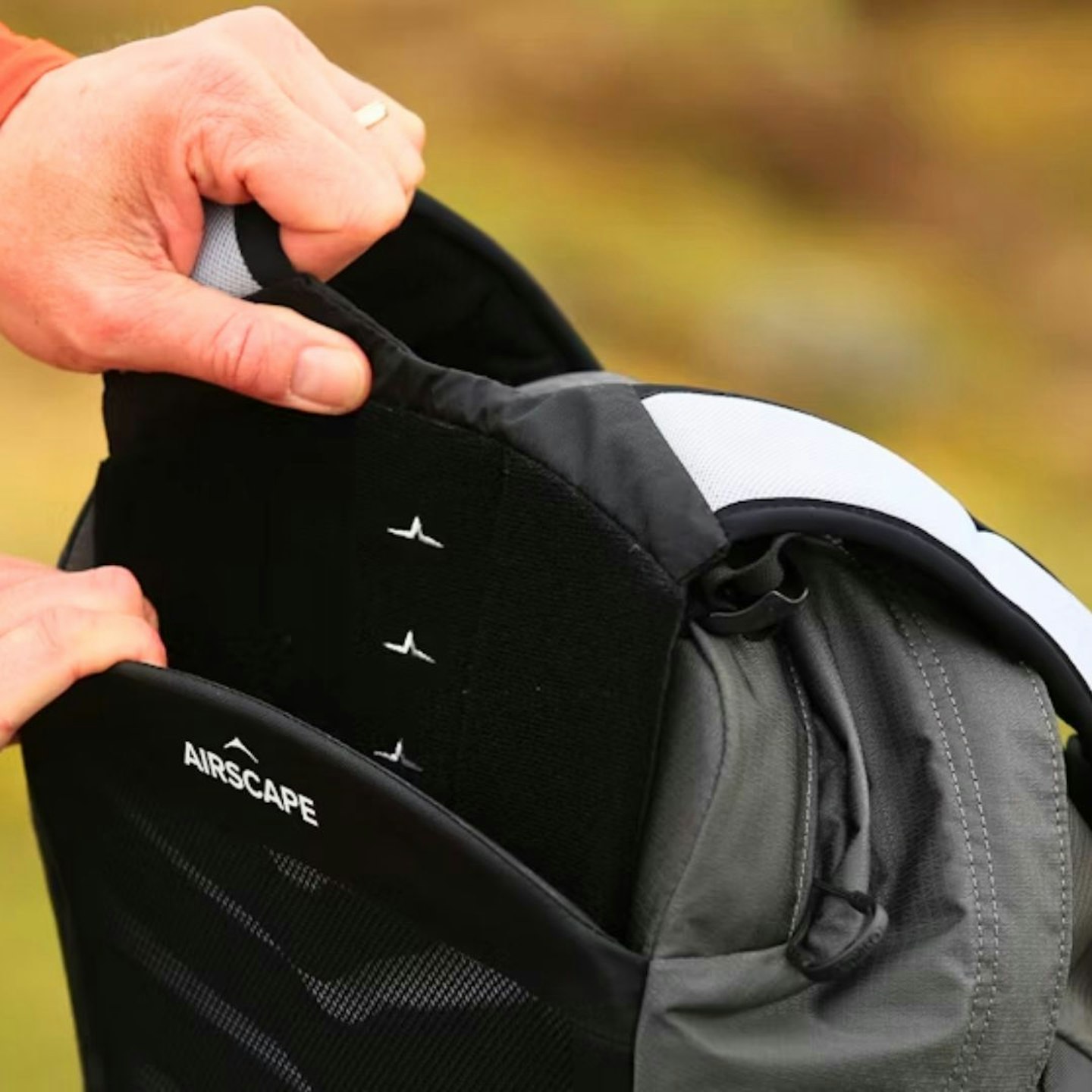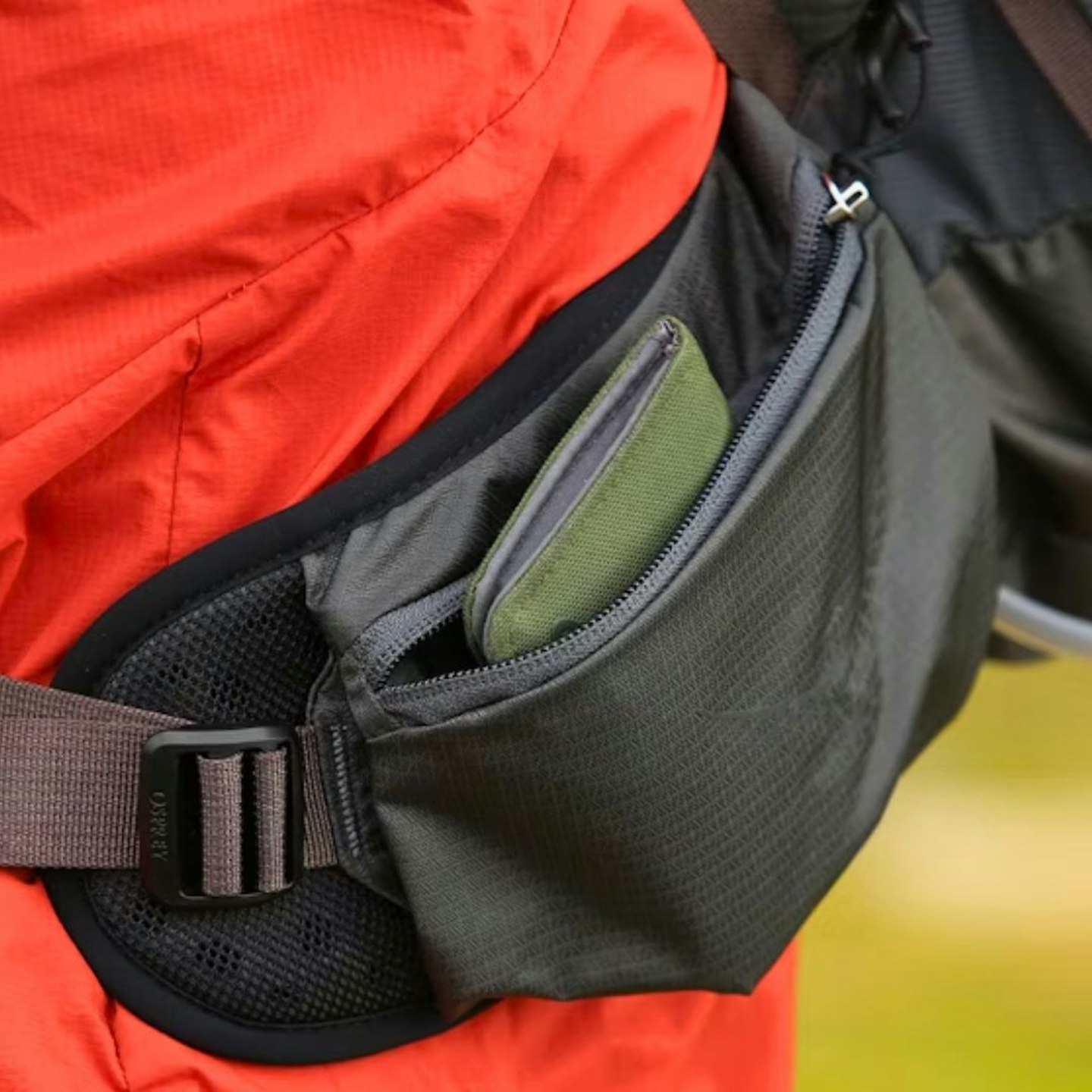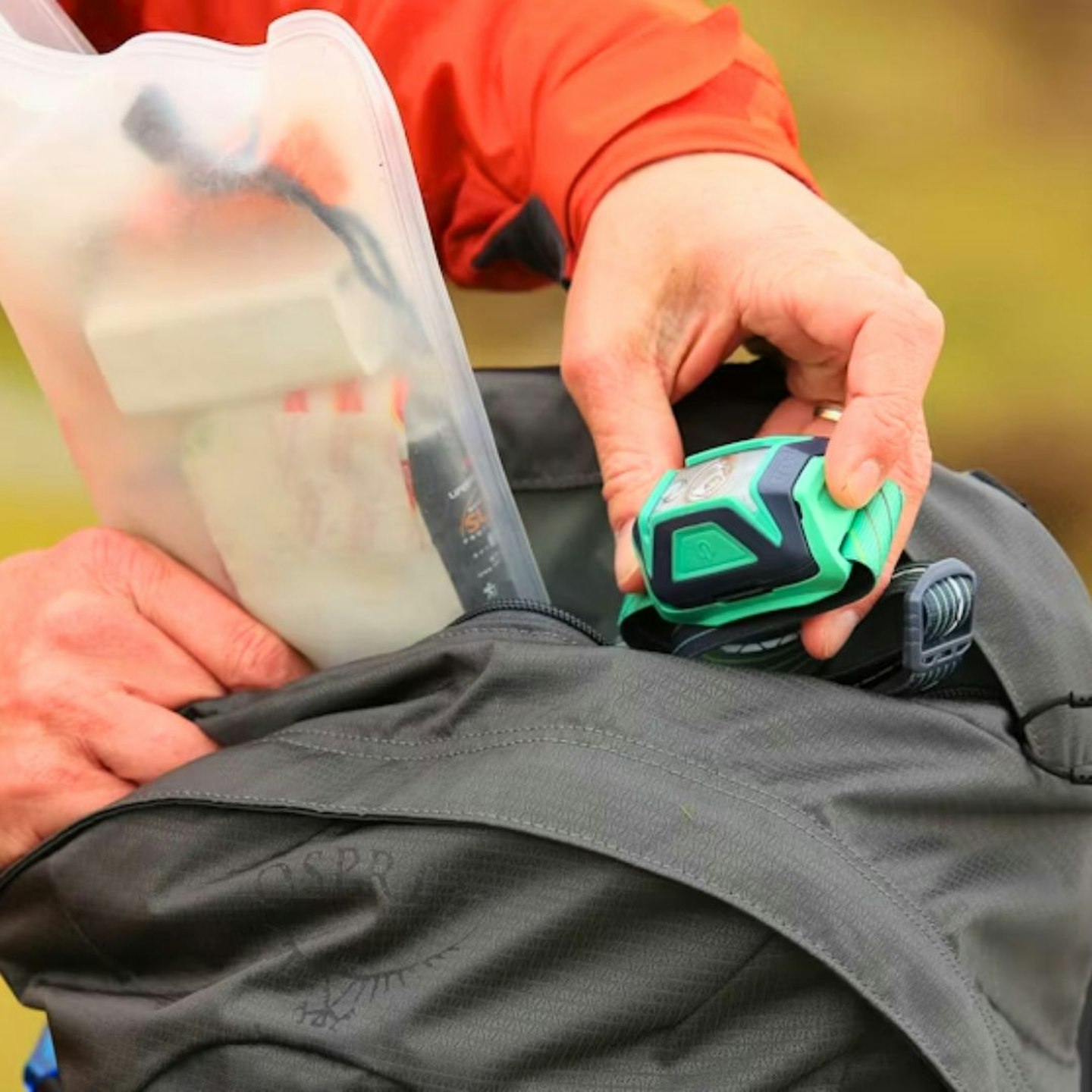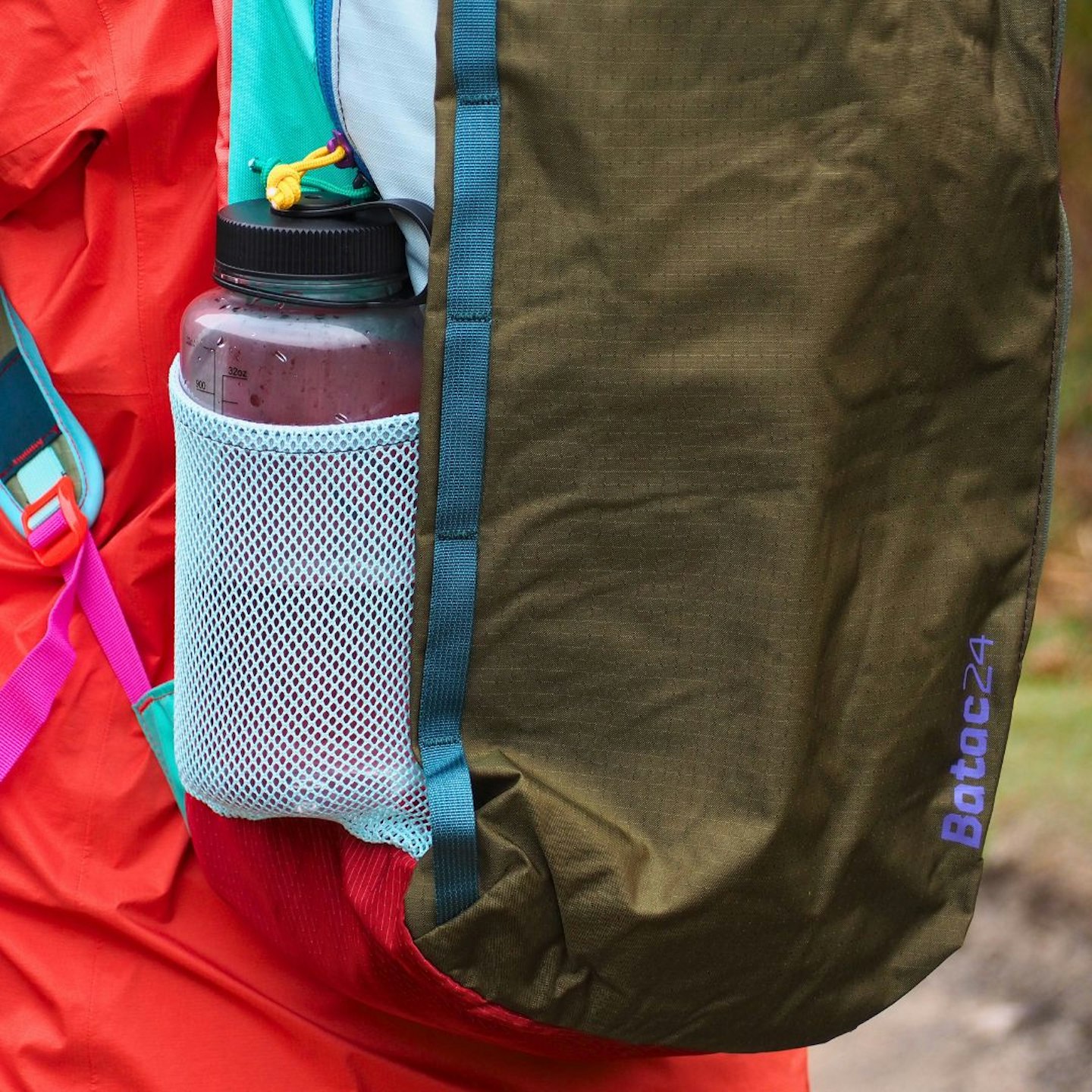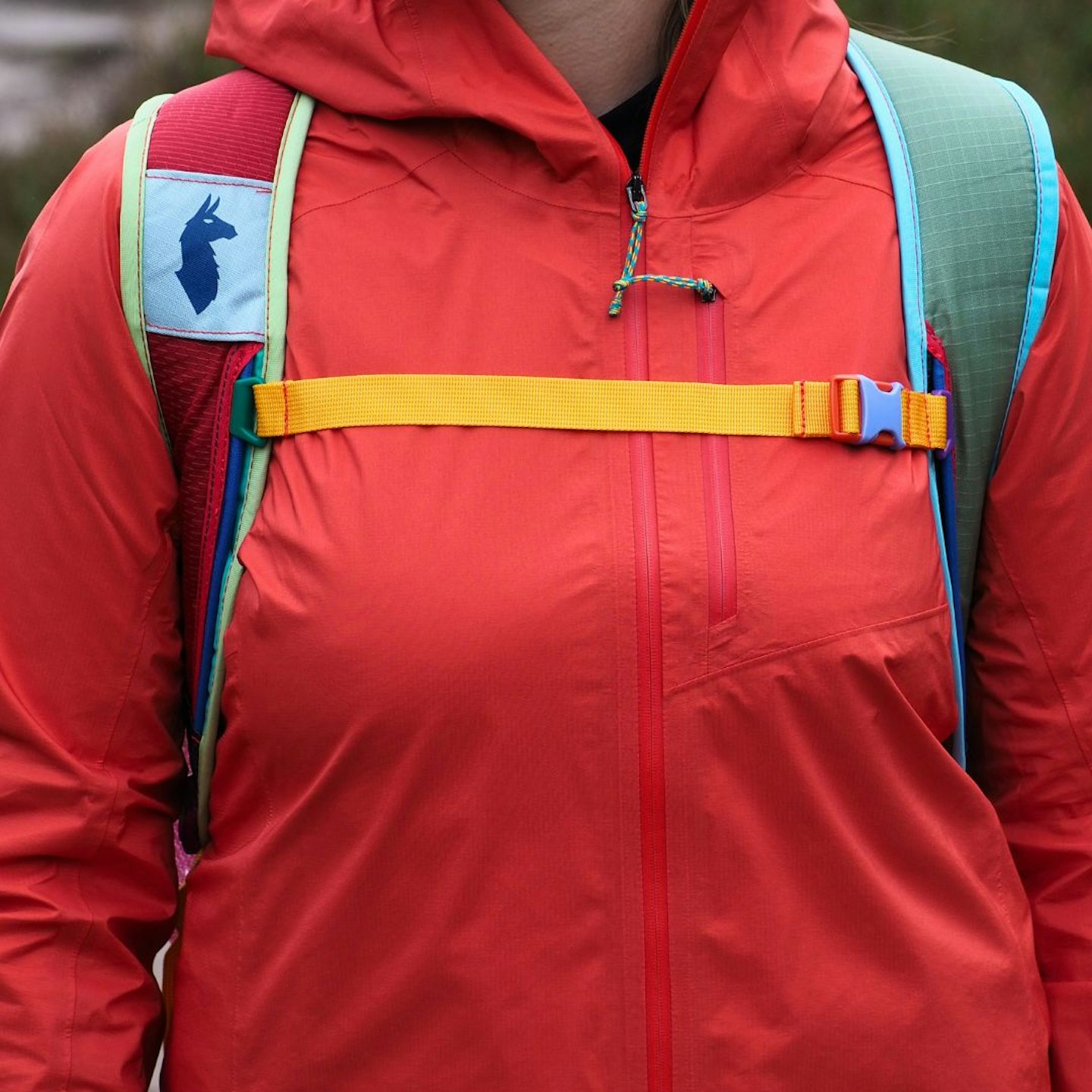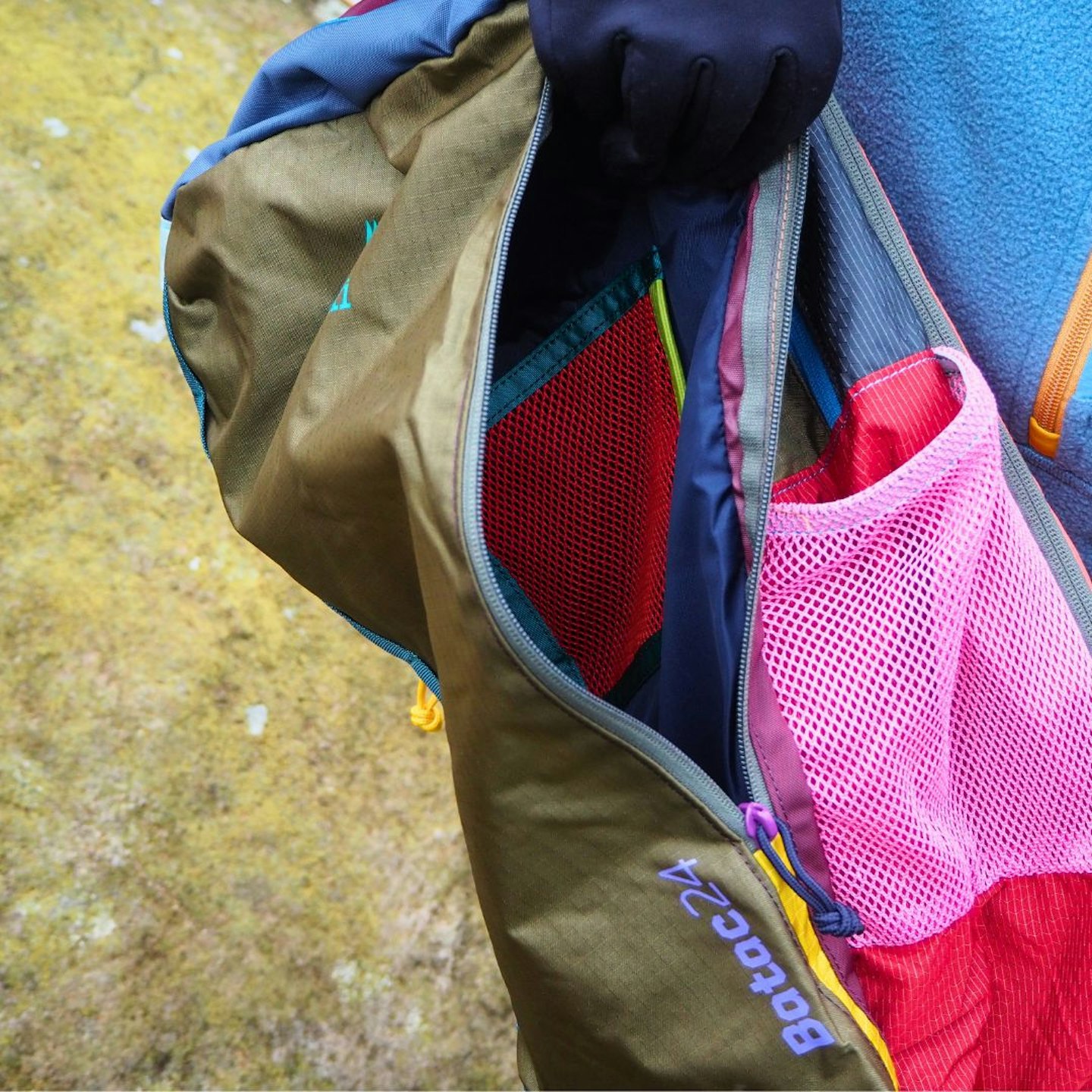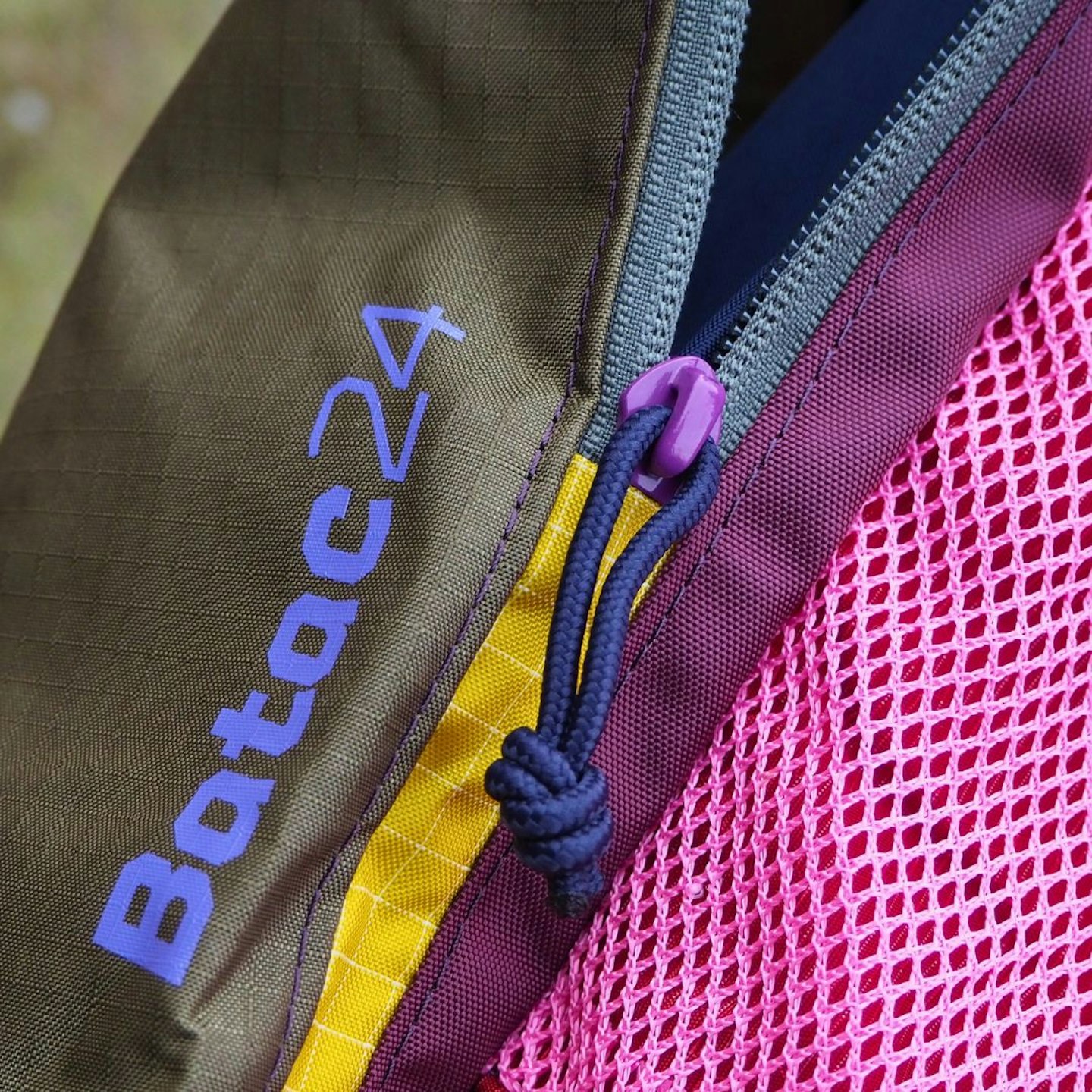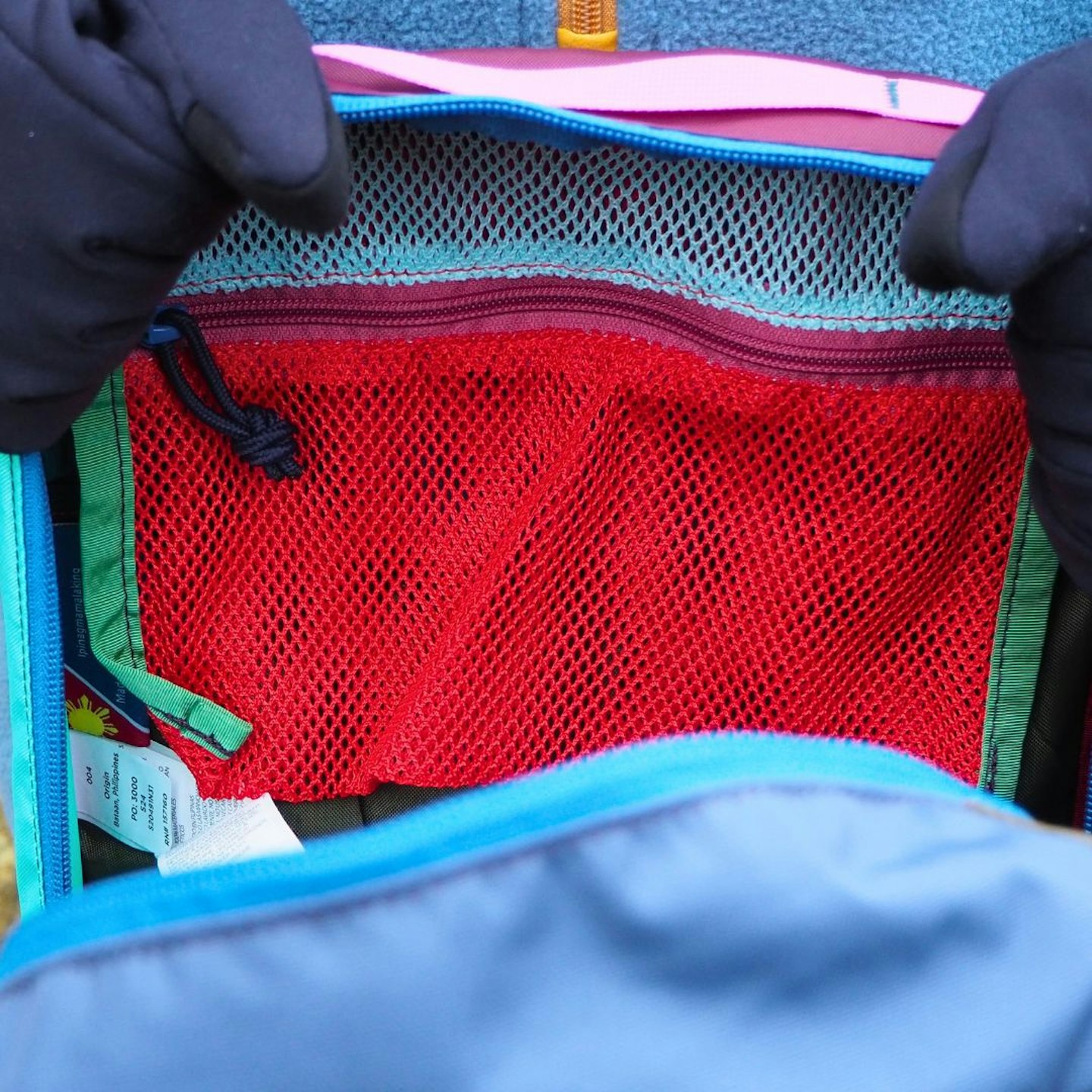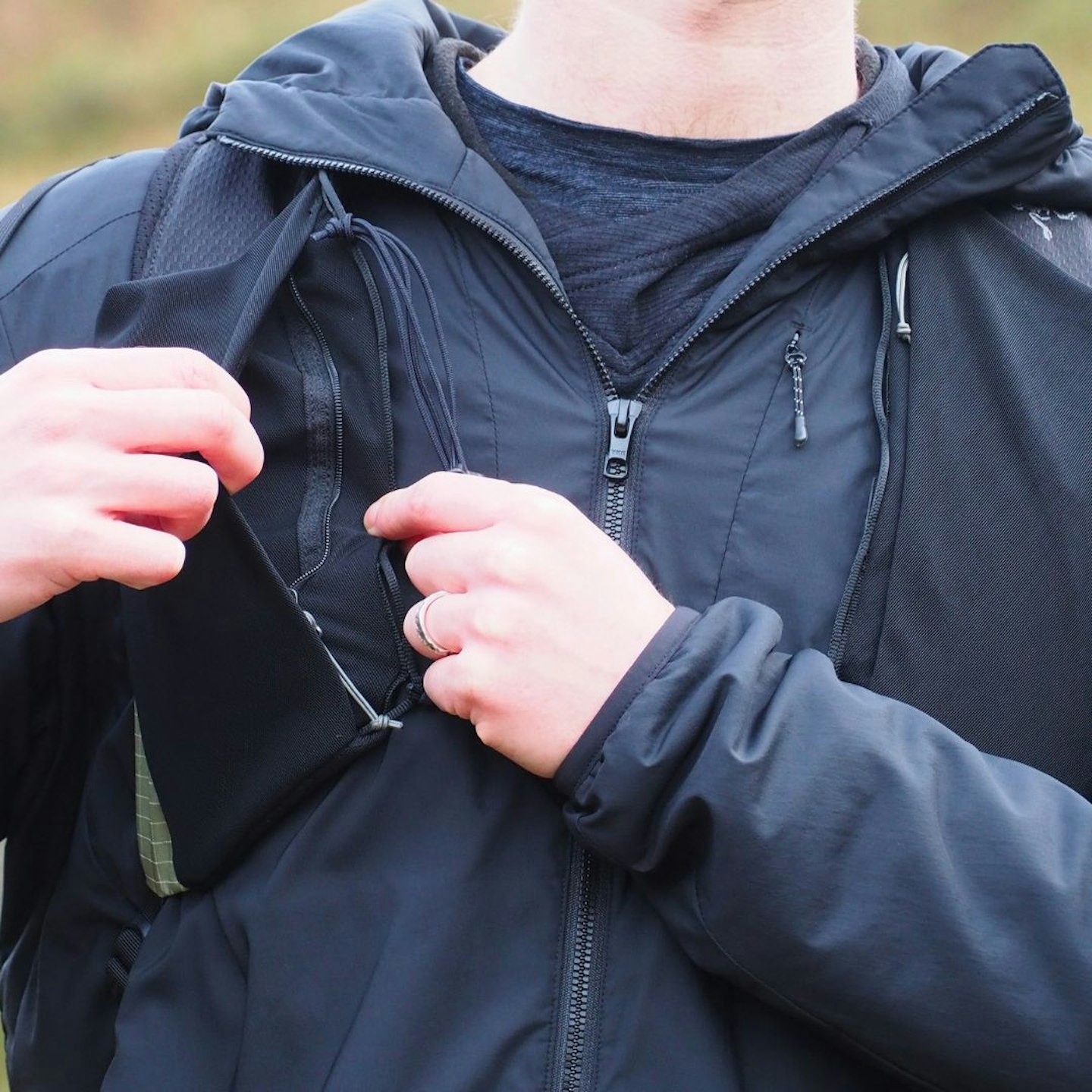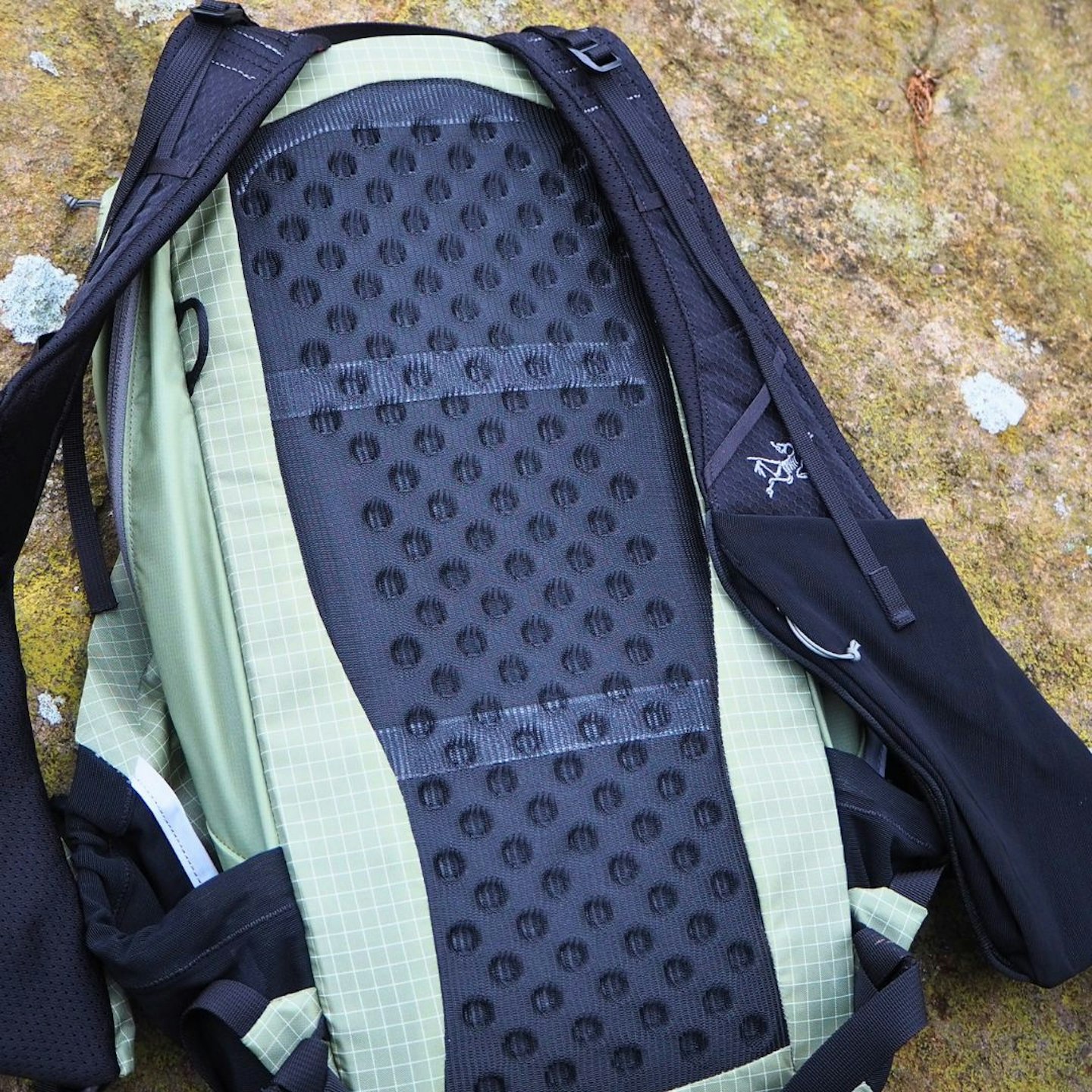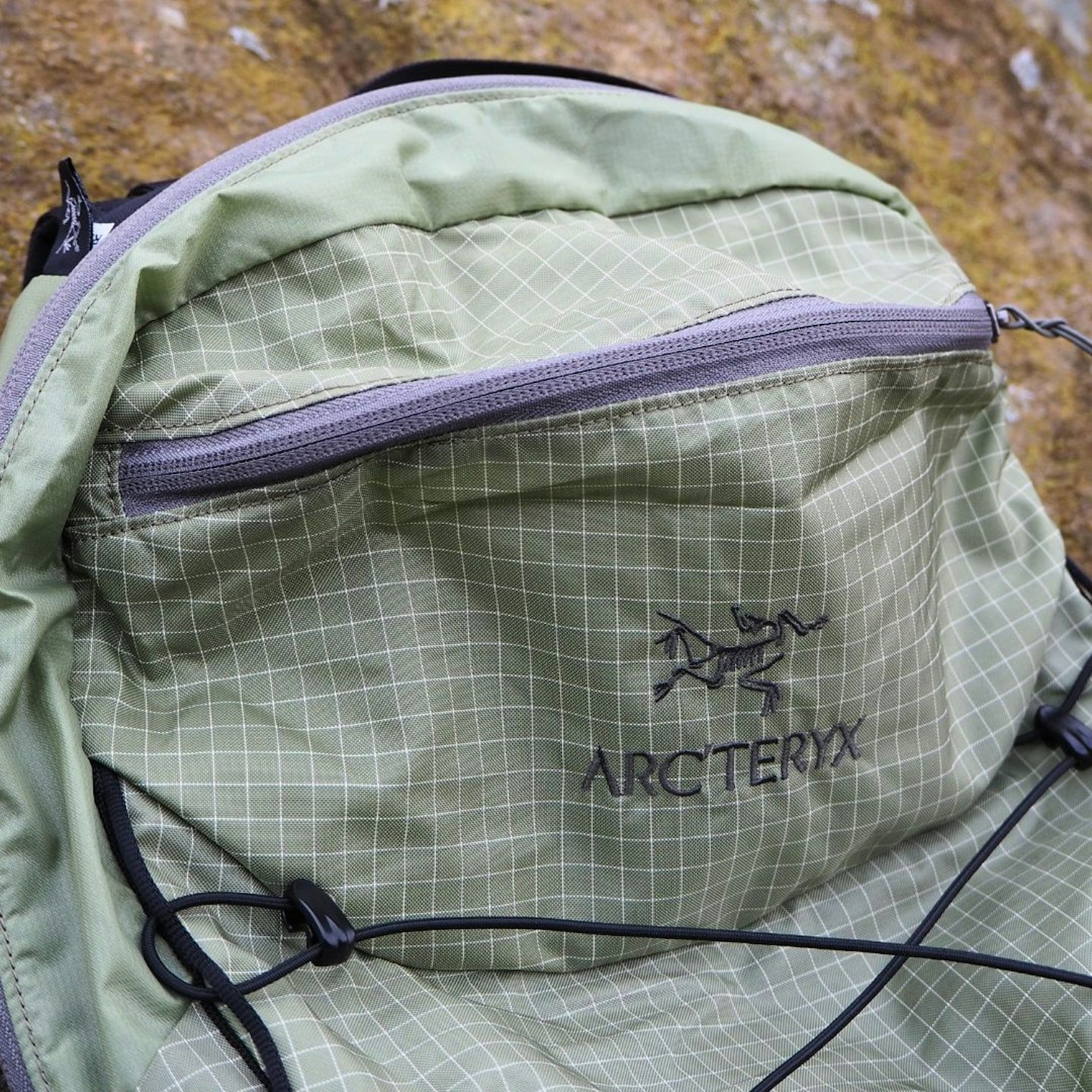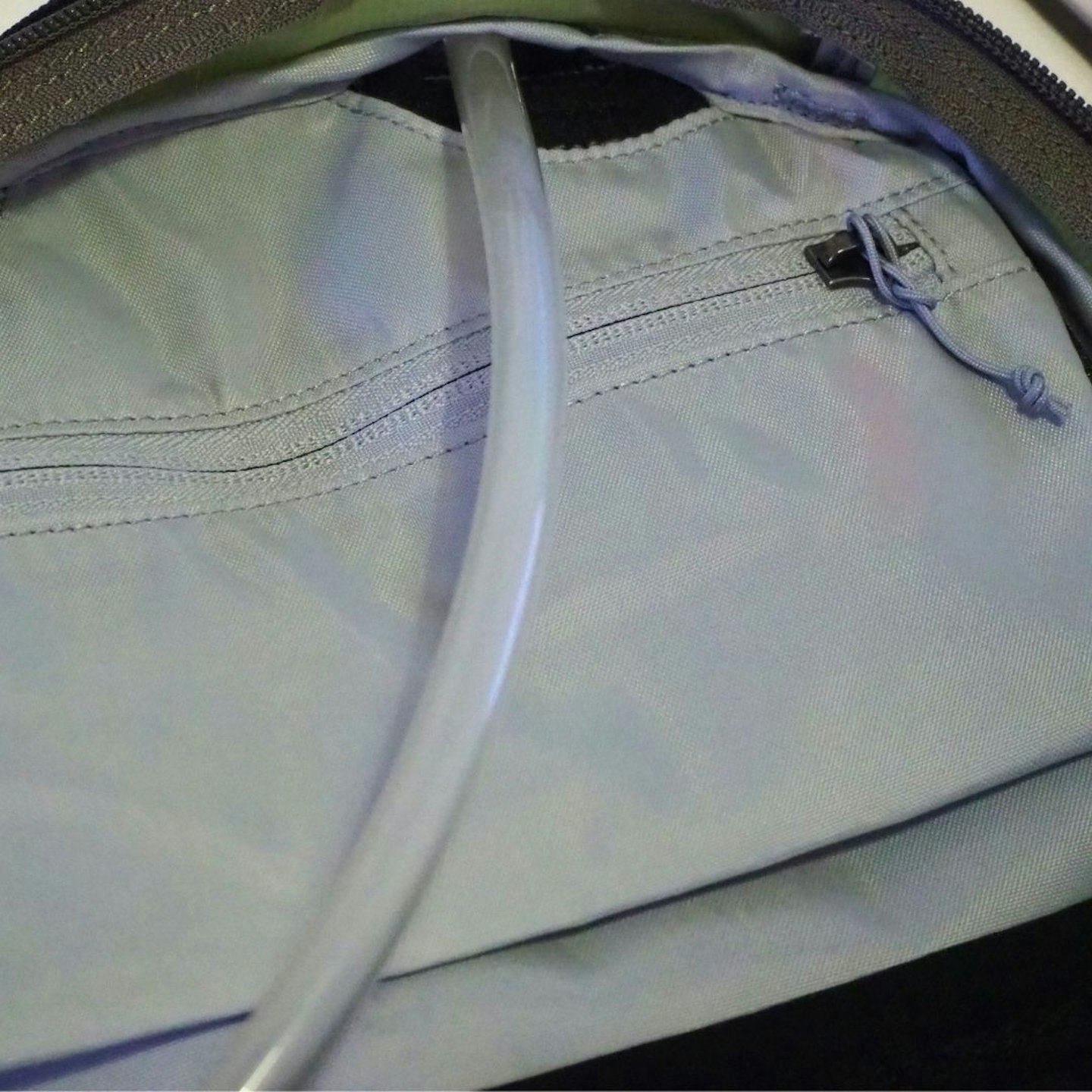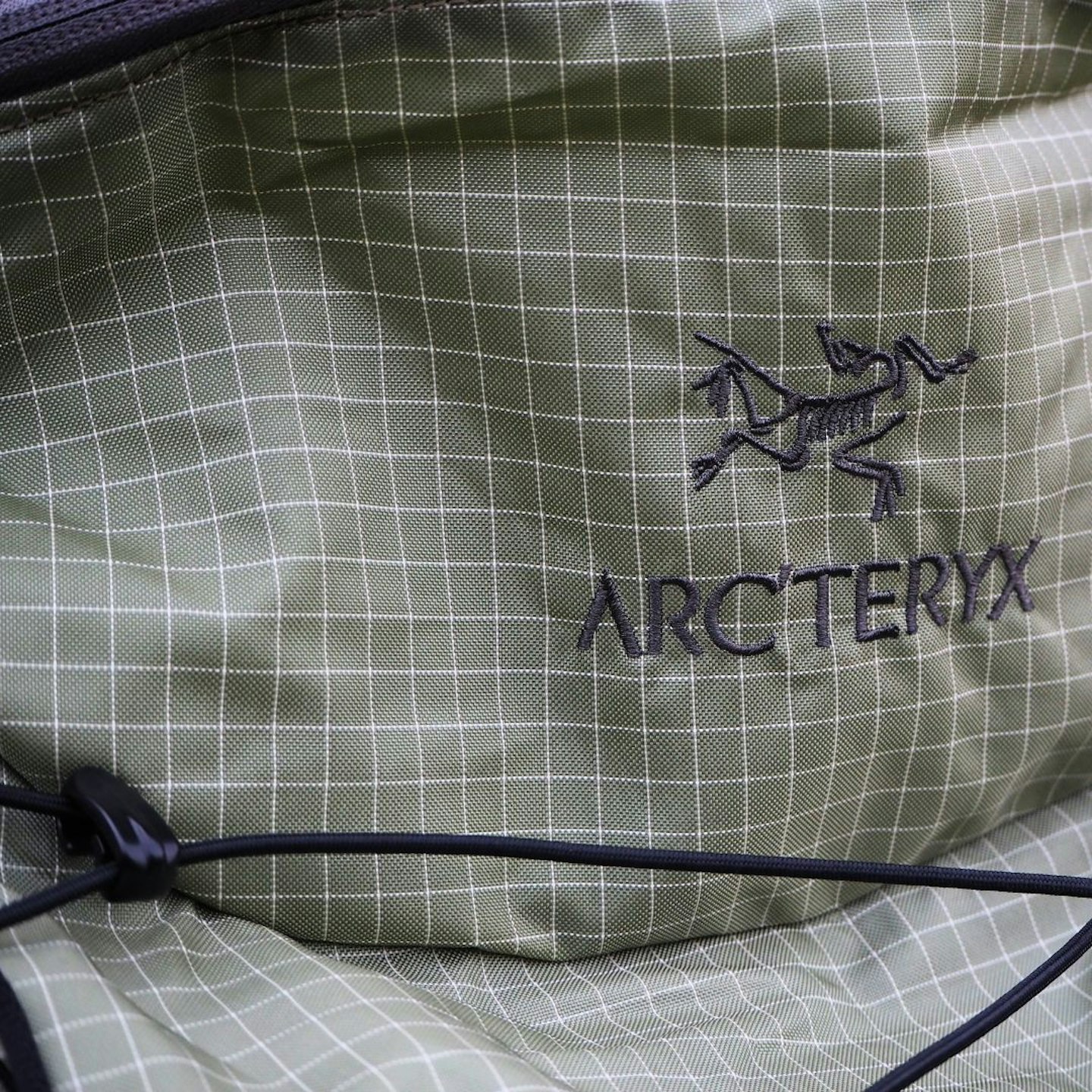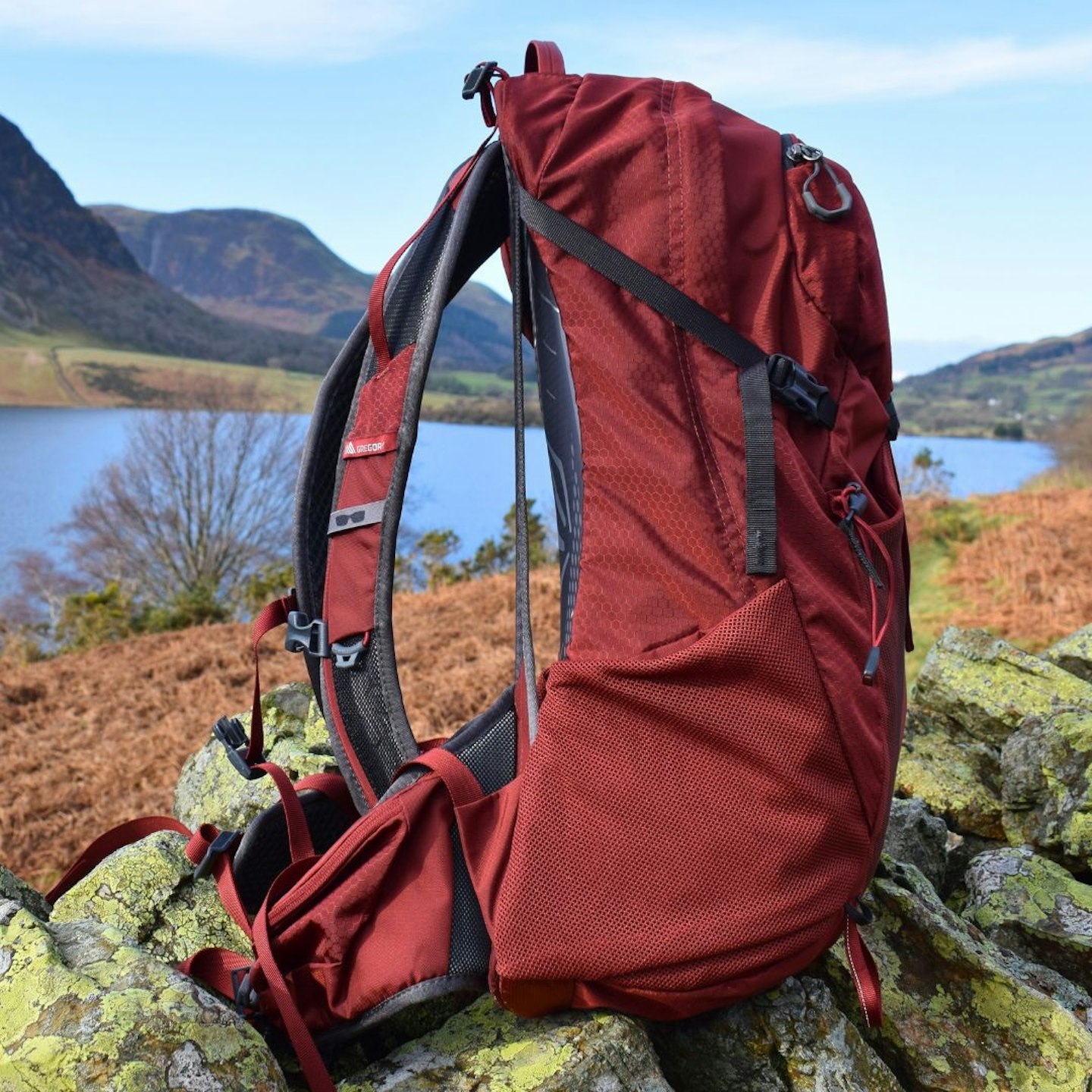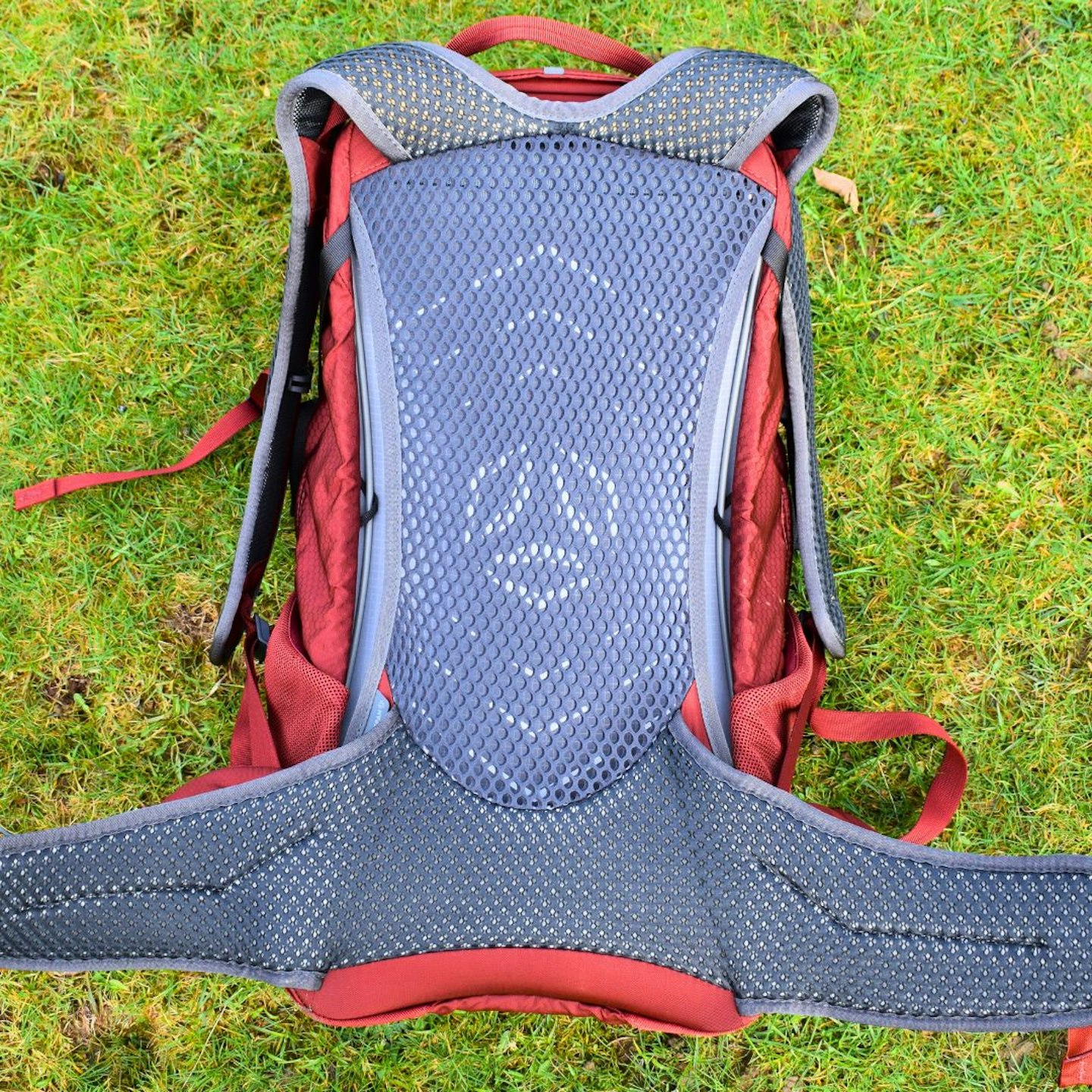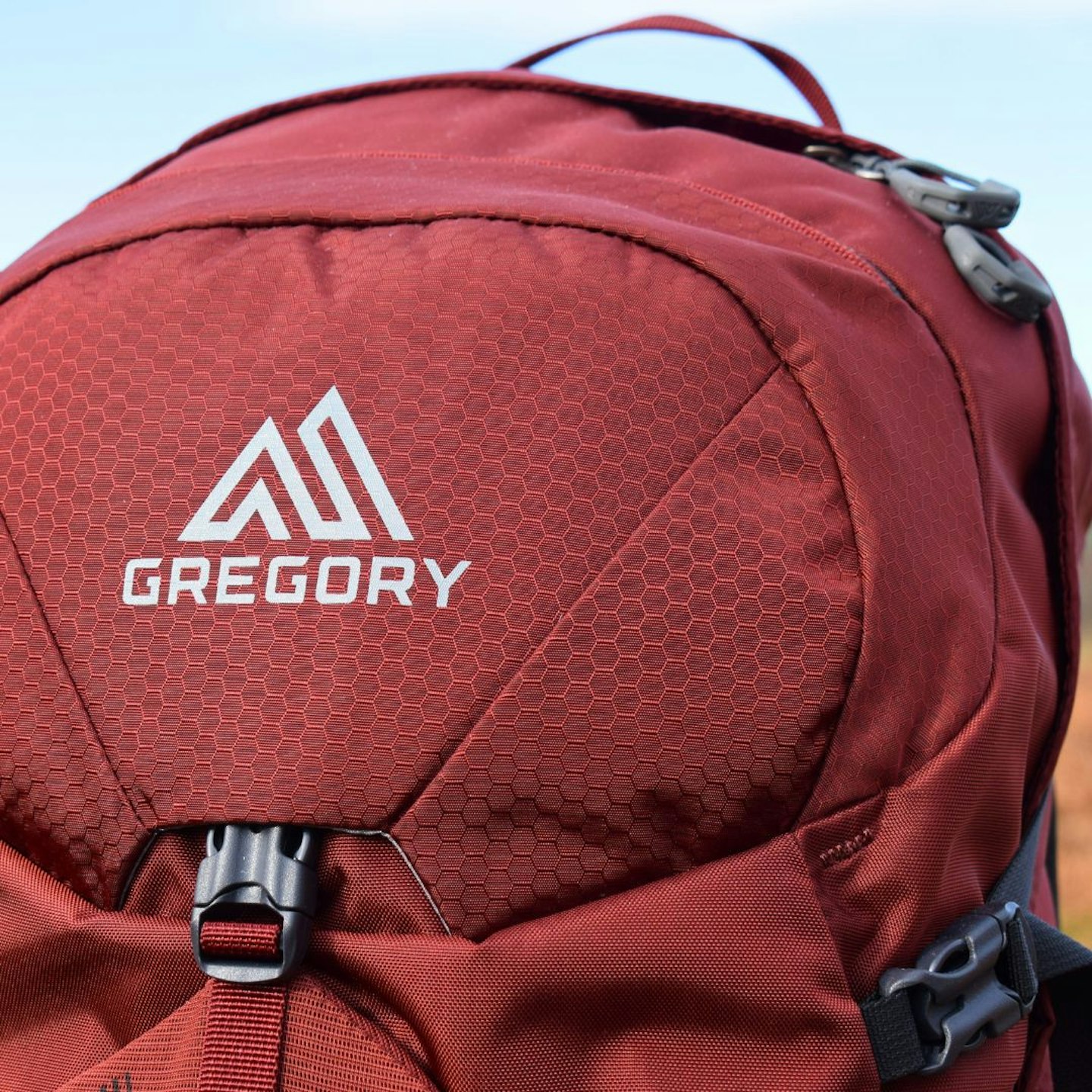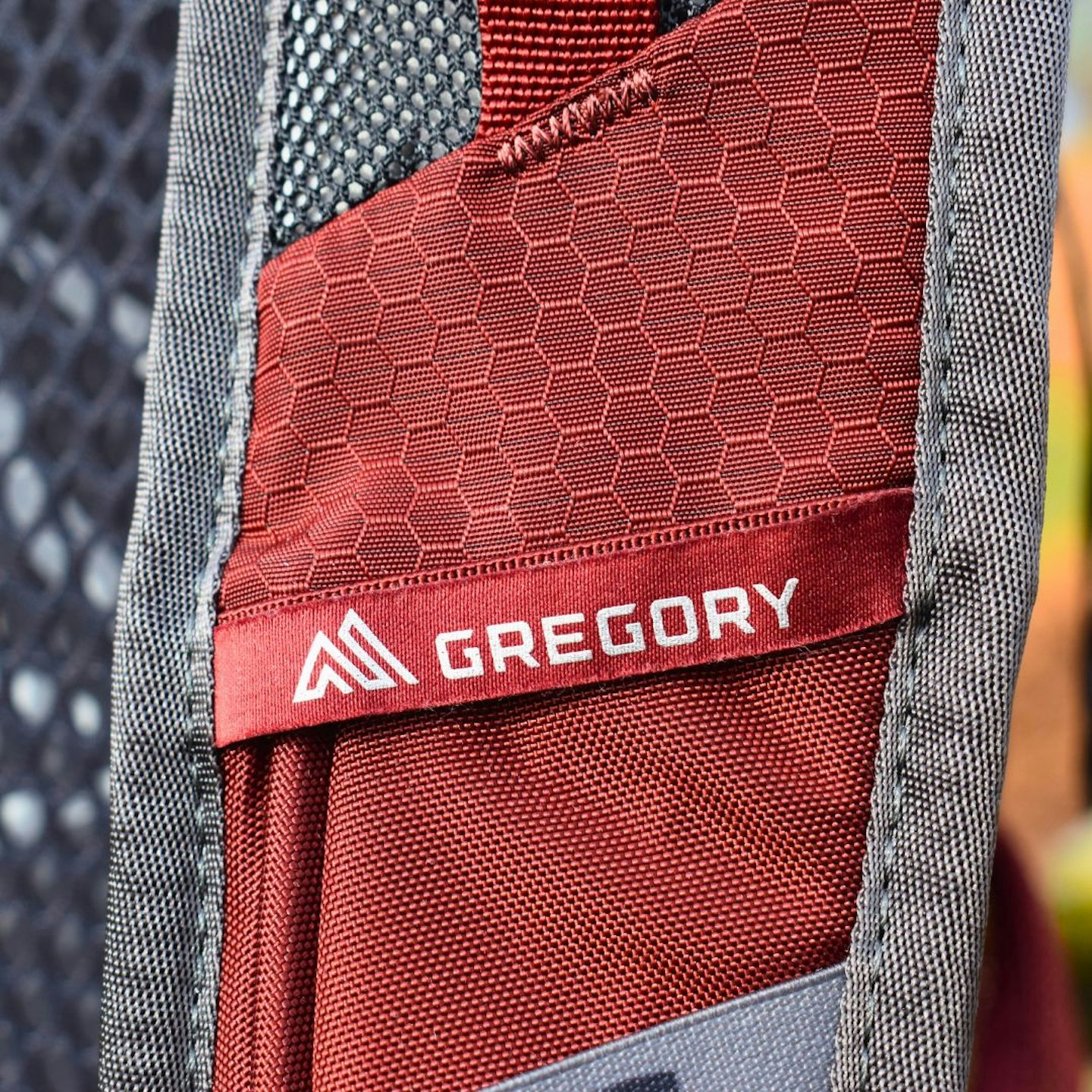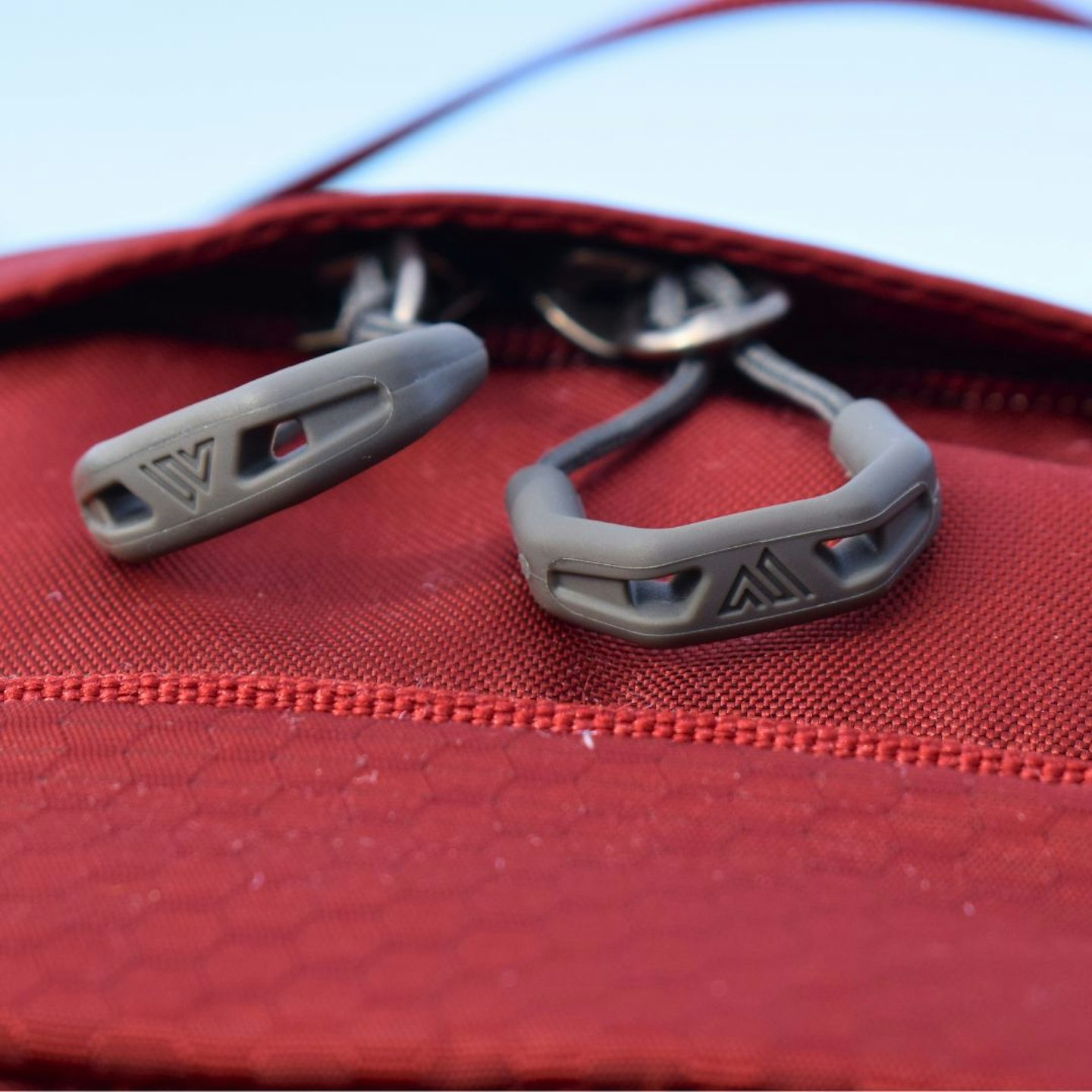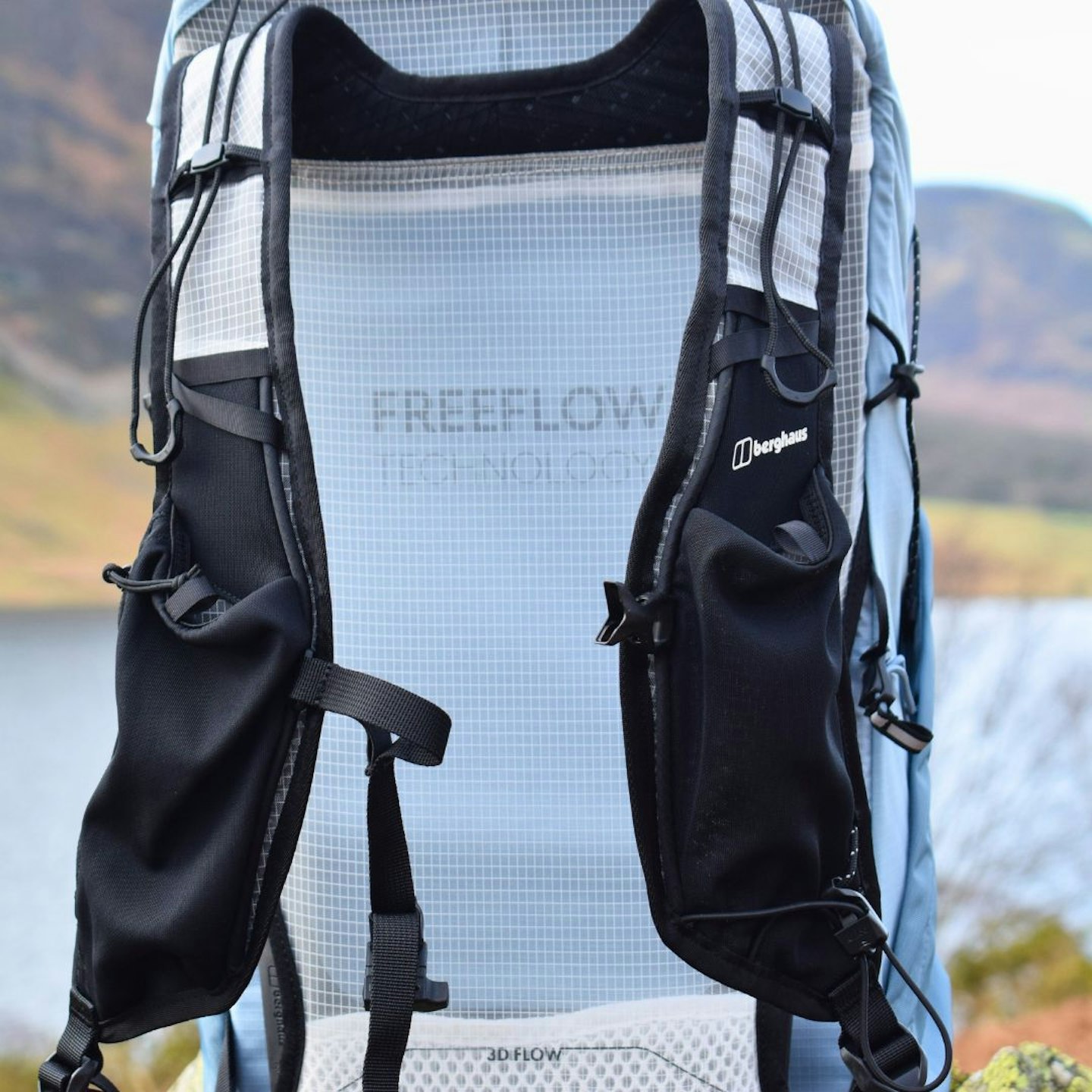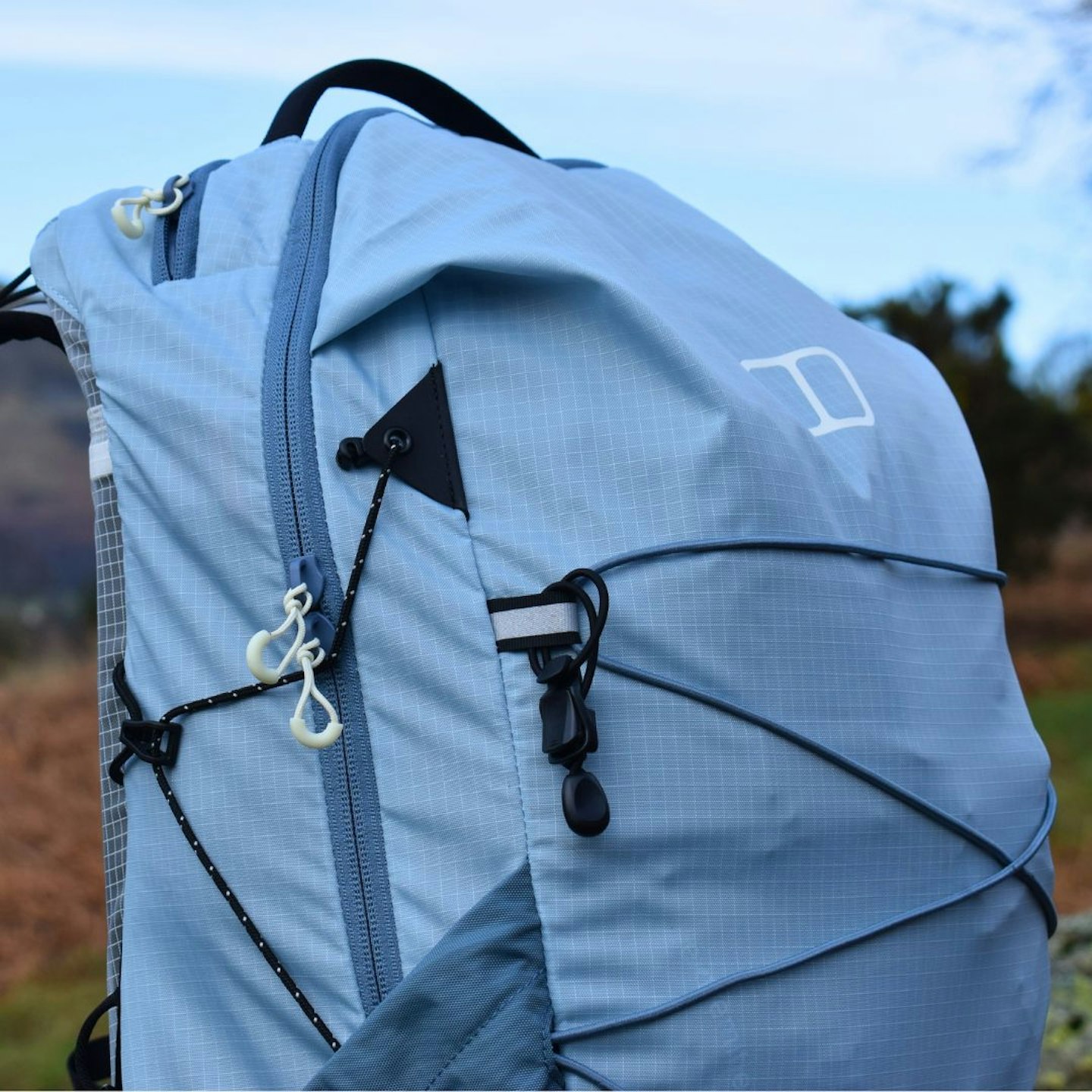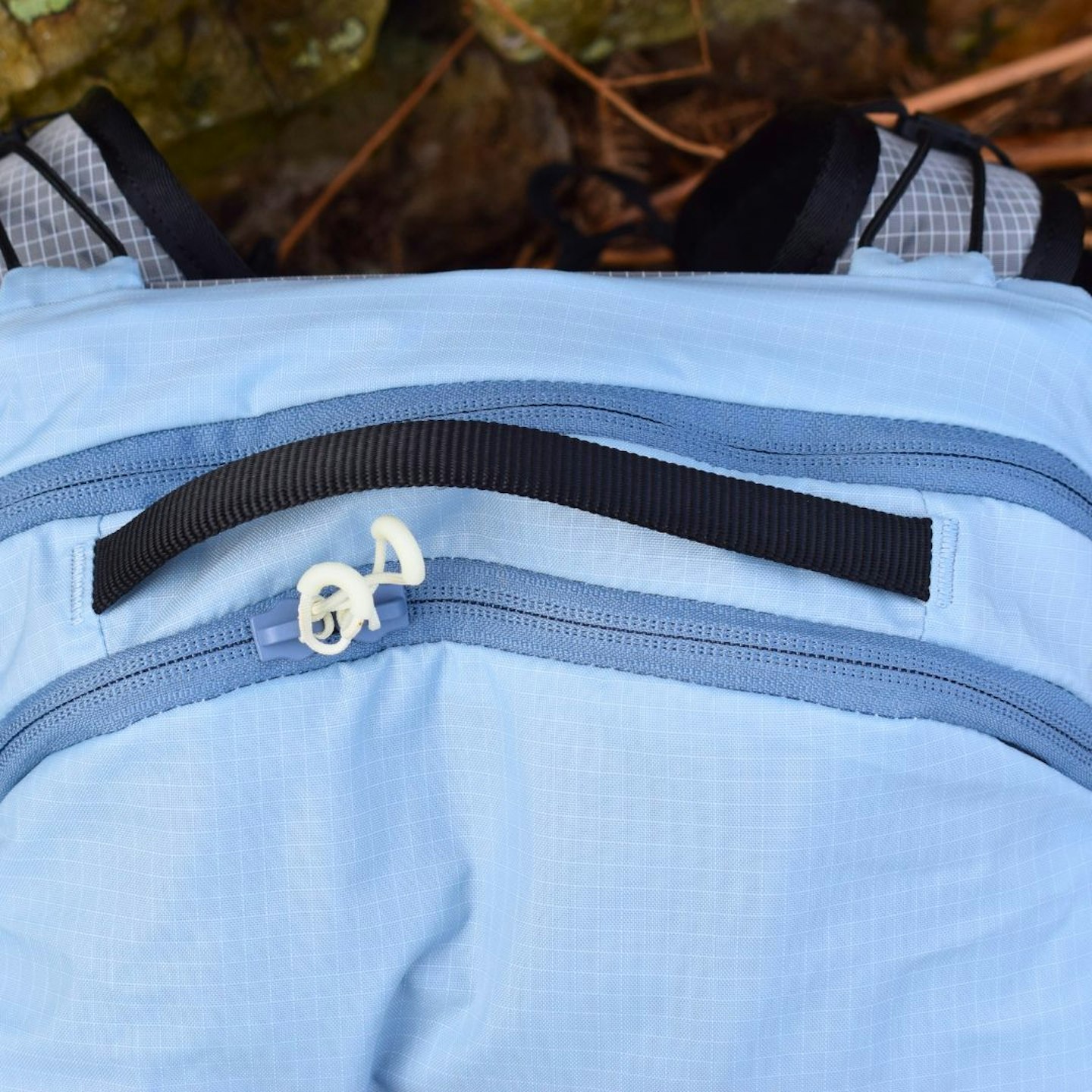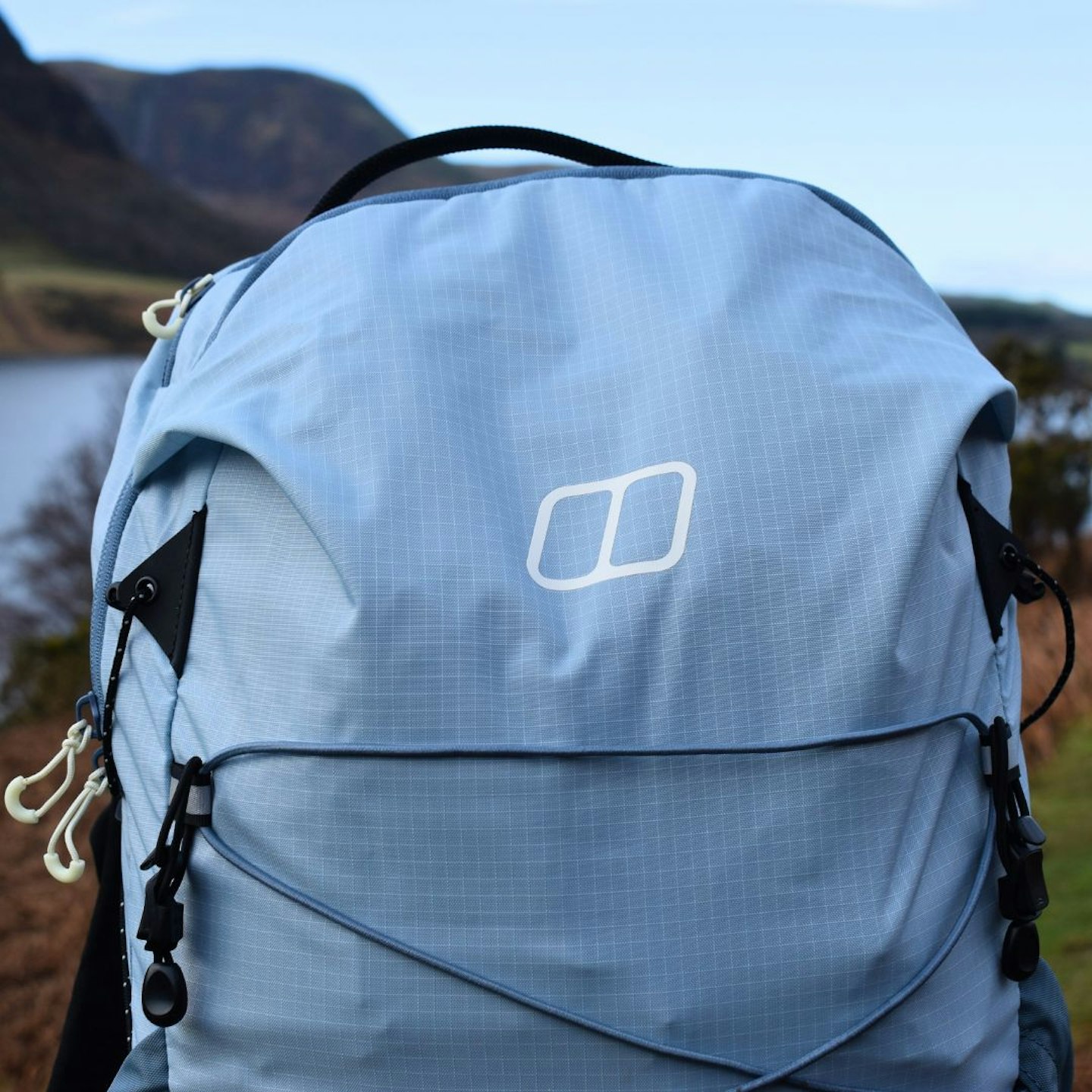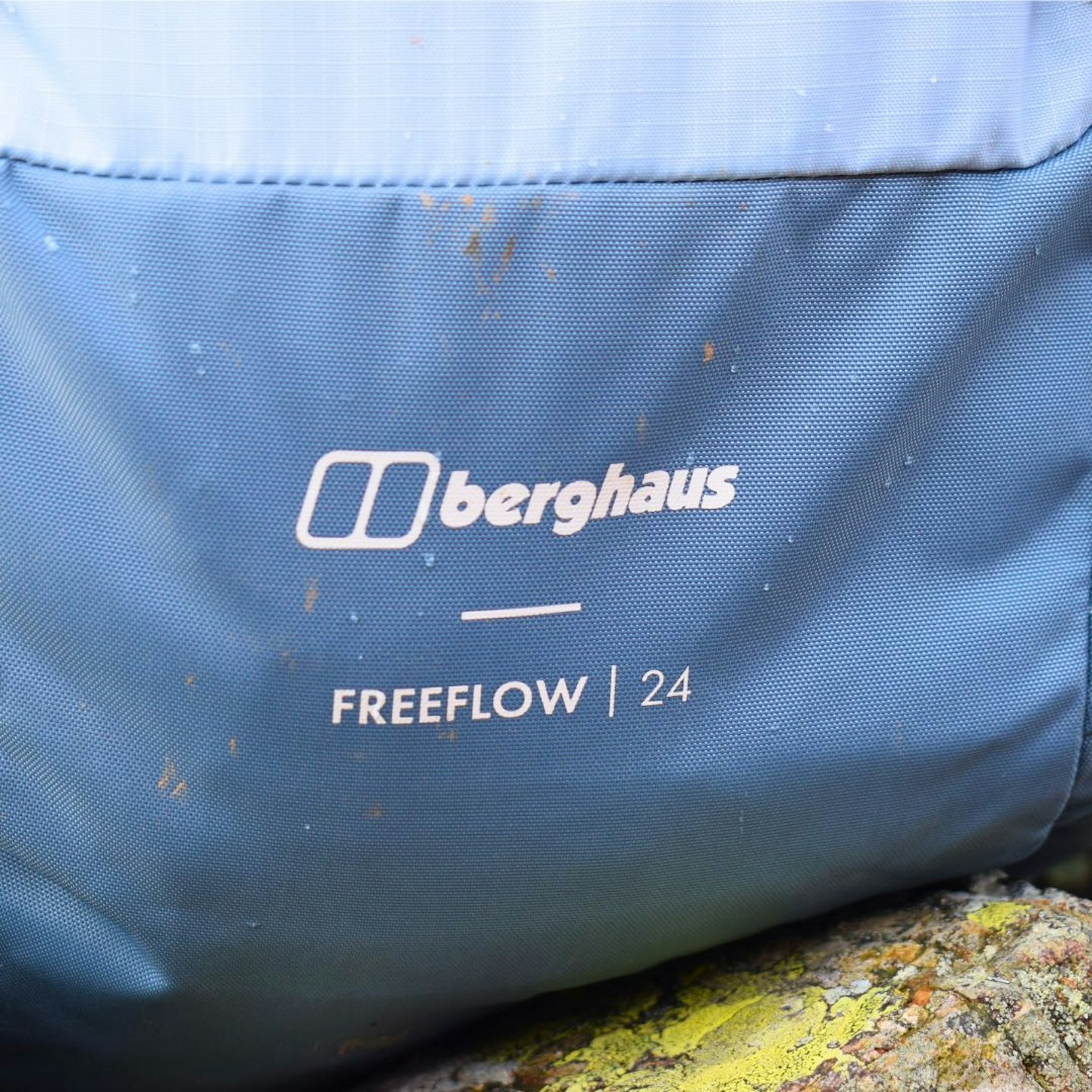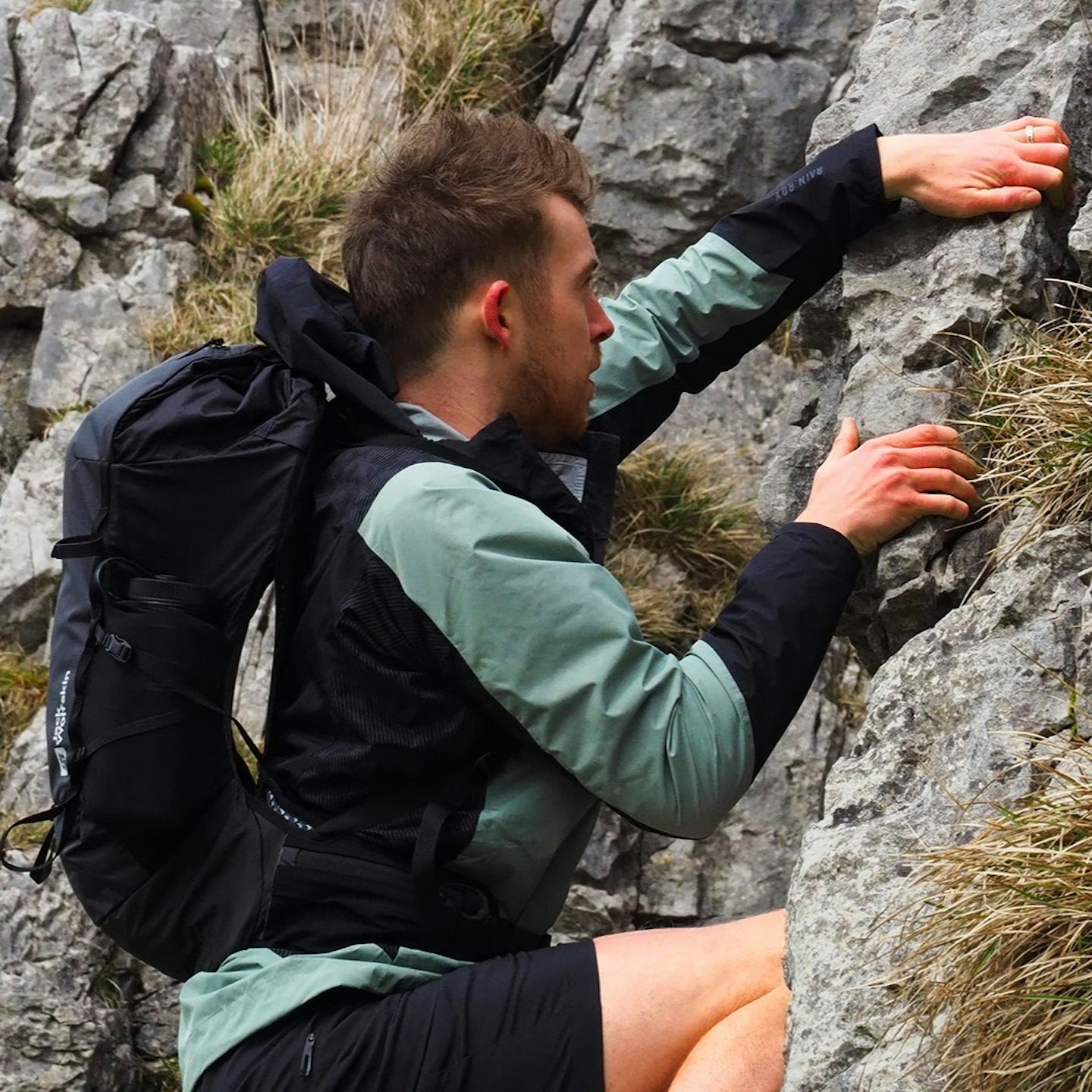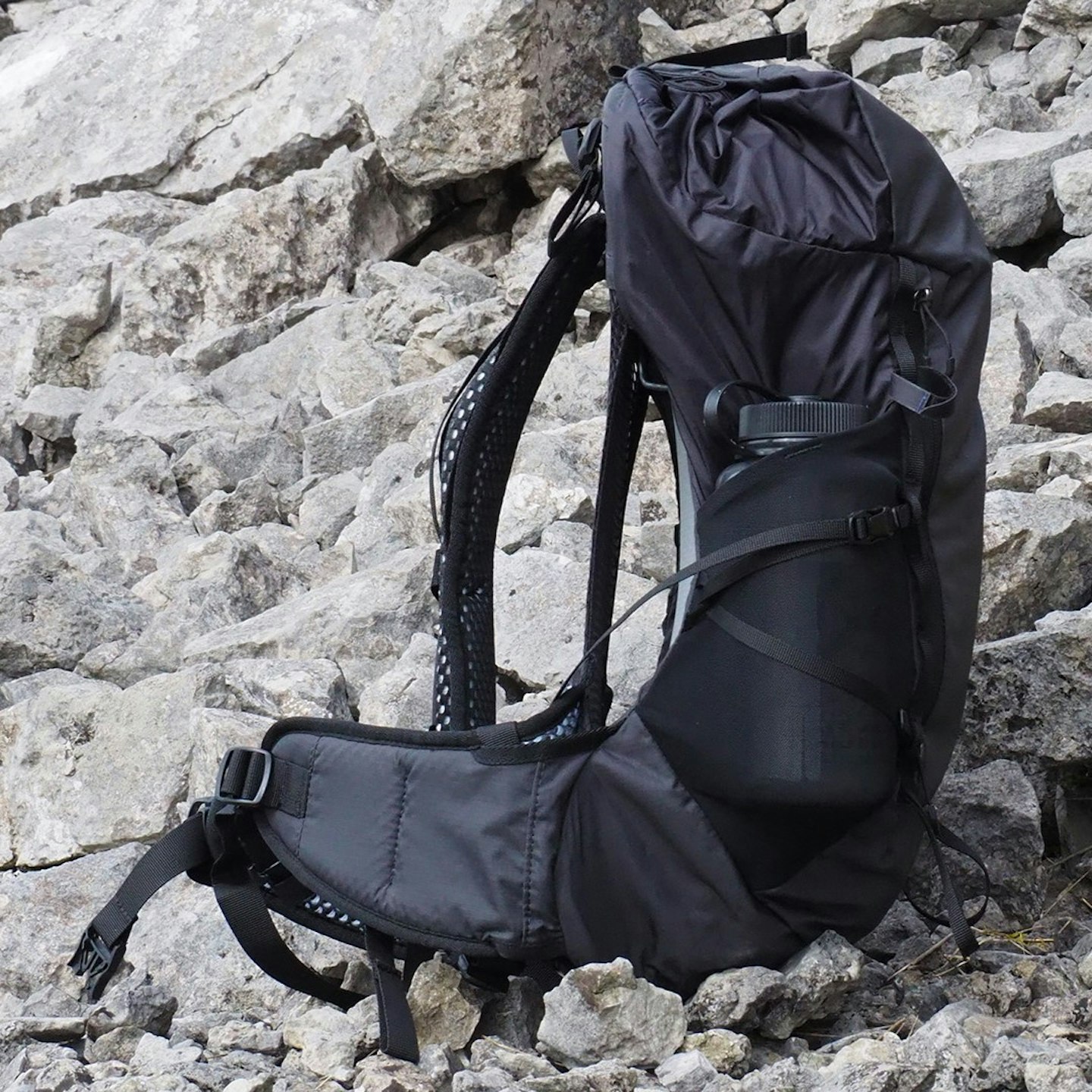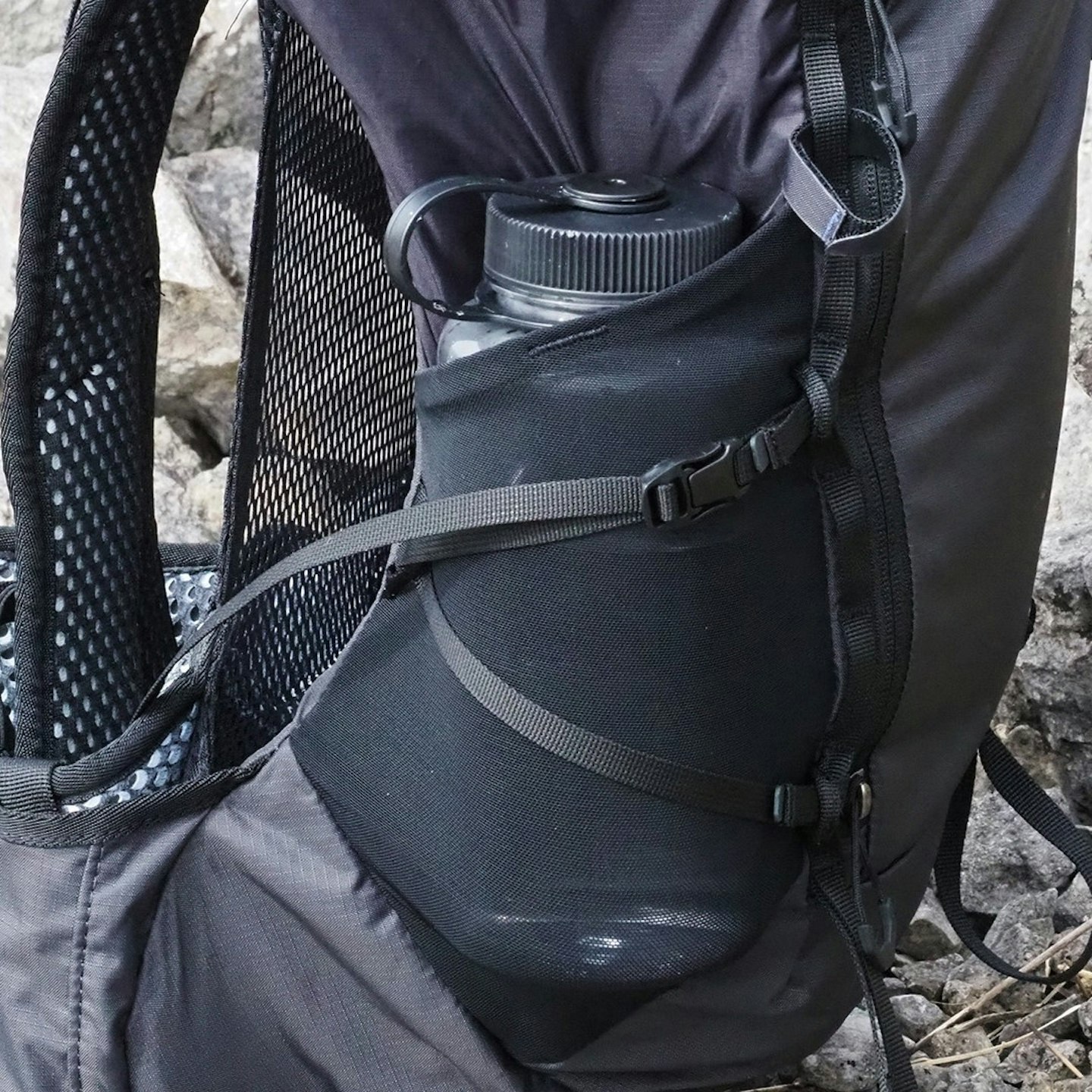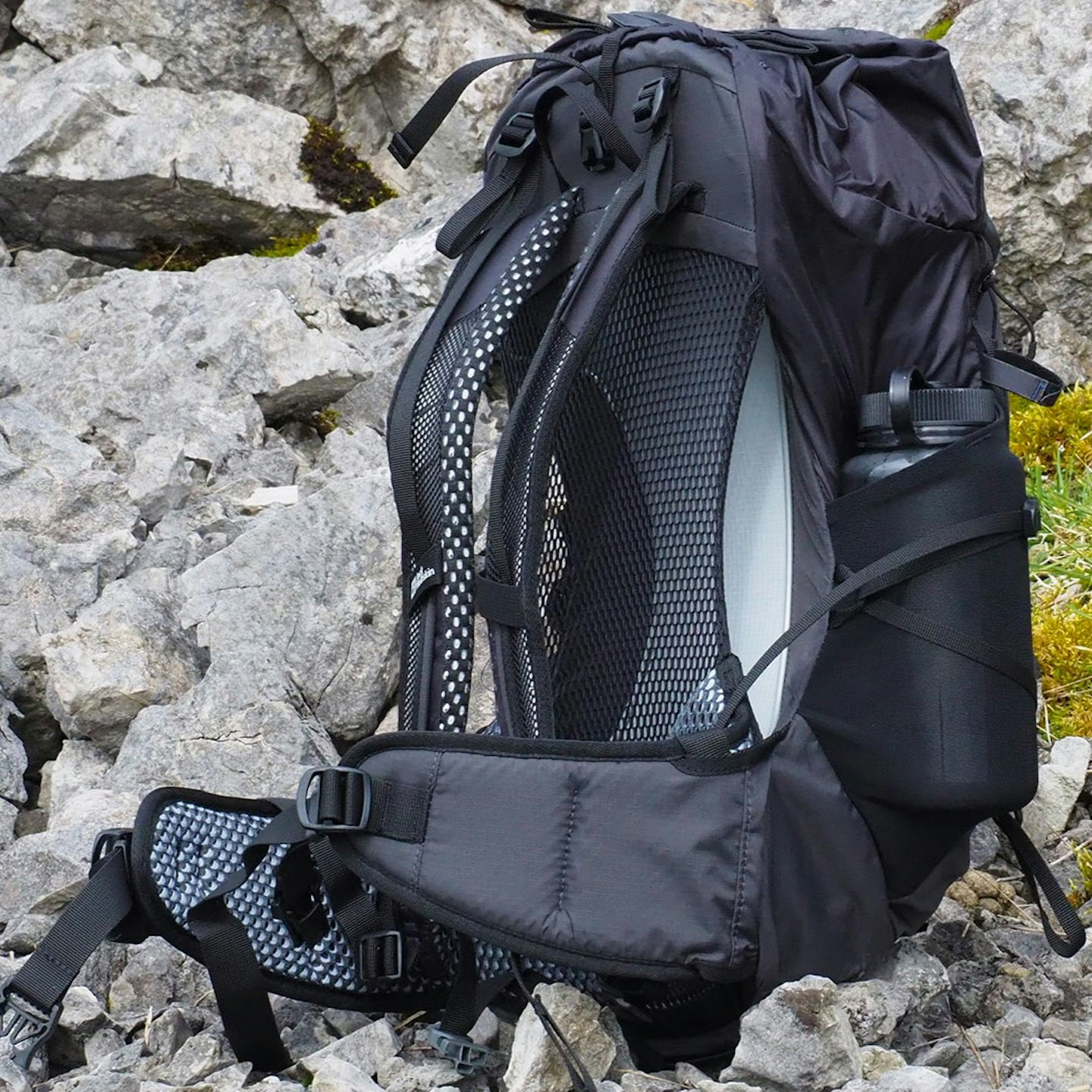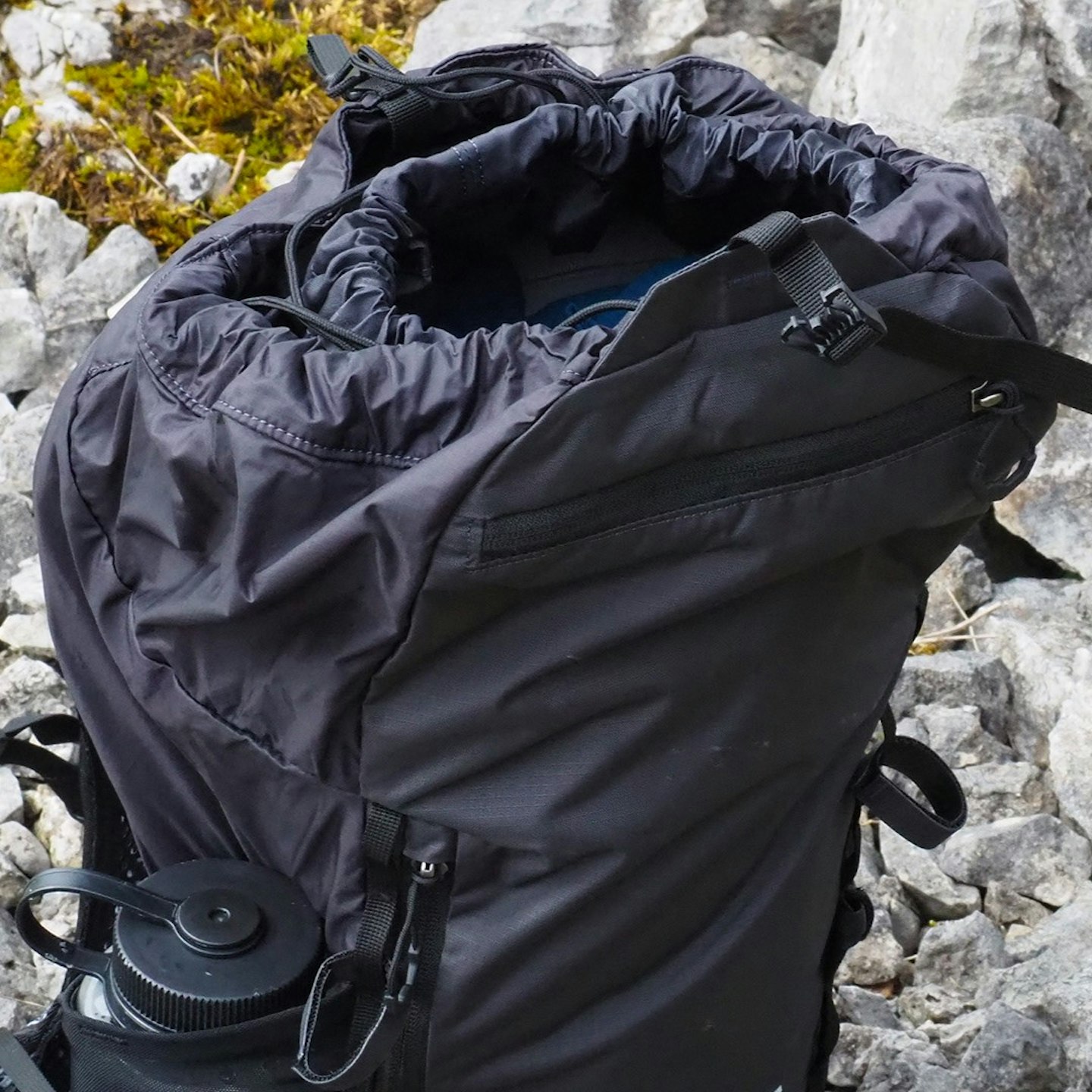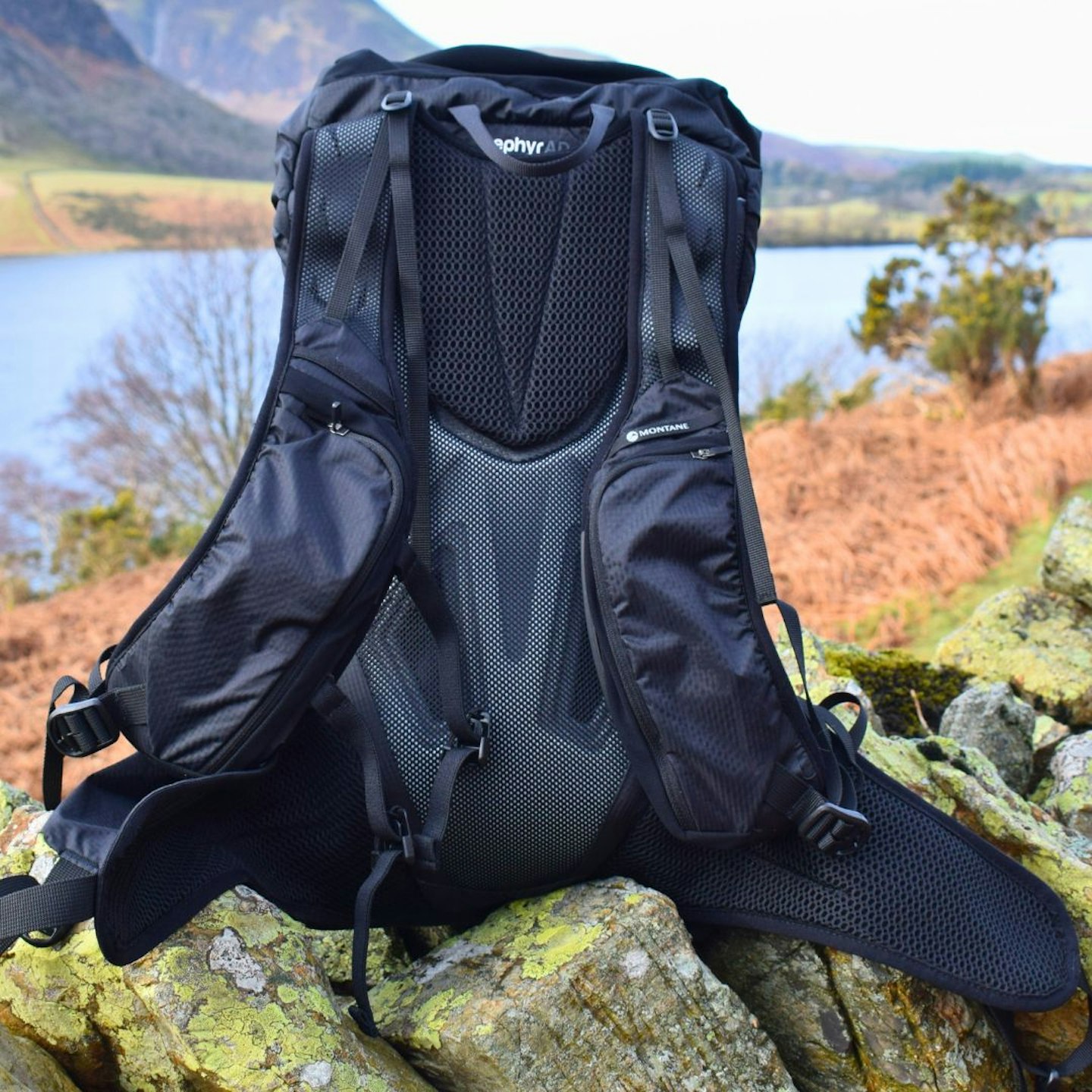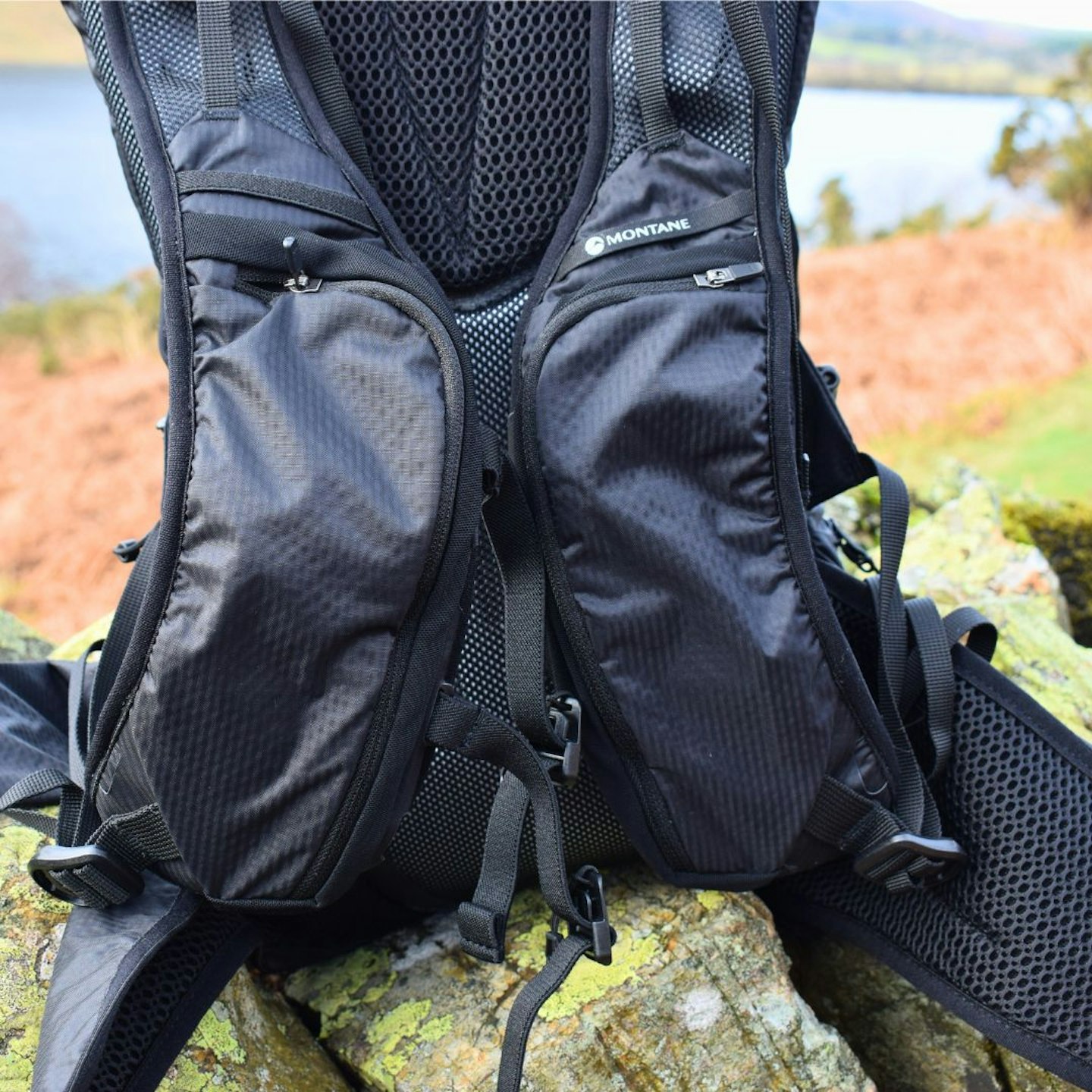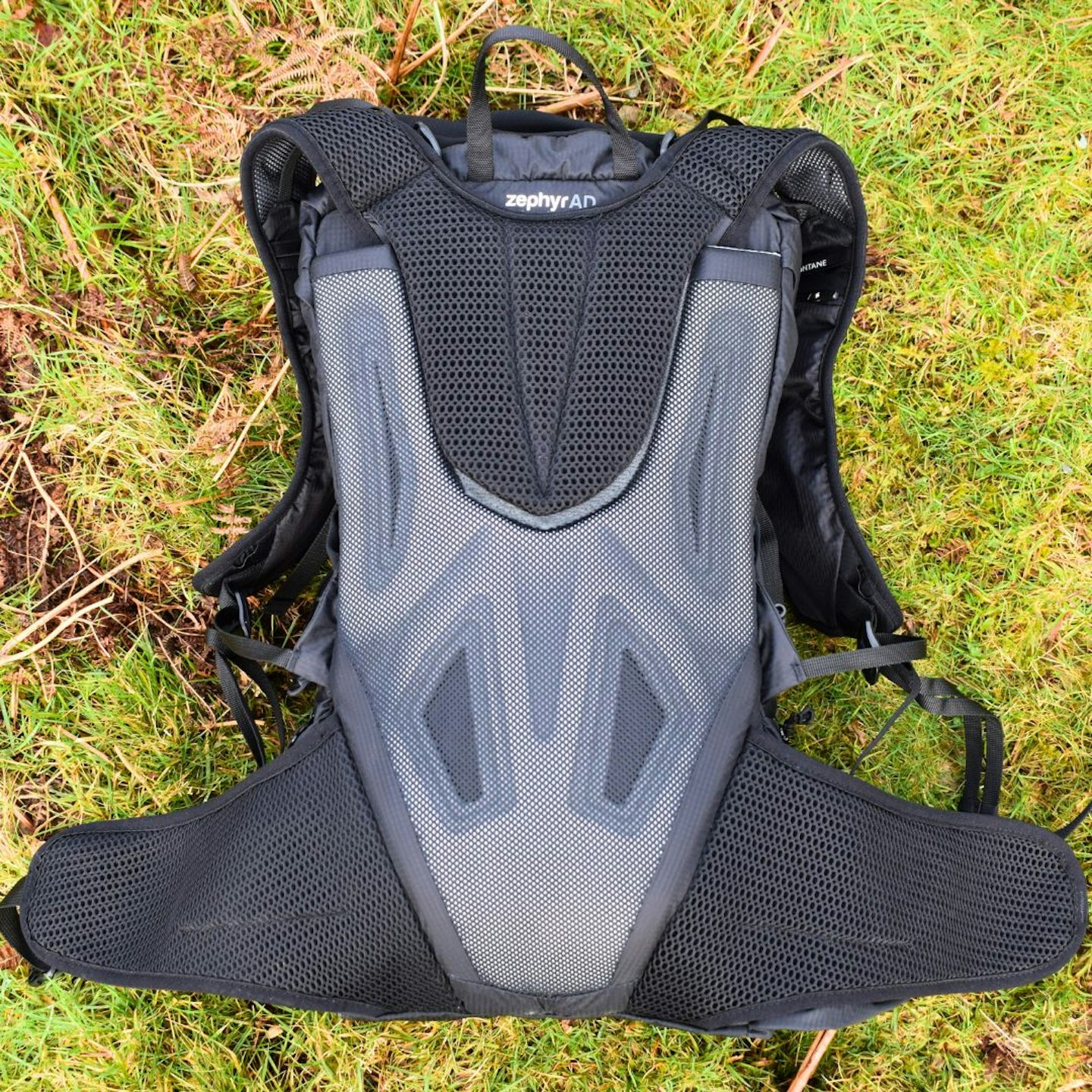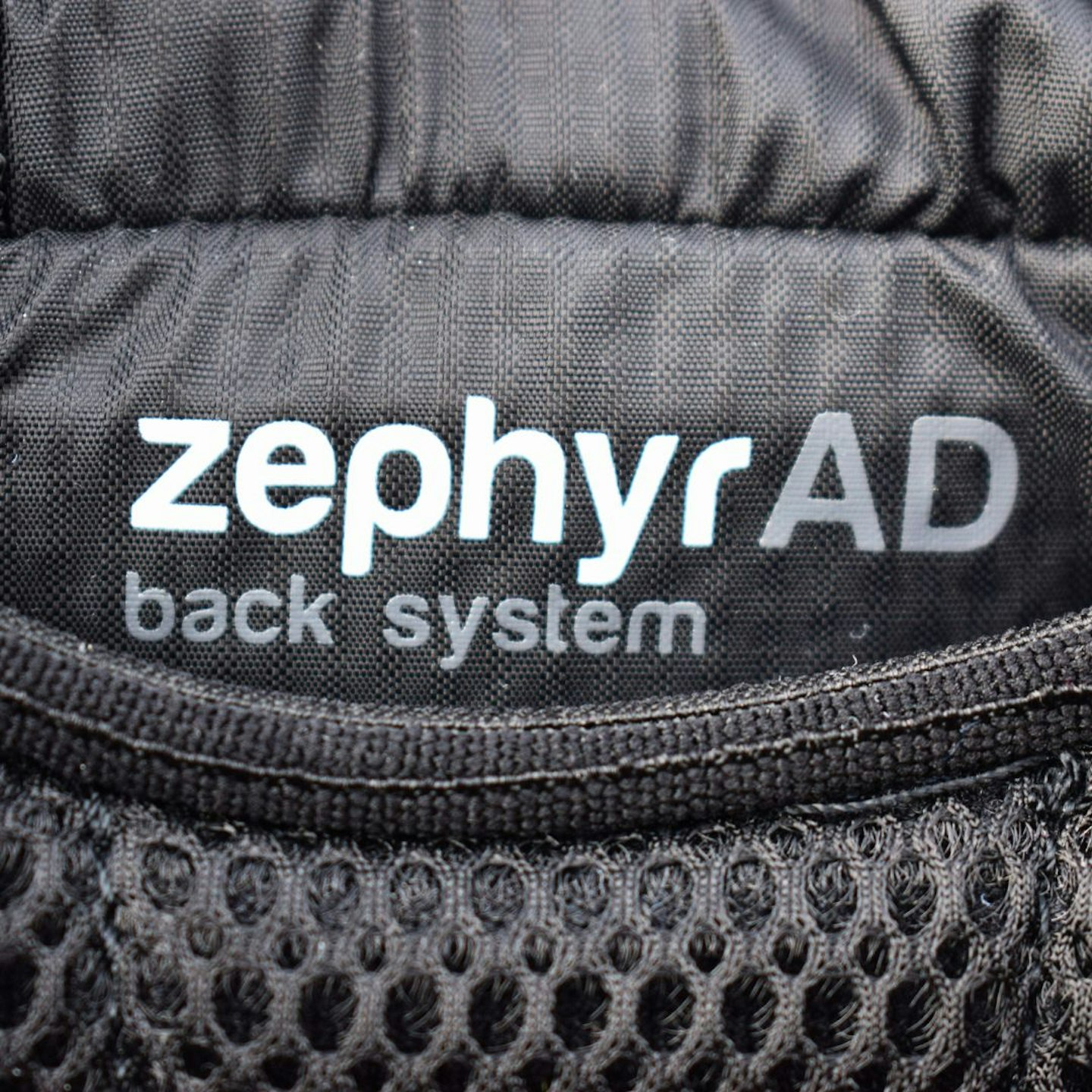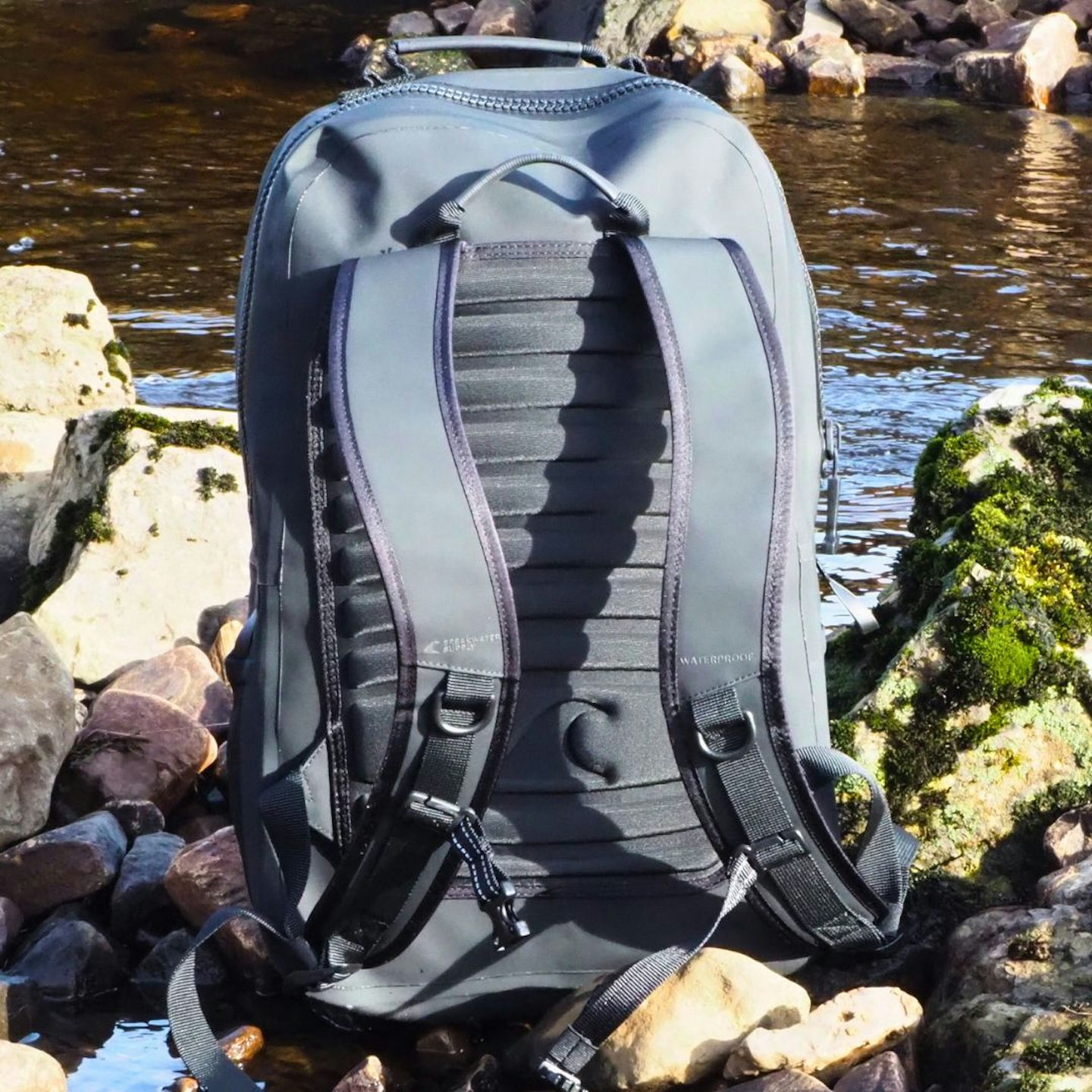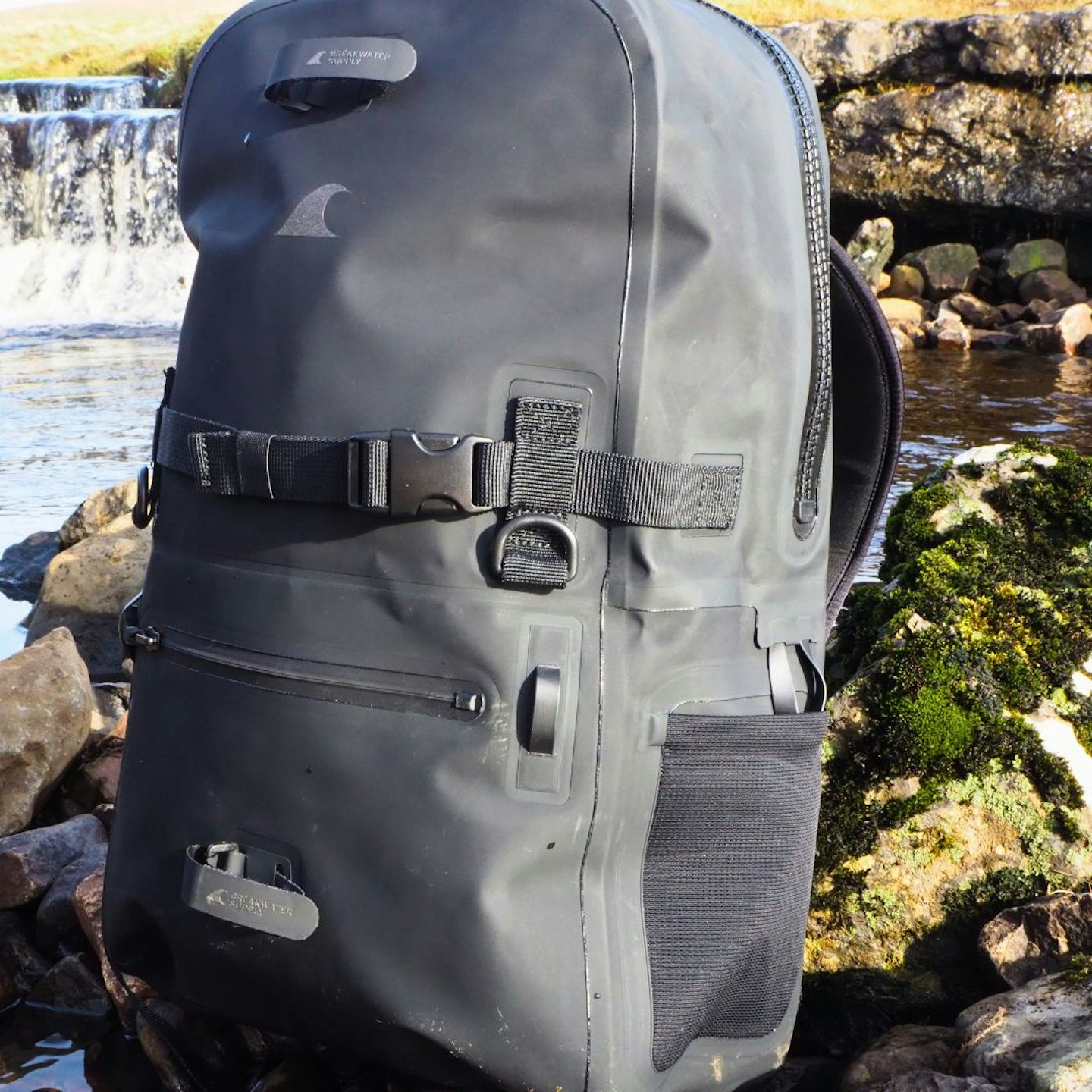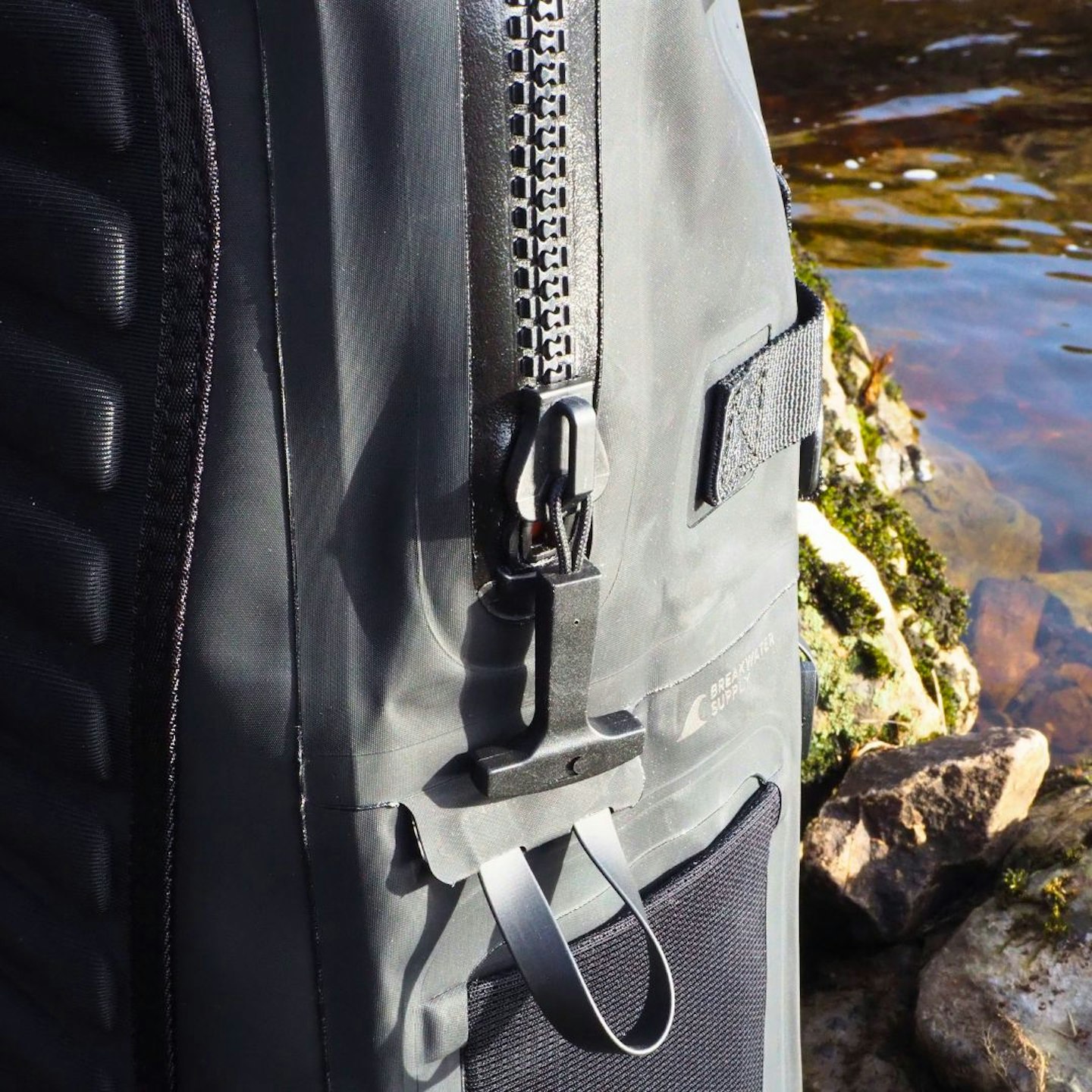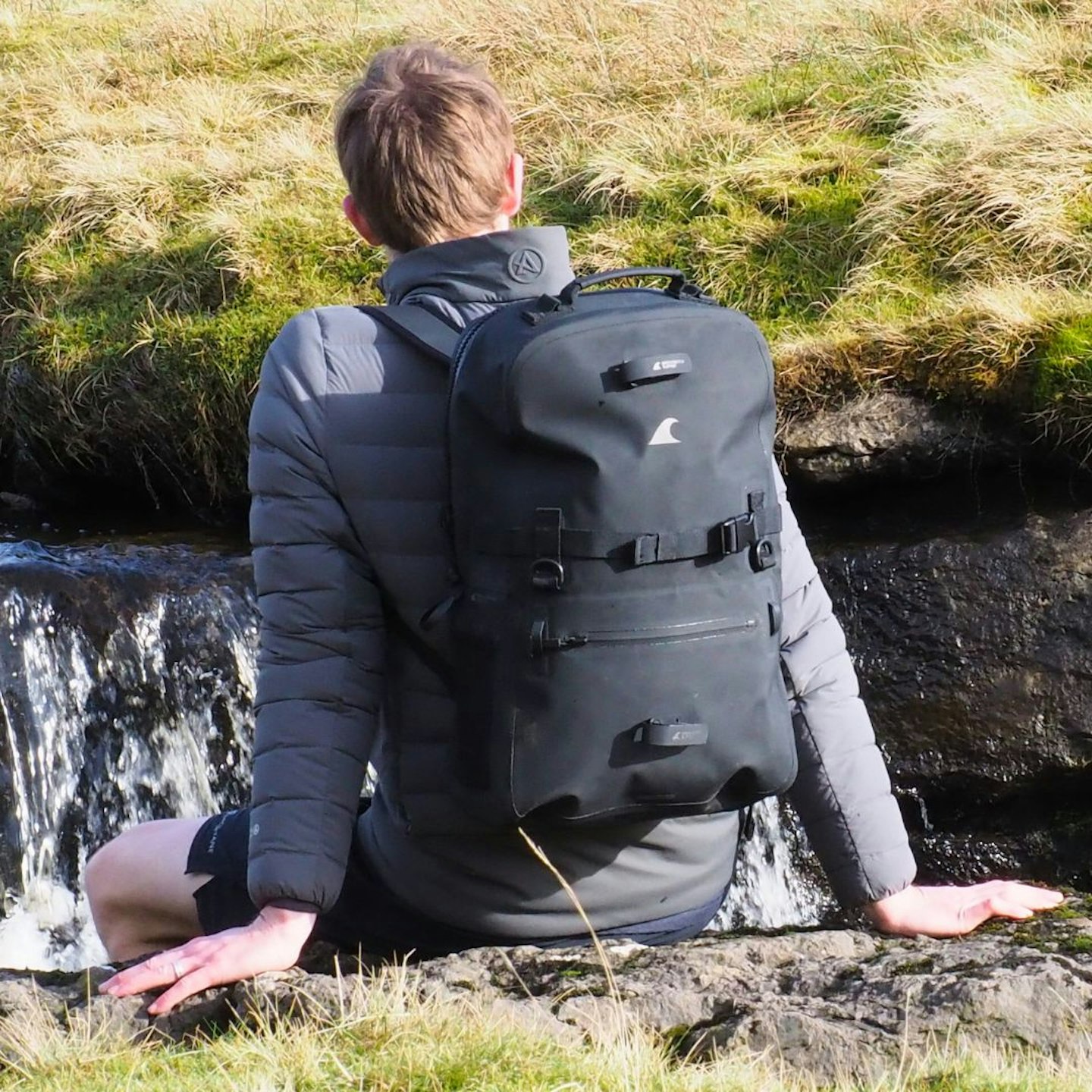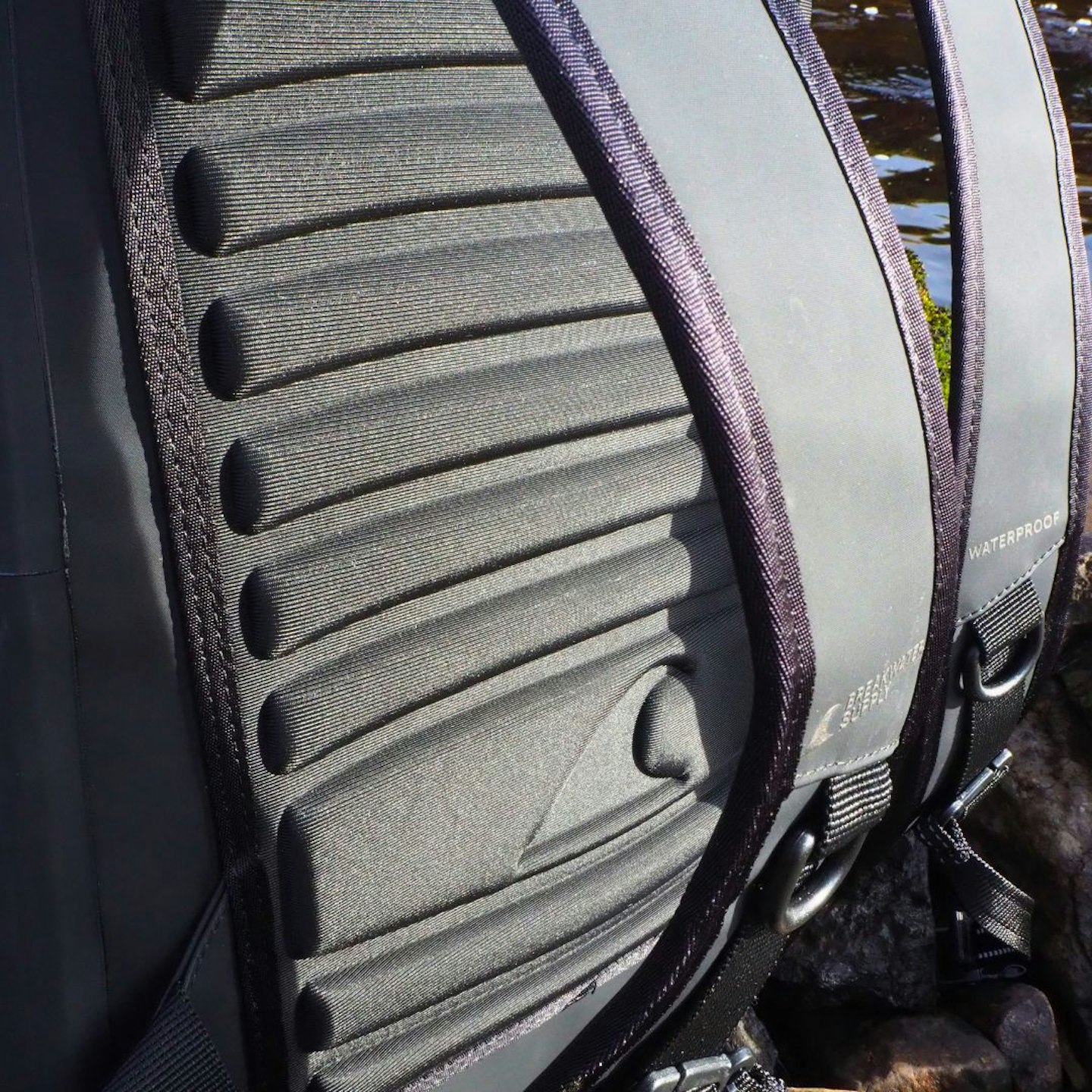Subbing in a small hiking daypack in place of a bigger rucksack is liberating. Capacious enough for snacks, spare layers and essentials only, you feel so speedy and agile wearing a smaller daypack.
And so, it’s hard to be unhappy when you’re out in the hills when the sun is shining and there’s not a cloud in the sky. Unless your little daypack is uncomfortable of course. Feeling the straps cutting into your shoulders, the belt digging into your hips and an unpleasant sticky patch slowly spreading across your back is no fun.
But it would be a shame to let such discomfort ruin an otherwise perfect summer hill day. That’s why we’ve picked out our top daypacks for warm weather walking, tried and tested in sunny (well, mostly) Snowdonia.
What are the best hiking daypacks of 2025?
Designed to carry around 15-30 litres of kit, which ought to be ample capacity for a full dawn-to-dusk adventure, these daypacks are all about optimum carrying comfort, walker-friendly features and easy, breezy airflow to stop you getting hot and sweaty – even when the mercury soars. If, however, you're in need of a multi-day pack, check out our favourite backpacking rucksacks.
Editor's note: This article was most recently updated in summer 2024, when we tested all of the best new releases or the spring and summer hiking season.
Save up to 30% on daypacks in the Amazon Spring Sale
The Amazon Spring Sale is live now and there are some very good deals on hiking daypacks. Here are our top picks of the best offers:
26% off! Osprey Unisex Hikelite 32, WAS £114.54, NOW £81.99
Top rated pick: Osprey Talon 22, WAS £135 NOW £91.41
Save 20%: Mammut Unisex Lithium 25, WAS £105, NOW £83.99
27% off:Berghaus 24/7 365 18, WAS £60, NOW £43.70
How we tested the best hiking daypacks
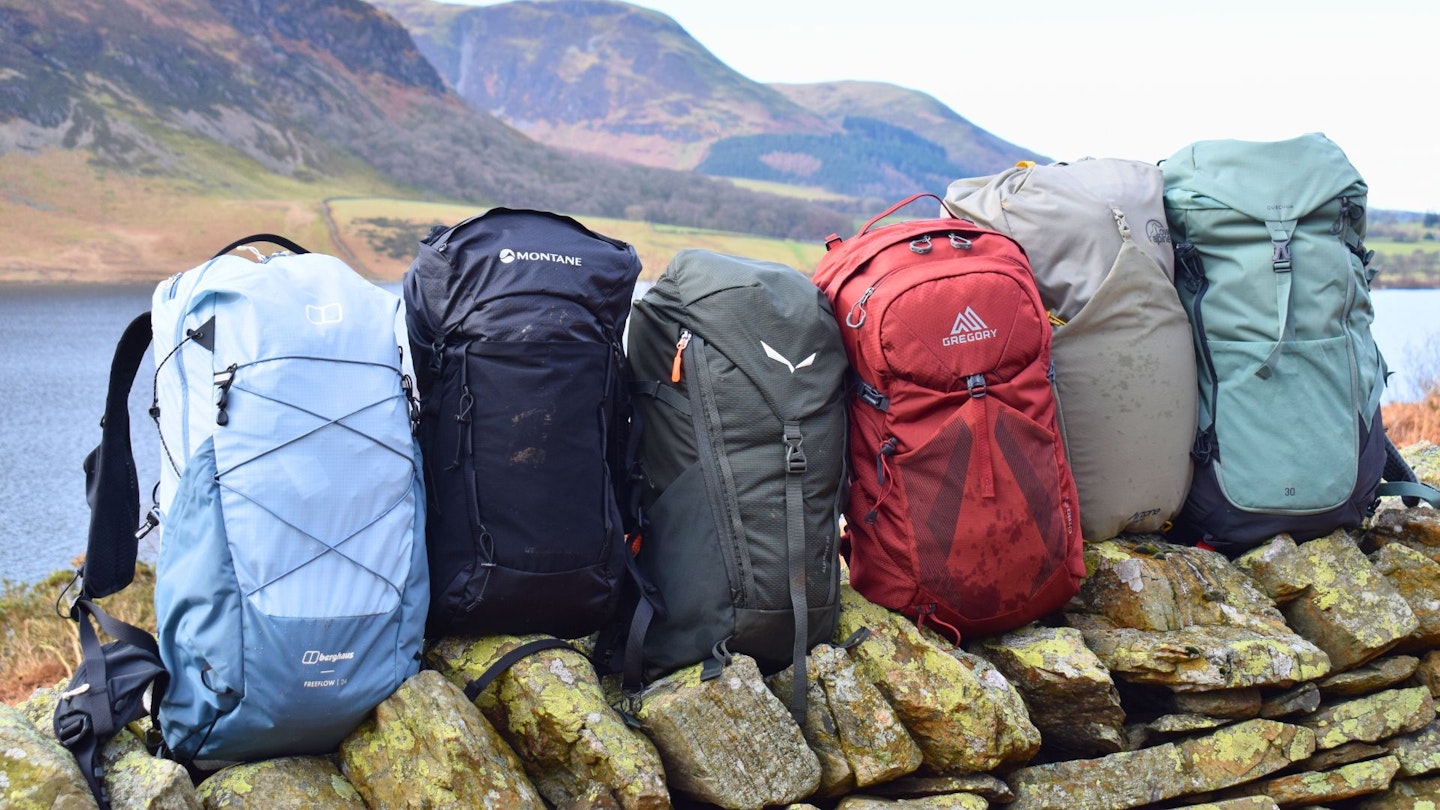
All the packs recommended here have accompanied us for many hours on hillsides and mountains. We consider what each pack is ultimately designed for and test it against the design brief. We look at comfort and performance, but also the subtle ergonomics of features and how sustainably each pack is made.
The models recommended here were tested and reviewed by James Forrest and Chris Williams. James is a freelance gear tester and one of the UK's most high-profile writers who has been writing features and conducting outdoor gear tests for LFTO and Trail magazine for several years.
Chris is a journalist and hiking fanatic from New Zealand and has been with LFTO as a staff writer and gear tester since 2021.
Best hiking daypacks reviewed:
The men's Stratos and women's Sirrus 26 packs from Osprey are top selling daypacks. We're more than happy to admit that we too have joined the ranks of dedicated enthusiasts. We've come to favour the Stratos/Sirrus 26 as our go-to daypack for hillwalking adventures.
A large part of the reason is comfort. They're equipped with a full-perimeter wire frame and a plush, contoured harness that offer exceptional carrying comfort. Plus, the suspension back system called AirSpeed provides fantastic ventilation.
These packs do only come in one back size, but it's adjustable, and the dedicated men's and women's versions mean everyone is happy.
In line with Osprey's reputation, the Stratos/Sirrus 26 pack are loaded with features, including front, side, and hipbelt pockets, inner and outer lid pockets, and a durable abrasion-resistant front shove pocket accessed via a central zip.
Moreover, these packs come fully equipped with a hydration sleeve, trekking pole loops, a pull-out rain cover, and dual side compression straps. They also offer attachment points, including Osprey's 'stow on the go' loop for temporarily securing trekking poles. Made from tough, 100% recycled materials, these packs are also quite sustainable while ticking all the boxes for hillwalking excursions.
View the Osprey Sirrus 26 here
Read our full Osprey Stratos/Sirrus 26 review
Pros
- Proper male and female fits
- Highly ventilated back system
- Loads of practical features
- Many volumes in the series
Cons
- Some rivals are lighter
| Weight | 1.26kg |
| Volumes | 24L, 26L, 34L, 36L, 44L |
| Materials | Recycled 210D and 420D nylon |
| Sizes | One size (46 – 56cm Stratos, 38 – 48cm Sirrus) |
The Lowe Alpine AirZone Ultra 26, winner of an ISPO outdoor gear award, is a minimalist, ultralight backpack with strong eco credentials.
We found its innovative back system features a spring steel frame and AirZone mesh panel, ensuring excellent ventilation and comfort.
The pack comes in two back lengths and boasts a 26-litre capacity, made with recycled, lightweight 100D nylon. Despite its thin exterior, we found the AirZone Ultra 26 offers better durability and weather resistance than we were expecting.
The pack's features include a drawstring closure, hydration bladder sleeve, mesh stash pocket, bottle pockets, hipbelt pockets, and trekking pole attachments.
The carrying experience feels a bit unusual, due to the curved back panel, but unusual in a good way. It provides a light and agile feel, while being very well ventilated.
With its thoughtful design and sustainable materials, the AirZone Ultra 26 is ideal for those seeking a streamlined, high-tech, and eco-conscious hiking daypack.
Check out the women's version here
Read our full Lowe Alpine AirZone Ultra 26 review
Pros
- Lightweight
- High-tech
- Excellent ventilation
- Superb comfort
Cons
- No lid
- Curved back panel
- No side entry
| Weight | 745g |
| Volumes | 26L, 36L |
| Materials | Recycled 100D nylon |
The Salewa Alp Mate 26 offers exceptional value, boasting features that easily justify a higher price tag. Designed for fast'n'light adventures, we found its alpine-inspired shape and technical back system ensure comfort and stability, with minimal weight.
Salewa's Dry Back Air technology provides effective ventilation – not quite at the same level as the Lowe Alpine AirZone Ultra 26, but still impressive. The pack's 26-litre capacity suits day hikes, with a streamlined design omitting unnecessary extras.
Features include a non-removable lid with a zippered pocket, daisy-chain webbing for attachment, and stretchy mesh bottle pockets. A raincover pocket (raincover included) and side zipper for easy access enhance usability.
While lack of hipbelt pockets and extra compartments are niggles, its durability, at 975g, and intelligent design make it a great choice for mountain enthusiasts keen on hitting up more technical routes.
Check out the women's version here
Read our full Salewa Alp Mate 26 review
Pros
- Great ventilation
- High-tech back system
- Lots of useful features
- Very comfortable in use
Cons
- No hipbelt pockets
- One back length size only
| Weight | 975g |
| Volumes | 24L (women's), 26L, 30L (women's), 36L |
| Materials | 150D polyester, 100D nylon |
As ever, Decathlon's Quechua range offers exceptional value with the MH500 backpack. Despite its budget price, on test we discovered it boasts a well-designed 30L capacity with a decent back system featuring a steel frame and AirCooling mesh for ventilation.
The harness, though adjustable, can feel slightly bulky on the shoulders and hips. Available in two sizes, it suits different body types, but its weight of 1.2-1.3kg is getting on for double that of the lightest options recommended here, and could therefore be a drawback for hikers trying to keep things as light as possible.
The MH500 backpack is made from durable polyester with a PU coating, which impressed us with how well it can withstand heavy showers, but there is also an integrated rain cover for peace of mind.
Accessing the main compartment is easy through both the top and side zippers, complemented by nine pockets, including hipbelt pockets and side water bottle pockets.
All in all, despite its weight, the MH500 offers remarkable features at an unbeatable price.
Read our full Decathlon Quechua Mountain Walking 30L Backpack MH500 review
Pros
- Great price
- Decent features
- Quite solid design
Cons
- Relatively heavy
- Basic back system
| Weight | 1.3kg |
| Volumes | 20L, 30L, 40L |
| Materials | Polyester w/ PU coating |
In terms of weight this is one of the lightest here. This impressive volume-to-weight ratio will appeal to fast-moving hillwalkers looking for a roomy daypack. Committed ultra-lighters might even get enough kit in the 30L version for an overnight wild camp.
Load-carrying rigidity comes from an internal U-shaped wire frame, while the back panel is made from ridged foam with a central air channel overlaid with super fine mesh. The harness is nicely contoured, though shoulder straps and hip fins aren’t as well-padded as some rivals. It still carries well, though.
The pack has both unusual and clever features. The hipbelt has one open stretch mesh pocket and one zipped pocket, with a nifty fold-out pouch for stashing a smartphone. Stretch mesh side pockets aren’t the deepest but will just about take a 1-litre bottle. Under the single-buckle lid, the hydration-compatible main compartment has a drawcord closure that doubles as top compression. There’s also a large top lid pocket and a useful mesh inner lid pocket with a key clip.
You also get a pullout raincover, dual side compression straps, two attachment loops for poles or ice axes, a front shove pocket and a zipped side-entry pocket for maps or guidebooks.
It’s a shame that it only comes in one back length, though there is a dedicated women’s version too.
Check out the women's version here
Read our full Mammut Lithium 25 review
Pros
- Lots of features
- Impressively light
- PFC-free DWR
- Mammut a Fair Wear Foundation member
Cons
- Not as well padded as some
- Only one back length
| Weight | 851g |
| Volumes | 15L, 20L, 25L, 30L, 40L, 50L |
| Materials | Majority recycled and bluesign-approved nylon w/ PFC-free DWR |
The Talon (women's version called Tempest) is an exceptionally popular hiking backpack. Every time we summit Snowdon we play games of 'Talon and Tempest count' and for a bigger challenge, 'can you climb Snowdon without seeing a Talon or Tempest?'. We've never managed the latter.
But the Talon packs are popular for a reason: they're really good. The 22-litre version is a great daypack, packing in loads of practical features, top notch build quality, and decent eco credentials.
The Talon 22 uses Osprey's AirScape back system, which holds the pack closer to your back for stability but has cutout channels for ventilation. It's a great balance, and makes the Talon suitable for technical routes if needed, suitable for heavier loads, and still vented enough for hot days. Although, if you want the best airflow back system, go with a suspended mesh system like on the Osprey Stratos.
In terms of storage and features, the Talon 22 has eight storage areas in addition to its main compartment, plus add ons such as Osprey's stow-on-the-go pole loops and LidLock clamp for bike helmets.
This is not a backpack for minimalists, it's packed to the rafters with features and excels as a versatile hiking day pack.
Check out the women’s version here
Read our full Osprey Talon 22 review
Pros
- Exceptional comfort
- Dynamic movement
- Ventilated back system
- Packed with features
- Loads of storage options
- Bluesign-approved main fabric
Cons
- Too fussy for those who prefer a minimalist pack
- Expensive
- Not as well-ventilated as a suspended back system
- No raincover
| Weight | 901g |
| Volumes | 6L waistpack, 11L, 22, 26L, 33L, 36L, 44L, 55L |
| Materials | Bluesign approved and recycled 100D x 210D and 420D nylon w/ PFC-free DWR |
Where all the other daypacks here are dedicated hiking packs, the Cotopaxi Batac is a much more of a general use option.
We were really impressed by it. Sure, all the other packs here are better for long or demanding day hikes because it lacks a proper back system, but the Cotopaxi Batac is fine for more leisurely hillwalking. It's very lightweight, comfy, and breathable.
But where it performs leaps and bounds ahead of the others here is when the country or hill track ends and you enter into an urban environment. This is partly due to the way it looks, blending effortlessly into a metropolitan setting, but there are important design touches as well such as a proper laptop sleeve.
The Batac is part of Cotopaxi's Del Dia collection, which mean's each bag is made from the leftover fabric from other companies' production runs, saving it from landfill. Every bag has a unique colour arragement.
Read our full Cotopaxi Batac 24L Backpack review
Pros
- Very lightweight
- Sustainable
- Two large compartments plus laptop sleeve
- Good value
- Versatile
Cons
- Not suitable for carrying heavy loads
| Weight | 482g |
| Volumes | 16L, 24L |
| Materials | Repurposed ripstop nylon |
Weighing in at just 567g the Aerios 18 is a true ultralight hiking daypack. It achieves this by doing away with a frame and rigid back system, and employing the services of a super ligthweight main fabric.
Does it work? If you're an avid ultralight hiker, you'll love this backpack. It's got a simple and practical layout, with a main compartment housing a hydration reservoir sleeve and small floating zipped pocket; a medium-sized zipped pocket at the front; and a zipped mesh pocket on each shoulder strap that can easily house a phone.
We're not big fans of bungee cords for attaching gear but the Aerios 18 does have daisy chain loops and trekking pole loops as well. We also really liked the choice for hydration. In addition to the hydration reservoir sleeve there is a drink bottle sleeve on each side that you can use withou taking the backpack off, plus a sleeve on each shoulder strap for a soft flask.
Although nicely breathable, the lack of structured back system makes the Aerios 18 unsuitable for heavier loads. It's also very expensive, as Arc'teryx gear so often is.
Read our full Arc'teryx Aerios 18 Backpack review
Pros
- Super lightweight
- Great for fast 'n light hikes
- Impressively durable face fabric
- Loads of hydration strorage
Cons
- No stash pocket
- No raincover
- Not suitable for carrying heavy loads
| Weight | 567g |
| Volumes | 18L, 35L |
| Materials | 210D Hadron LCP (Liquid Crystal Polymer) |
The Gregory Citro 24 is a good alternative to the Osprey Talon 22 because it offers premium features and performance, but at a slightly lower price point.
With its well-designed features, including excellent ventilation and a comfortable back system, it excels in performance. On test, the pack's panel, frame, and harness work seamlessly together, providing stability and comfort, especially for extended day walks.
Its ActiveFlex harness ensures a snug fit, while the alloy steel frame distributes load weight, which is of course more noticeable with a full, heavy pack. The VaporSpan mesh panel provides great ventilation.
Despite its non-adjustable back length, it accommodates 40 to 53cm torsos well. The 24-litre capacity is great for most day hikes (there is a larger 30L version too).
Ample pockets, including hip fin zippered pockets and internal mesh pockets, offer convenient storage. Additional features like the hydration bladder sleeve, reflective webbing loops, and Sunglasses QuickStow system are further practical additions.
While lacking a lid, the Citro 24 includes a stormflap-protected zipper and a detachable raincover for weather resistance. Constructed from durable materials, it withstands abrasion and offers longevity.
Check out the women's version here
Read our full Gregory Citro 24 review
Pros
- Excellent design
- Fully featured
- Comfortable carrying experience
- Durable
Cons
- Only one back length sizes
- Could be more sustainable
| Weight | 920g |
| Volumes | 24L, 30L |
| Materials | 210D and 420D nylon |
Berghaus debuted the original Freeflow in 1996, pioneering ventilated backpacks. After missing in action for several years, the new Freeflow family launched in March 2024, aiming to combine the advantages of both suspended mesh (ventilation) and contact back systems (stability).
The design has a frame and mildly curved and quite stiff plastic back panel coupled with a taut suspended nylon membrane that holds the pack away from the back, offering stability without compromising packing space. The result is a stable back system with a constant gap of about 3cm for very effective ventilation.
It includes a lumbar pad for extra support and comes in two back lengths. Despite its high price and weight, the Freeflow offers a supportive carrying experience.
The 24-litre version (there is a 30L version too) features a clamshell opening, hydration bladder sleeve, external zippered pocket, bottle pockets, and an integrated rain cover. Additional features include harness pockets, trekking pole attachments, reflective details, and a PFC-free PU coating for weather protection.
Overall, the Freeflow delivers on its promise of ventilation and stability but may not suit those prioritising a super lightweight approach to hiking gear.
Read our full Berghaus Freeflow2L Rucksack review
Pros
- High-tech back system
- Excellent breathability/stability balance
- Good for heavier loads
- Great pockets
Cons
- Heavier than many rivals
- Relatively expensive
- No mesh stash pocket
| Weight | 1.28kg |
| Volumes | 24L, 30L, 30+5L |
| Materials | Recycled 210D nylon w/ PFC-free PU coating |
Jack Wolfskin's Prelight Vent 20 daypack is notable, like the Lowe Alpine AirZone Ultra 26, for featuring a highly ventilated back system. We found this back system, called Aerovent Core, generates a lot of airflow and is great for use in hot weather.
Despite its technical appearance, the Prelight Vent 20 aims to have a broad appeal with a variety of features including a simple main compartment with a hydration bladder sleeve and accessed via drawcord or side zip. There are also trekking pole and dasiy chain loops for attaching gear externally, in addition to secure drink bottle sleeves on either side of the pack.
At just under 1kg, this pack offers good comfort and performance, though its 52 x 20 x 27cm size doesn't offer as much volume compared to competitors, due to that curved back system.
We were pleased to see sustainability is a strong point here, with the Prelight Vent 20 being made from recycled materials, being PFC-free, and having bluesign-certification.
Priced at £150, there are certailny better value options out there, both in terms of larger volume for the price, or simply outright lower cost like you get with Decathlon's Quechua 30L MH500 backpack. Despite its cost, though, we liked the Prelight Vent 20's blend of comfort, ventilation, and eco-consciousness.
Read our full Jack Wolfskin Prelight Vent 20 review
Pros
- Excellent ventilation
- Sustainable design
- Raincover included
Cons
- Relatively pricey
- Curved back panel robs some internal space
| Weight | 990g |
| Volumes | 20L, 25L, 30L |
| Materials | PFC-free recycled nylon |
The Montane Trailblazer 25L offers a lightweight, 25-litre capacity backpack experience, drawing inspiration from Montane's popular running vest packs for a snug fit and agility.
Priced at £140, it's at the more costly end for hiking daypacks but given that you can use it for fastpacking and even trail running as well, makes it slightly better value through veresatility.
We found its back system is flexible, with a foam back panel and mesh for ventilation. This simplicity will divide opinion, as it doesn't support heavier loads well. However, the Covalent harness enhances comfort, for fast and light hillwalkers.
The adjustable back length system works fine but feels a tad flimsy and loose in the larger size. Weighing just 850g, it's lighter than many daypacks, with dimensions of 54cm x 25.5cm x 18.5cm.
Features like the lid, mesh pockets, and Z-compression system add versatility, resembling running vest packs. Constructed from partially recycled materials like Raptor Cross Lite 70D nylon, it tries to balance lightness with durability but leans more in favour of lightness.
Despite its potentially polarising design, the Montane Trailblazer 25L impressed us with its comfort and functionality, ideal for those all about speed and agility on the trails.
Check out the women's version here
Read our full Montane Trailblazer 25L Backpack review
Pros
- Lightweight
- Fast hiking design
- Clever features
- Spacious and plentiful pockets
Cons
- Design will polarise opinion
- No side entry
- No raincover
| Weight | 850g |
| Volume | 3L, 8L, 16L Women’s, 18L, 24L Women’s, 25L, 30L Women’s, 32L, 44L |
| Materials | Recycled 70D nylon and recycled polyester w/ PFC-free DWR |
In terms of in-use practicality, the Breakwater Supply Fogland Waterproof Backpack is most similar to the Cotopaxi Batac beacuse they're both dependable general use backpacks.
But what sets the Fogland apart all other options here is that it's waterproof – no-nonsense, fully submersible, IP68 waterproof.
We really enjoyed the peace of mind that gave us on test. It means that when you're at the beach, kayaking on a river or lake, or walking in torrential rain you know no water is getting into the backpack. With the zip properly done up, the inside of the Fogland is airtight and is buoyant as a result.
It's not a technical hiking pack but we found it comfortable enough to wear for a couple of hours at a time. Despite the rigid main material and zip, the padding on the shoulder straps and back panel are pleasingly soft and spongy.
So, in terms of water and weatherproofing you're not going to get any better than the Fogland. It's pricey but truly delivers on that front.
Read our full Breakwater Supply Fogland Waterproof Backpack review
Pros
- Truly waterproof and submersible
- Useful as a general daypack
- Tough
- Extra pockets and gear attachment points
- Range of volumes and colours
Cons
- Water bottle pockets only accommodate small bottles
- Not a technical hiking pack
| Weight | 1.1kg |
| Volumes | 15L, 20L, 25L |
| Materials | TPU-coated 420D nylon |
In the UK, Vango is as well known for decent affordable outdoor gear as Decathlon, if not more so.
The little Apex 20-litre backpack impressed us on test, particularly considering its sub-£50 price. There are a lot of cheap daypacks around and most we've used haven't lasted very long or been particularly comfortable.
The Apex 20 on the other hand is very comfortable. At just 400g, this is half or even a third of the weight of some of the other daypacks that we tested this season and that didn't go unnoticed. With a couple of spare layers, a drink bottle and lunch packed, it's easy to forgot you're wearing it.
It's not a feature-rich pack but we didn't mind. It'll accommodate walking poles and hydration pack if required, and it's got a stash pocket with buckle closure, secure and generous drink bottle sleeves, breathable back panel, and a useful pocket layout. So, those were the important things taken care of.
In terms of durability, if used a few times a year it should last. Things like clips and zips are easily replacable if needed. The main fabric is 200D nylon and was plenty tough enough during our testing. There are other volumes in the Apex pack range, as well.
Pros
- Very lightweight
- Simple design but has essentials covered
- Comfortable even in hot weather
Cons
- No hip belt
- Only one back length and colour
| Weight | 400kg |
| Volumes | 15L, 20L, 25L |
| Materials | PU-coated 200D nylon |
What to look for in a hiking day pack
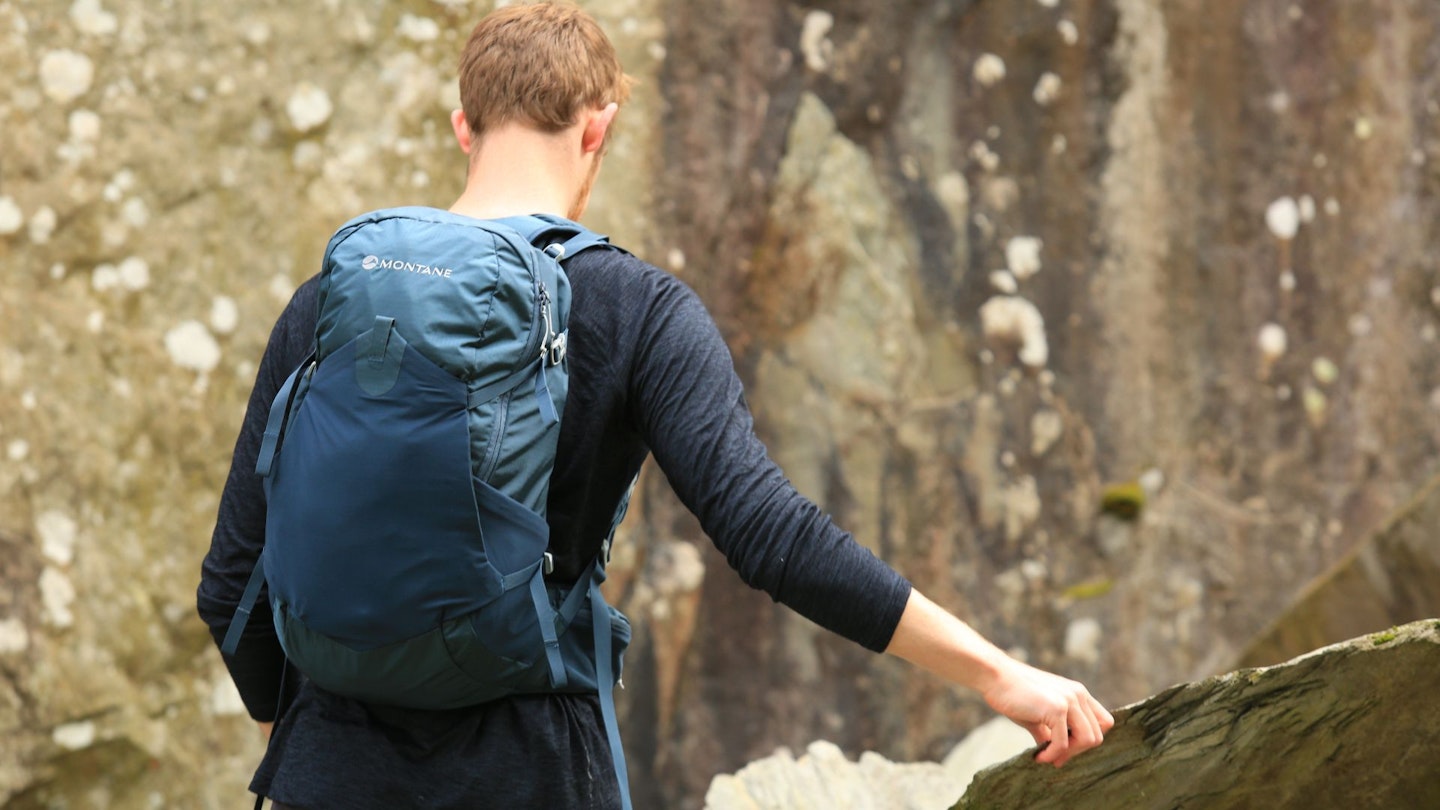
What volume/capacity do I need for a daypack?
A daypack for summer can be smaller than a daypack for winter hiking. This is simply because you don't have to carry such bulky clothing and items like crampons. Basically, in summer, go as small as you can while still being able to carry the essentials.
Are hiking daypacks different sizes?
Some, but not all, hiking daypacks come in different sizes. Some have adjustable back lengths and some are one size only. Irrespective of whether a daypack has various sizes or is adjustable or not, it’s vital to pick a daypack with a size appropriate for your back length, which is easy to measure at home. Alternatively, outdoor gear retailers can usually assist you.
Once you know your back length, trying on a loaded pack is the easiest way to do find out which packs are most comfortable for you.
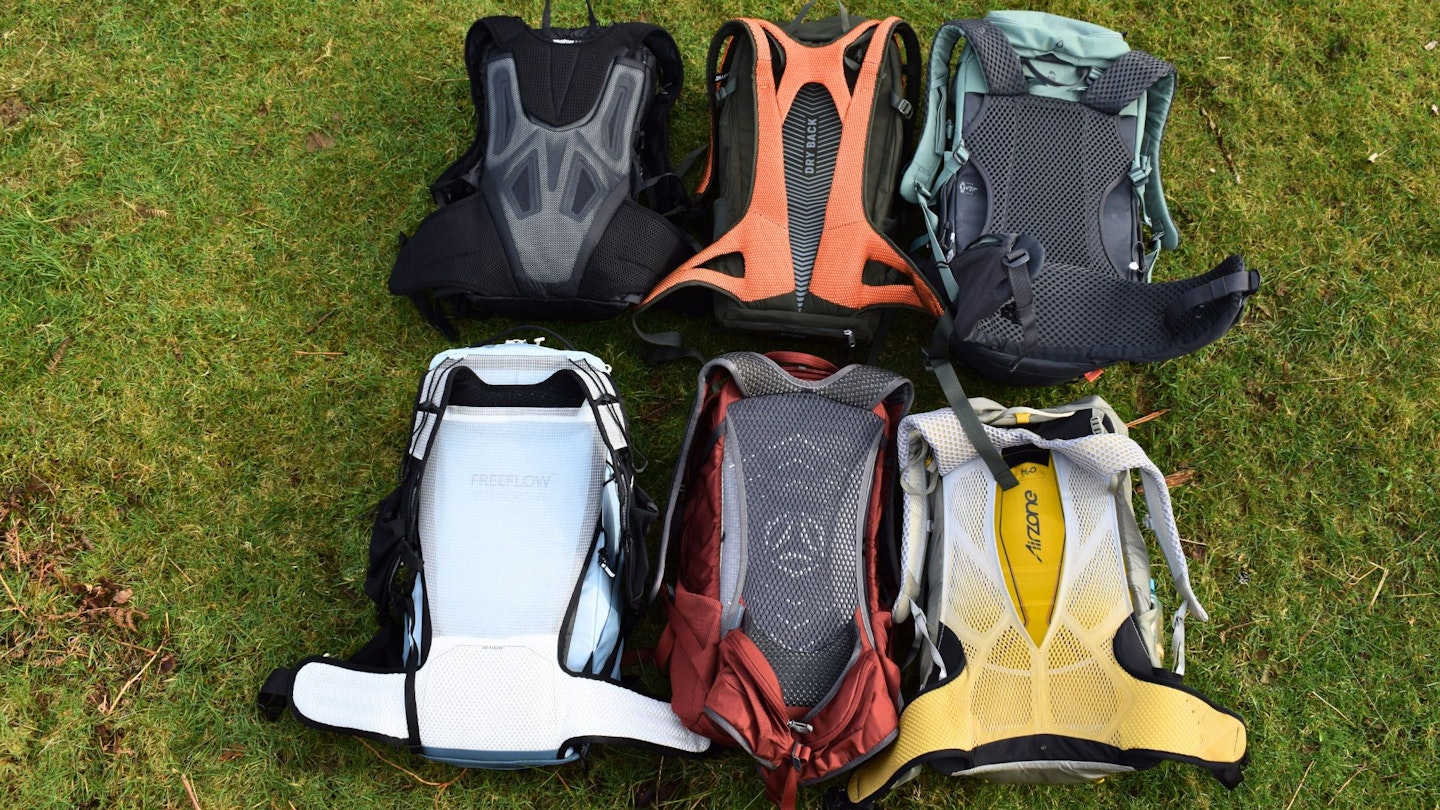
What are the different back systems?
Broadly speaking, there are two types back panel types. Back panels made from perforated foam or padding carry the load directly next to the body. This approach is comfy and stable, with a close-to-the-body feel.
Suspended mesh back panels, conversely, hold the pack’s bulk away from your back, which some hikers prefer because this type offers much better ventilation, but can feel like the load is levering away from you. It’s all down to personal preference.
Does my daypack need a frame?
The frame provides rigidity and stability, and is more beneficial for carrying heavier loads. With lighter loads for summer day hikes, the importance of a strong, load-bearing back system isn't so crucial.
Ultralight packs may be completely frameless, but other daypacks have an internal frame made from spring steel or aluminium. To save weight, others use a high-density plastic framesheet or a stiffened foam back panel.
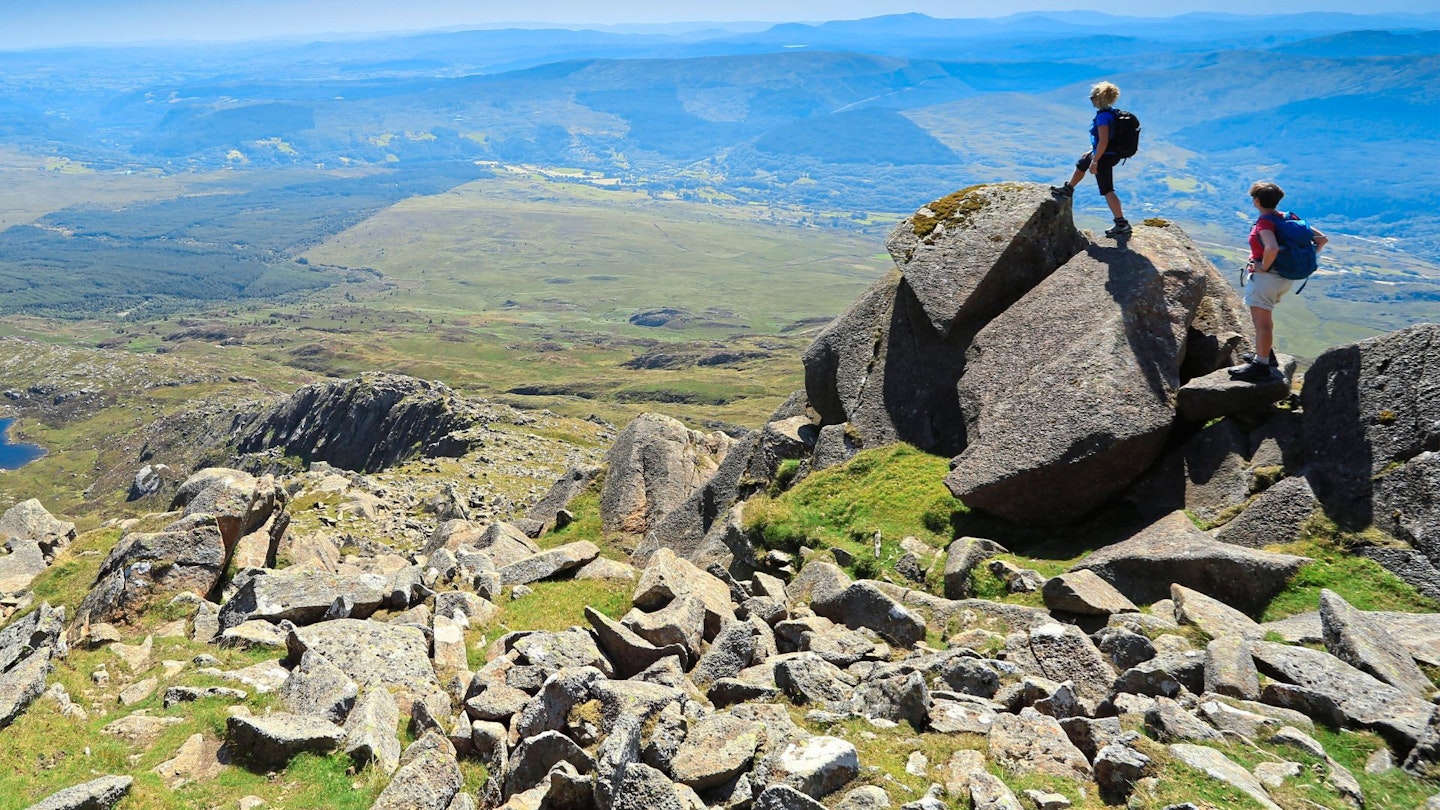
What pocket arrangement is best?
Zippered hipbelt pockets are handy for stashing small items you’ll need on-the-go. Internal zippered pockets are great for car keys or a wallet; some type of additional stash pocket at the front (either elasticated or zipped) is useful for quickly stowing and accessing extra layers; and elasticated side pockets are perfect for water bottles.
Increasingly, daypacks also feature large pockets made from stretchy mesh and a pocket (or sleeve) for a hydration bladder, as well as an outlet for the drinking hose. External compression straps, webbing loops, toggles and bungee cords can be used for attaching items such as trekking poles and camping gear to the outside of your pack
What is a lid?
The lid covers the main opening. Some are fixed to the pack, while others are detachable with a ‘floating’ design. A current trend is towards lidless packs.
How do I clean and repair a hiking daypack?
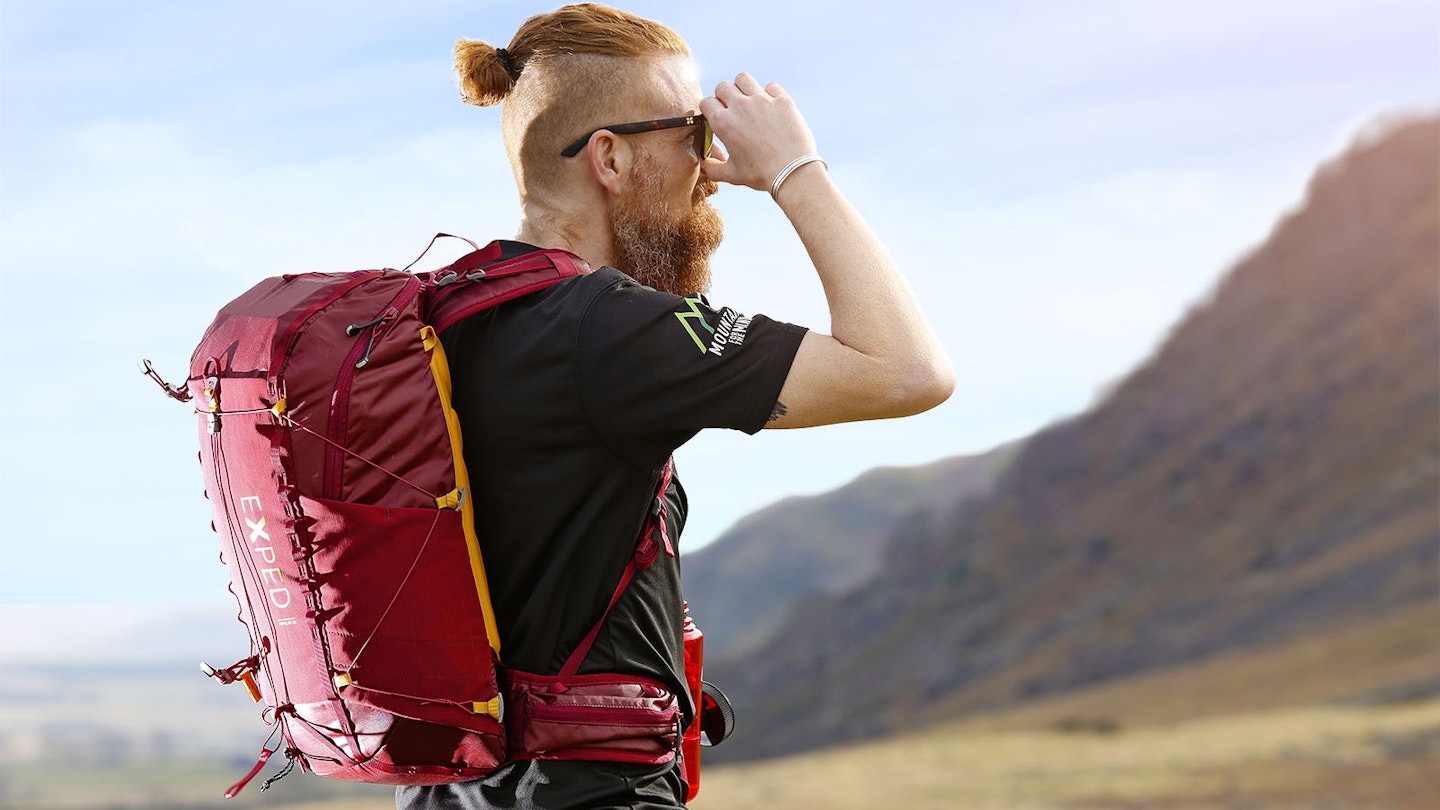
Packs are the most repairable piece of hiking equipment. If you’ve got a tear, broken a strap, or stuffed zip, it can be repaired. Quite a lot of brands offer repair services, and many outdoor retailers do too. Make use of them.
To maintain the performance of the fabrics used to make hiking packs, it’s important to clean them properly. It’s very simple and primarily involves spot cleaning using the correct cleaning solution – we recommend either Grangers or Nikwax tent and gear cleaning kits.
These are both effective, eco-friendly cleaning products specifically for the types of fabrics used on outdoor gear. You can use both these cleaning kits for all your outdoor equipment including tents.
About the author
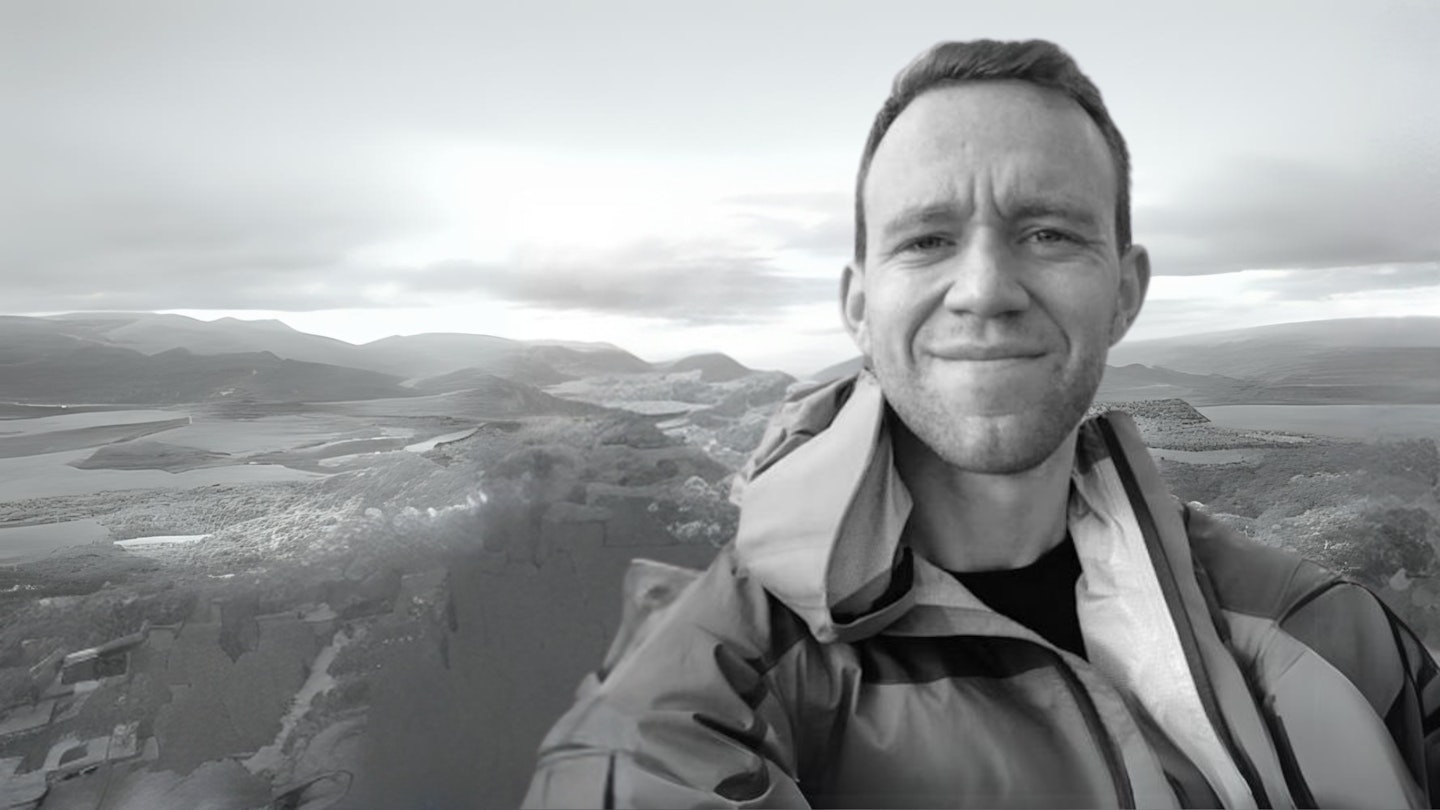
James Forrest is a prolific peak bagger and long-distance walker who’s one of the most high-profile outdoor writers in the UK.
He writes regular features and route guides for Trail and has been one of our main gear testers for the last few years. James is based on the edge of the Lake District so when he isn’t off on his latest crazy adventure or challenge, he’s walking in his local fells.
James reviews every type of outdoor kit for Trail and is a real authority on everything you need for wild camping and packing light for a multi-day walk.
